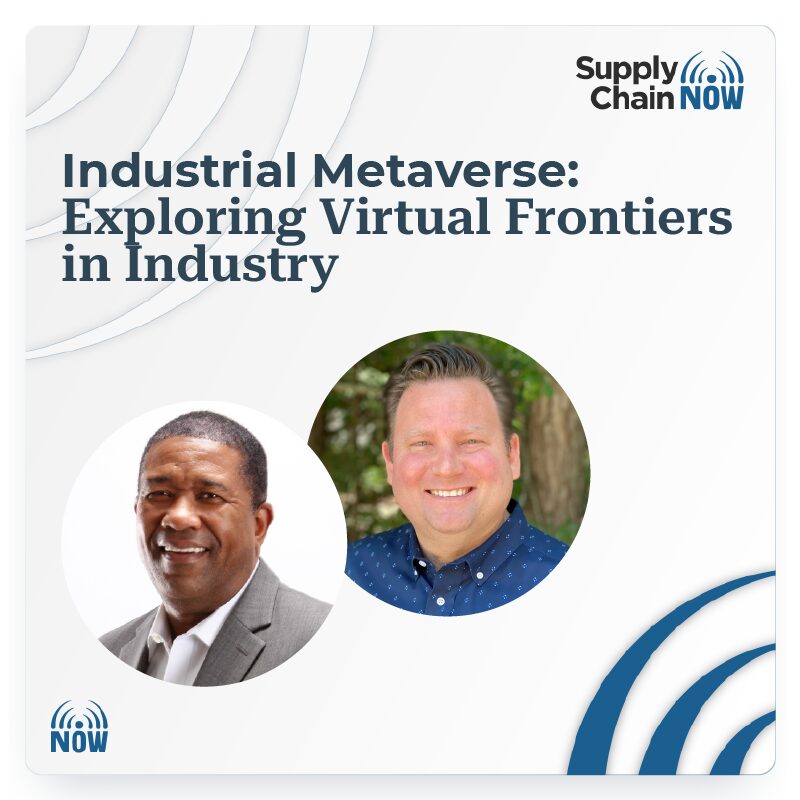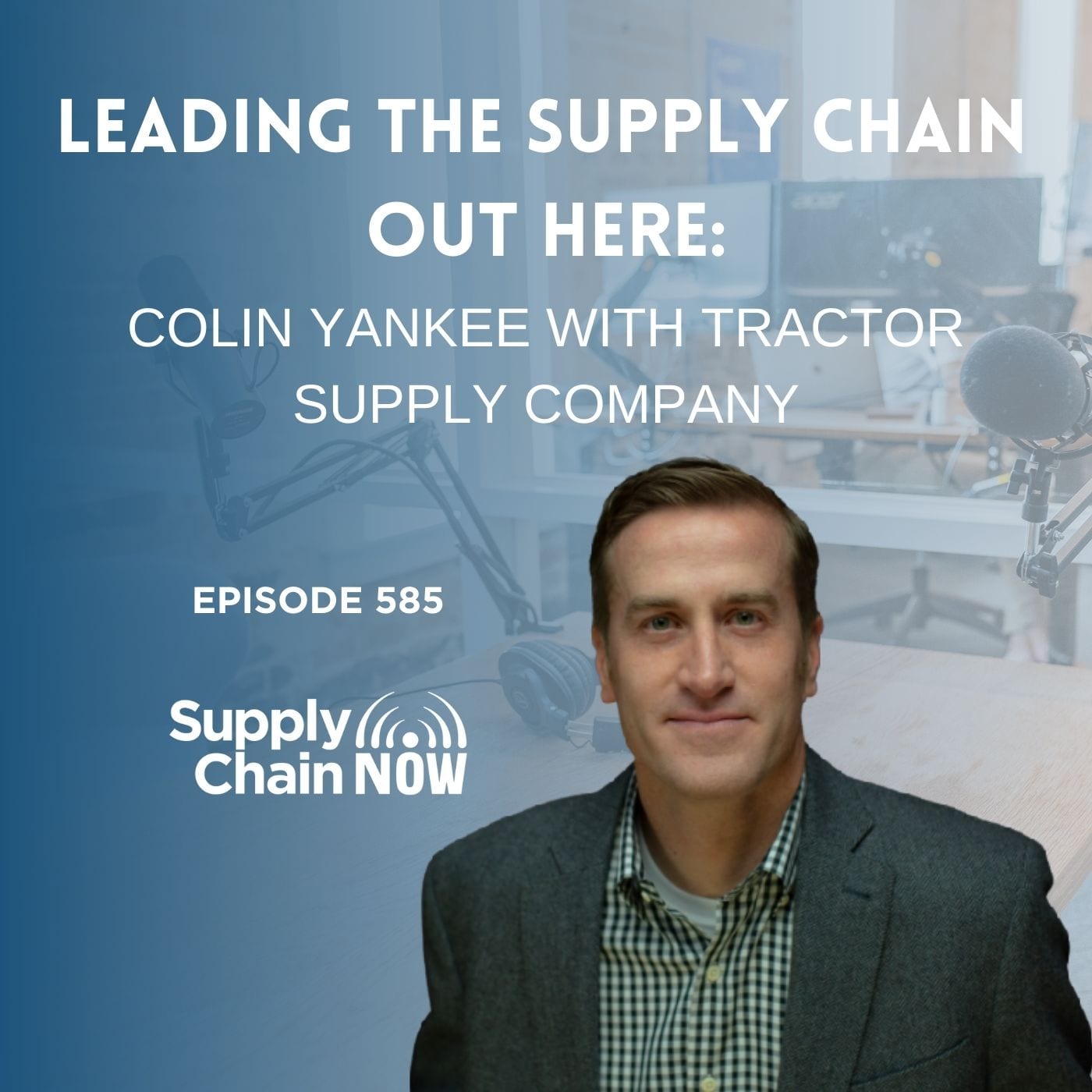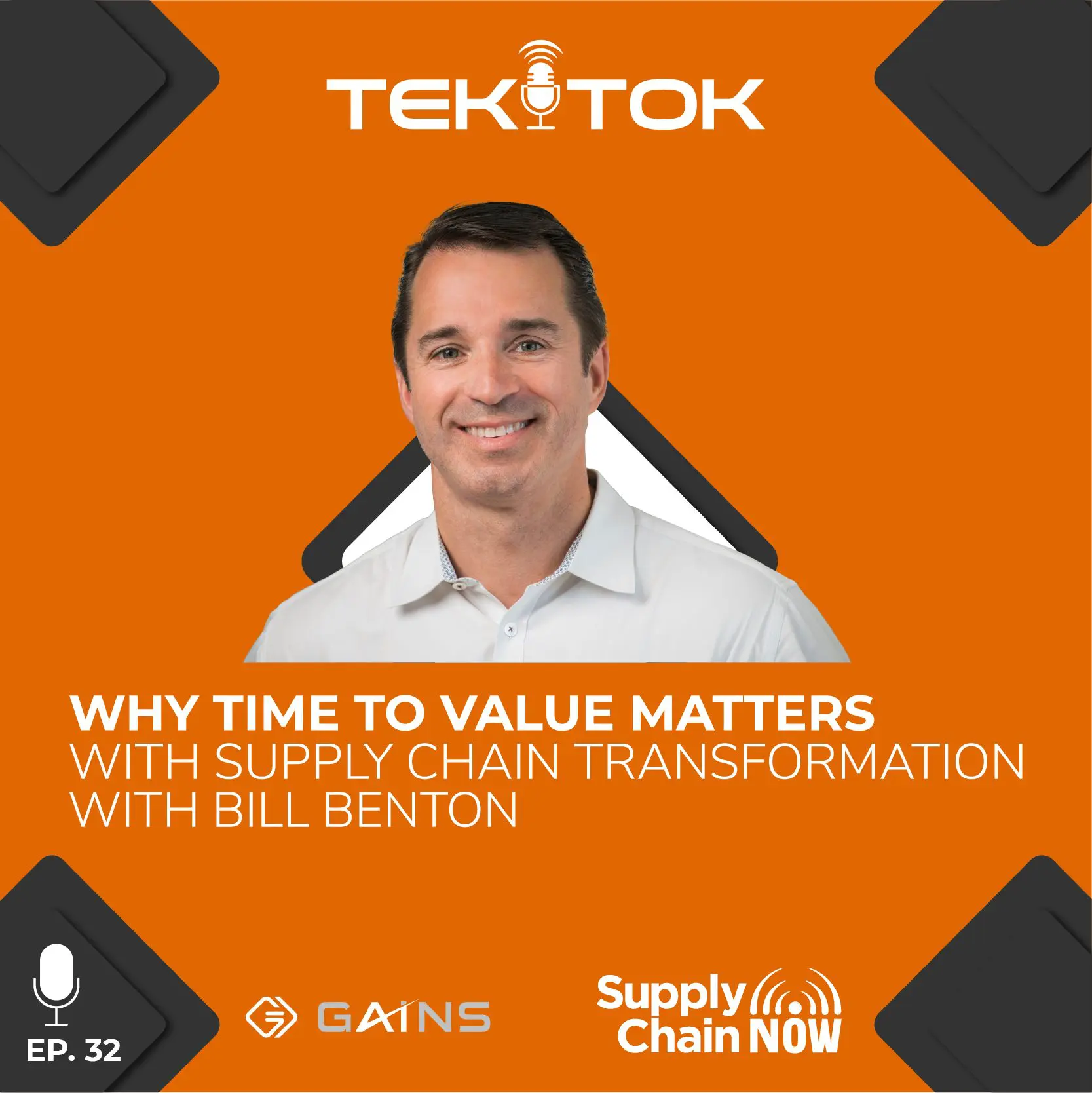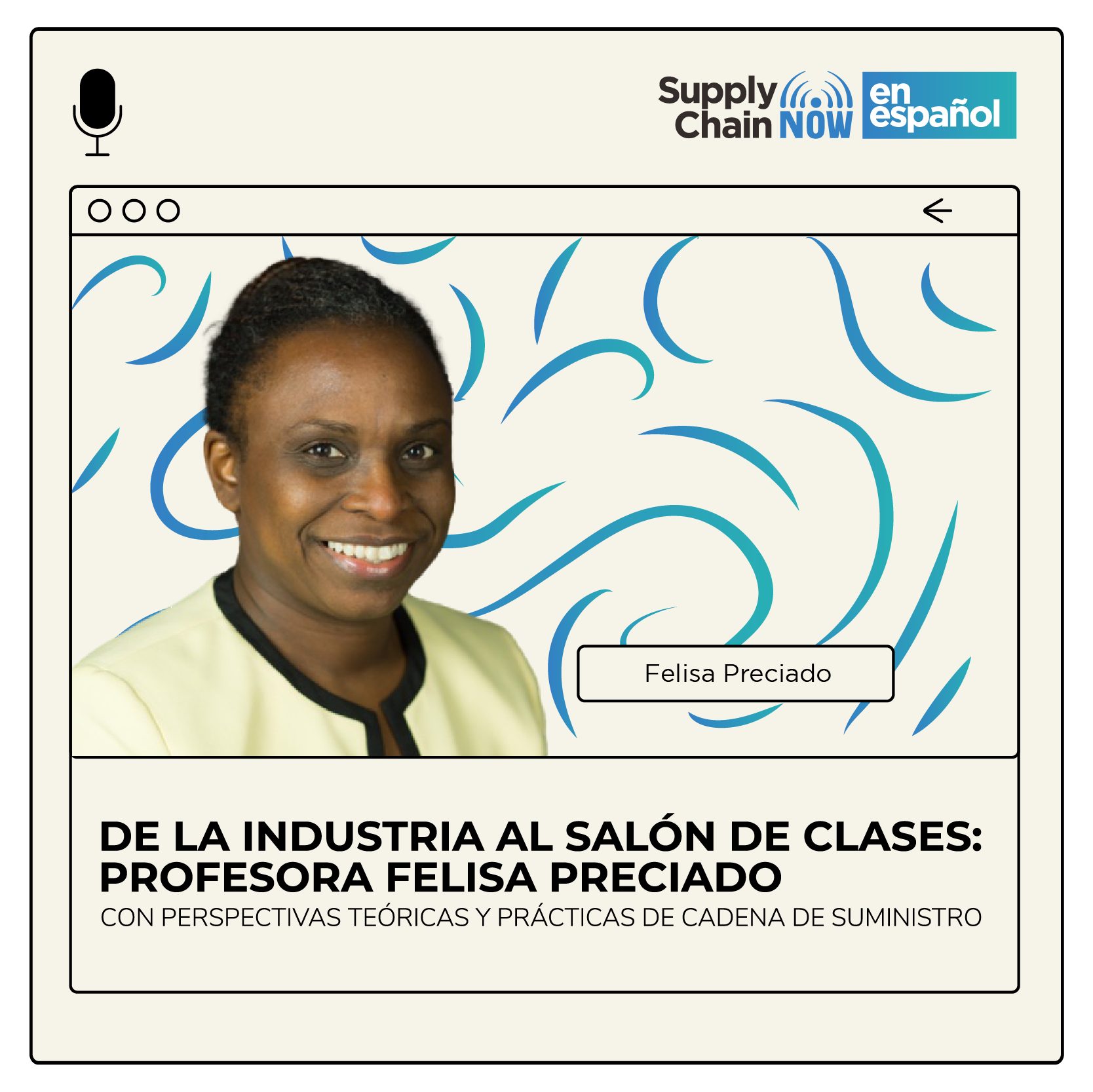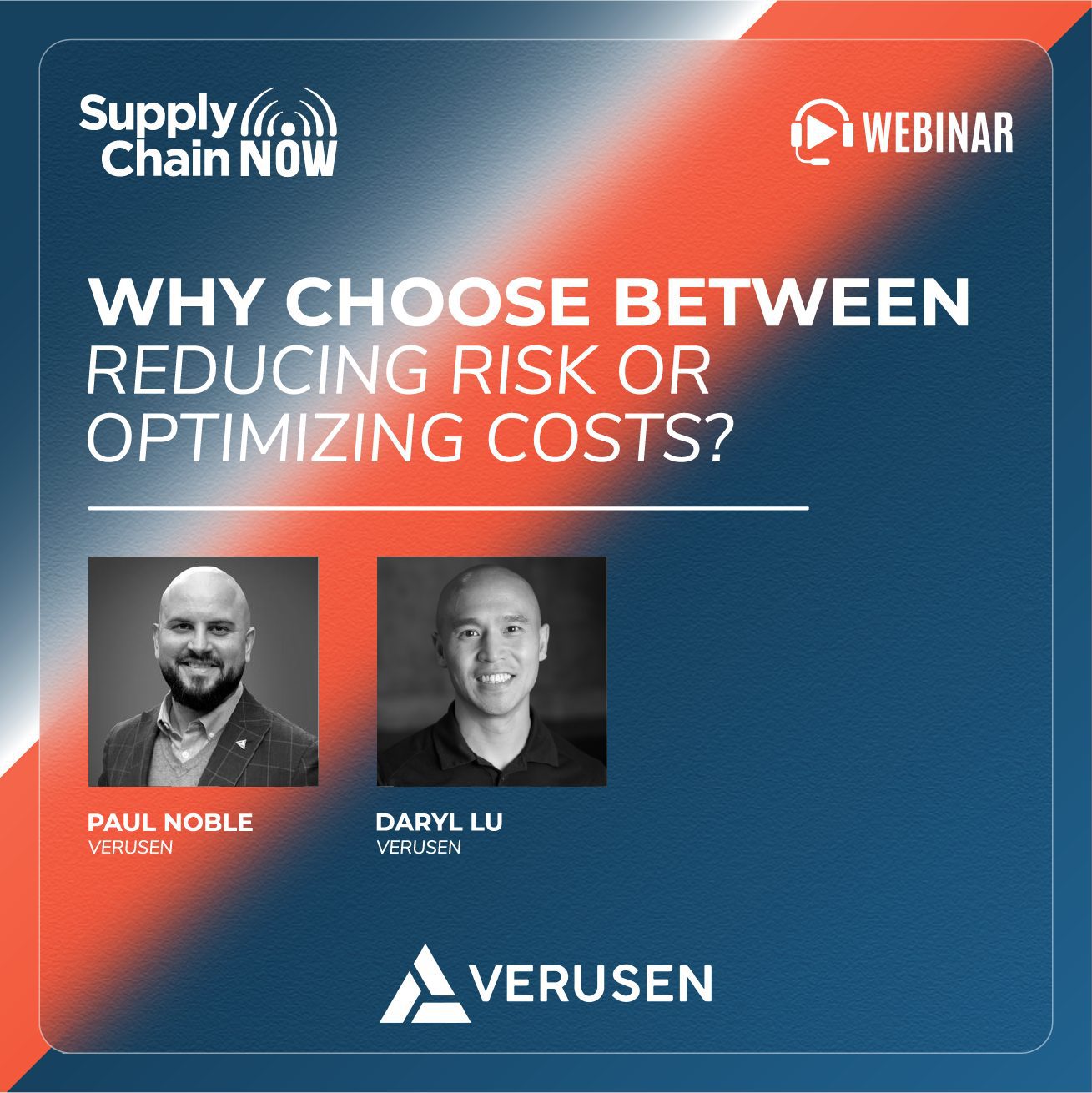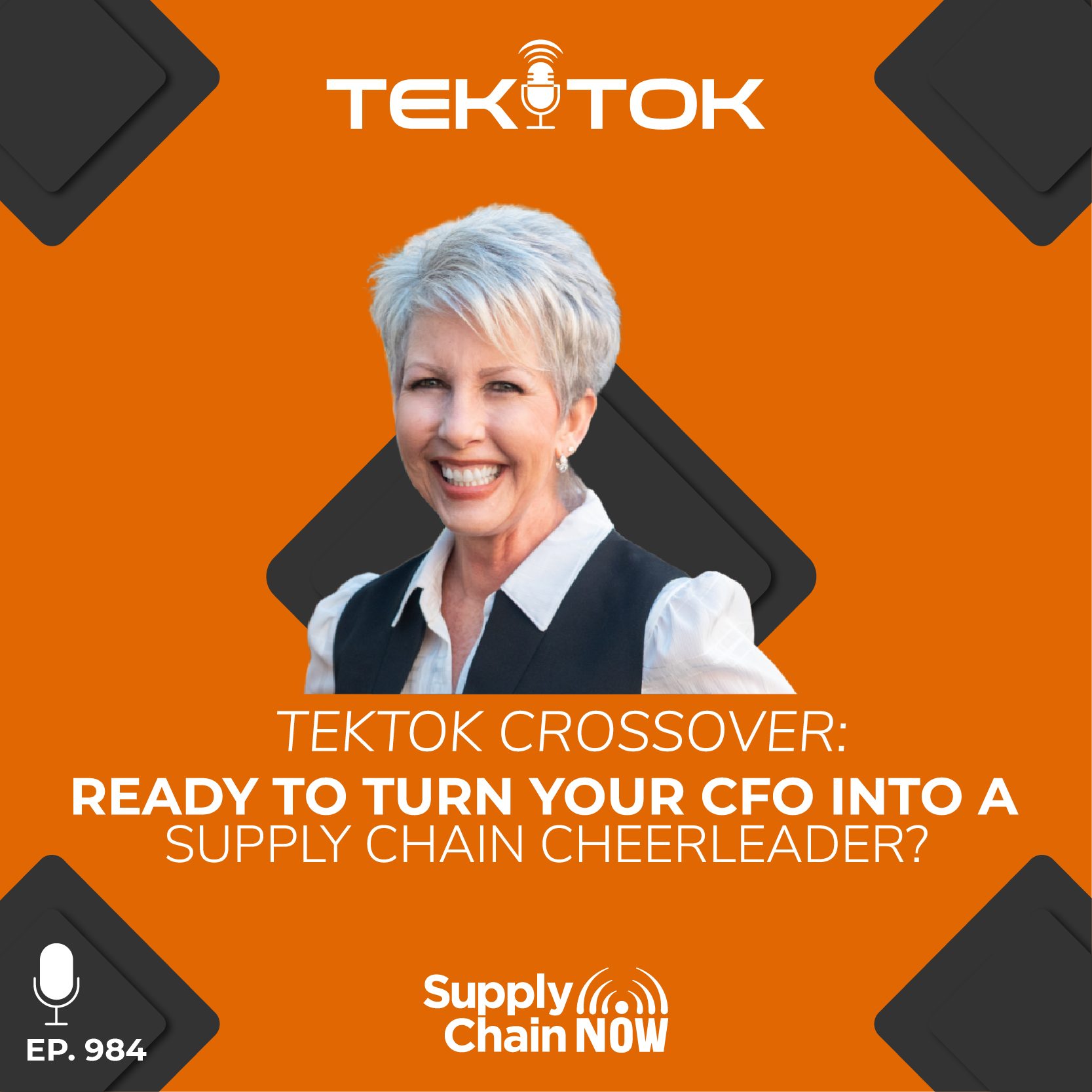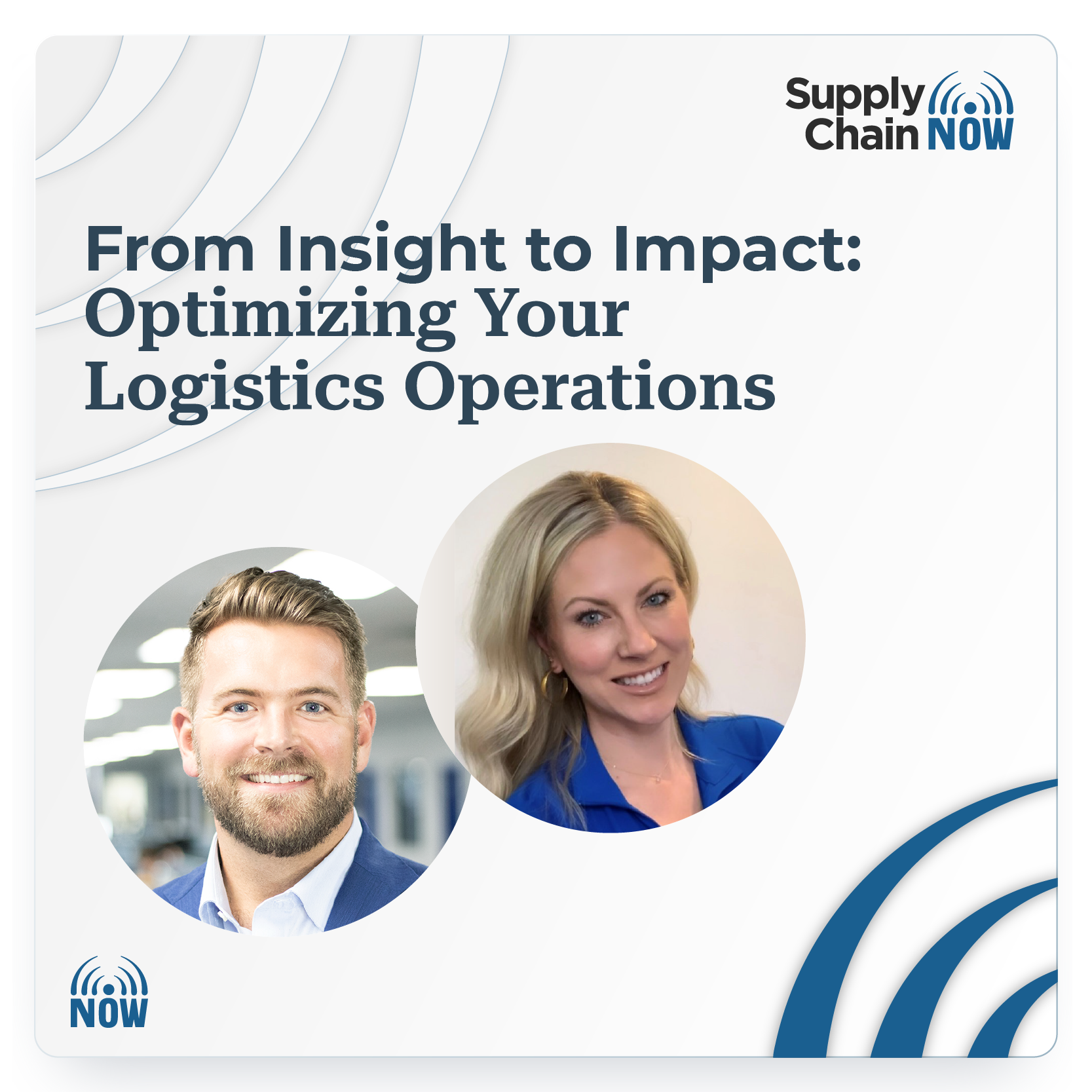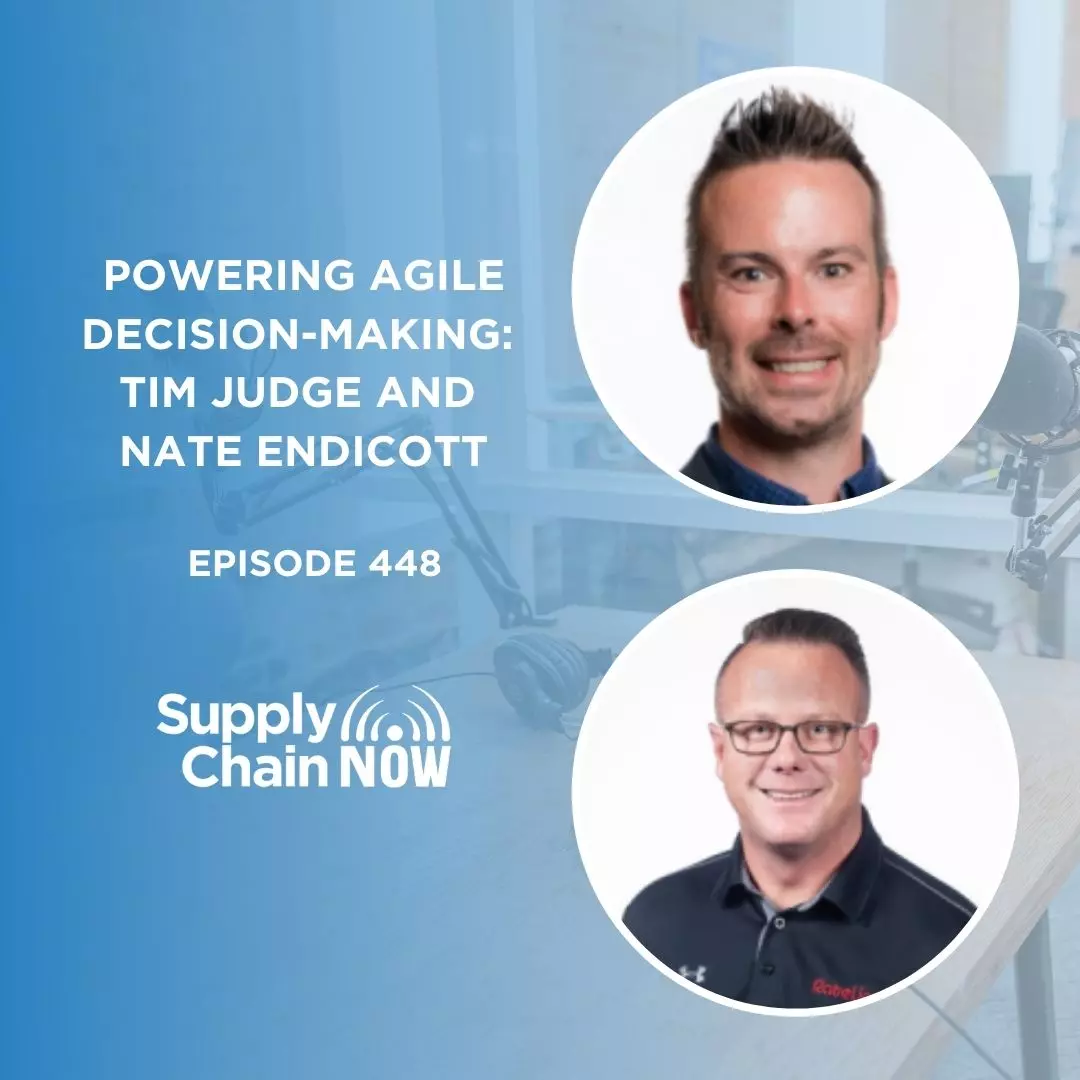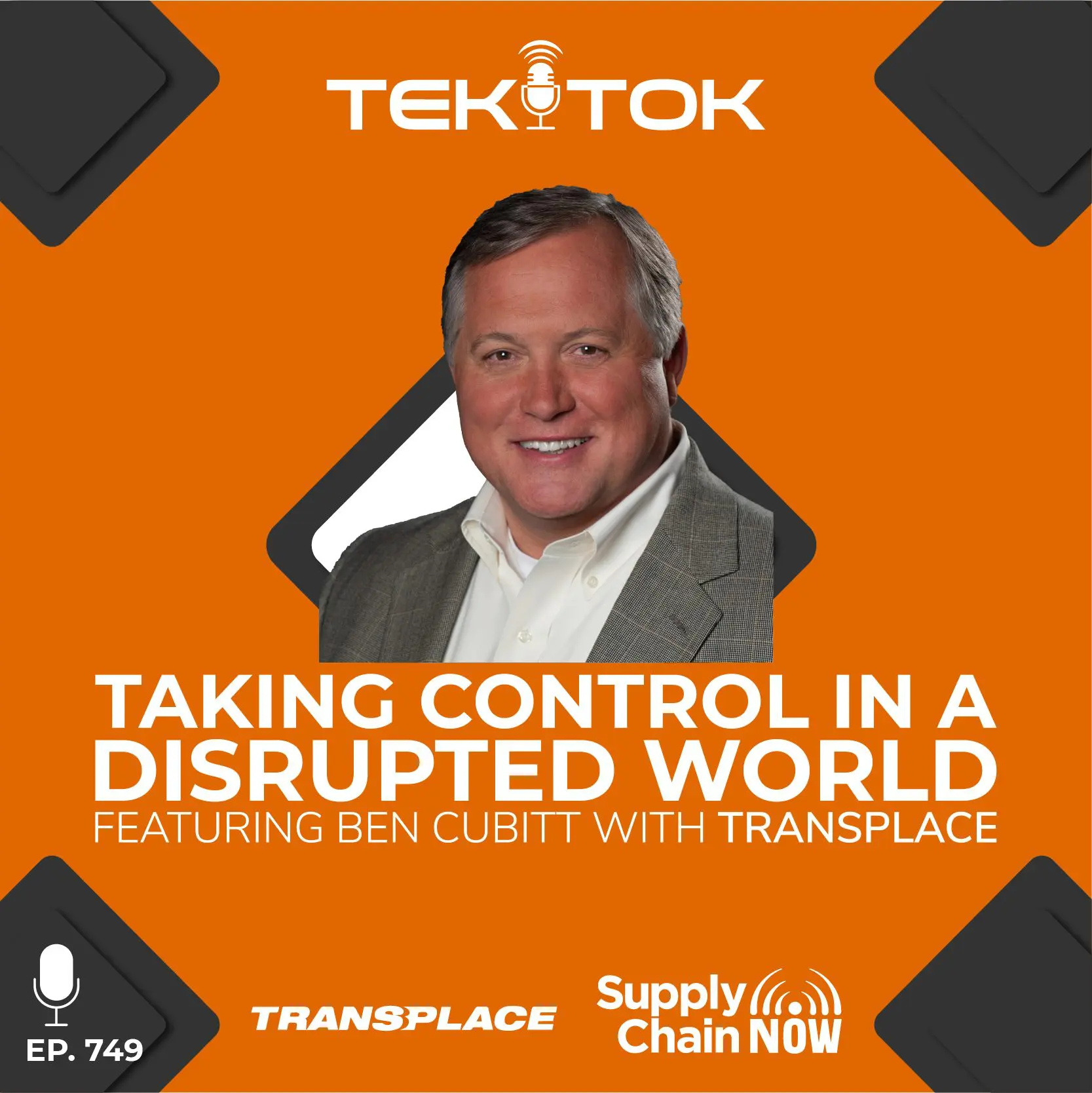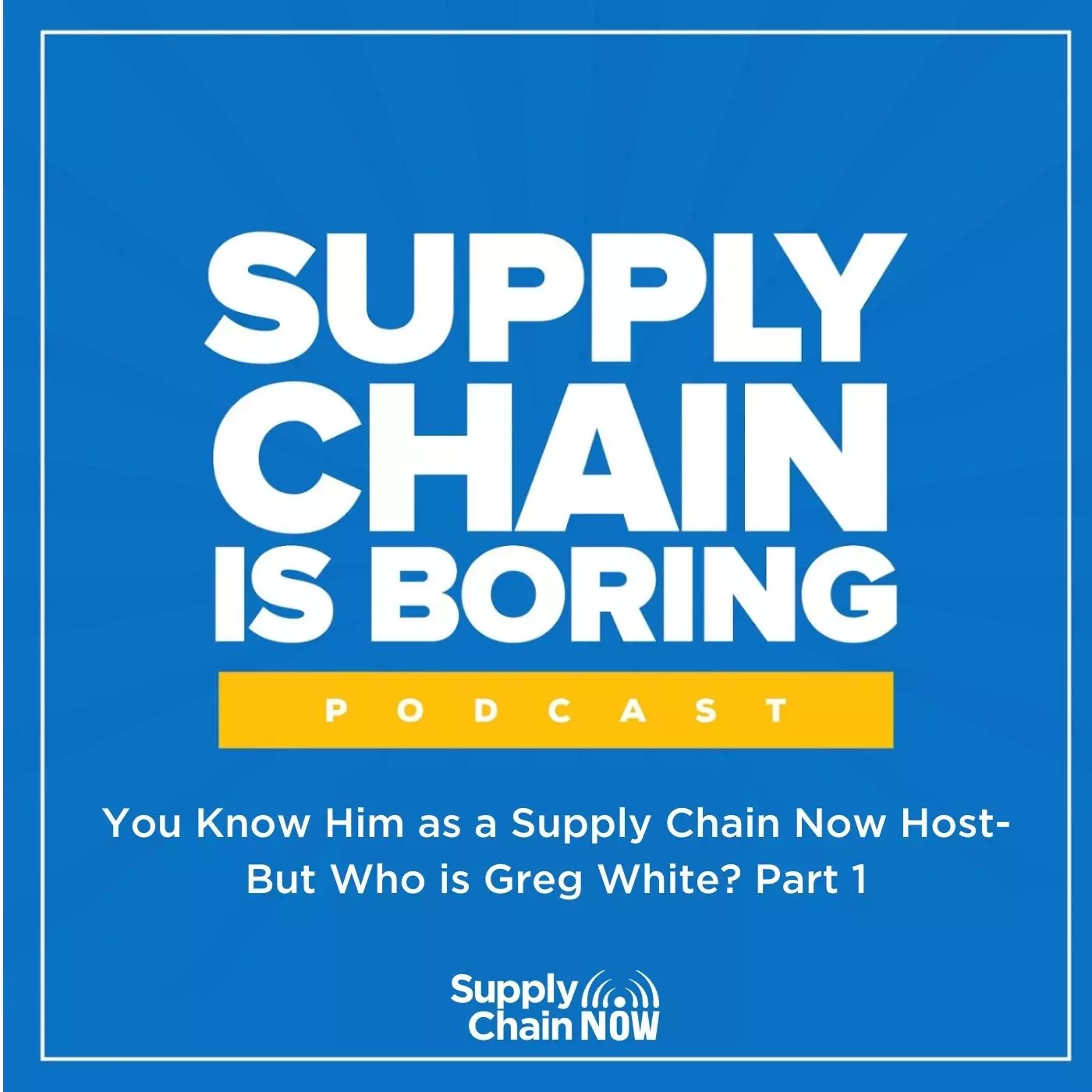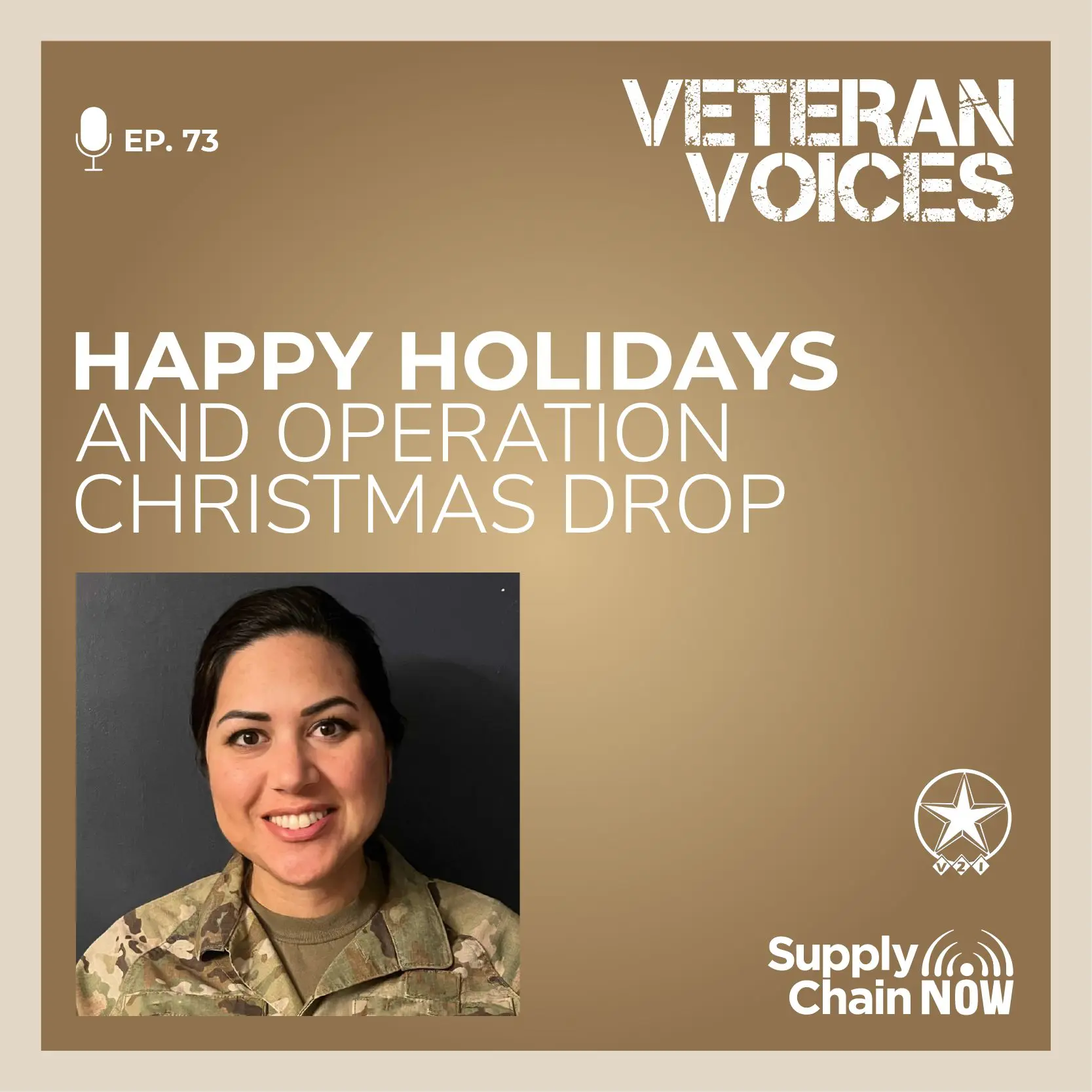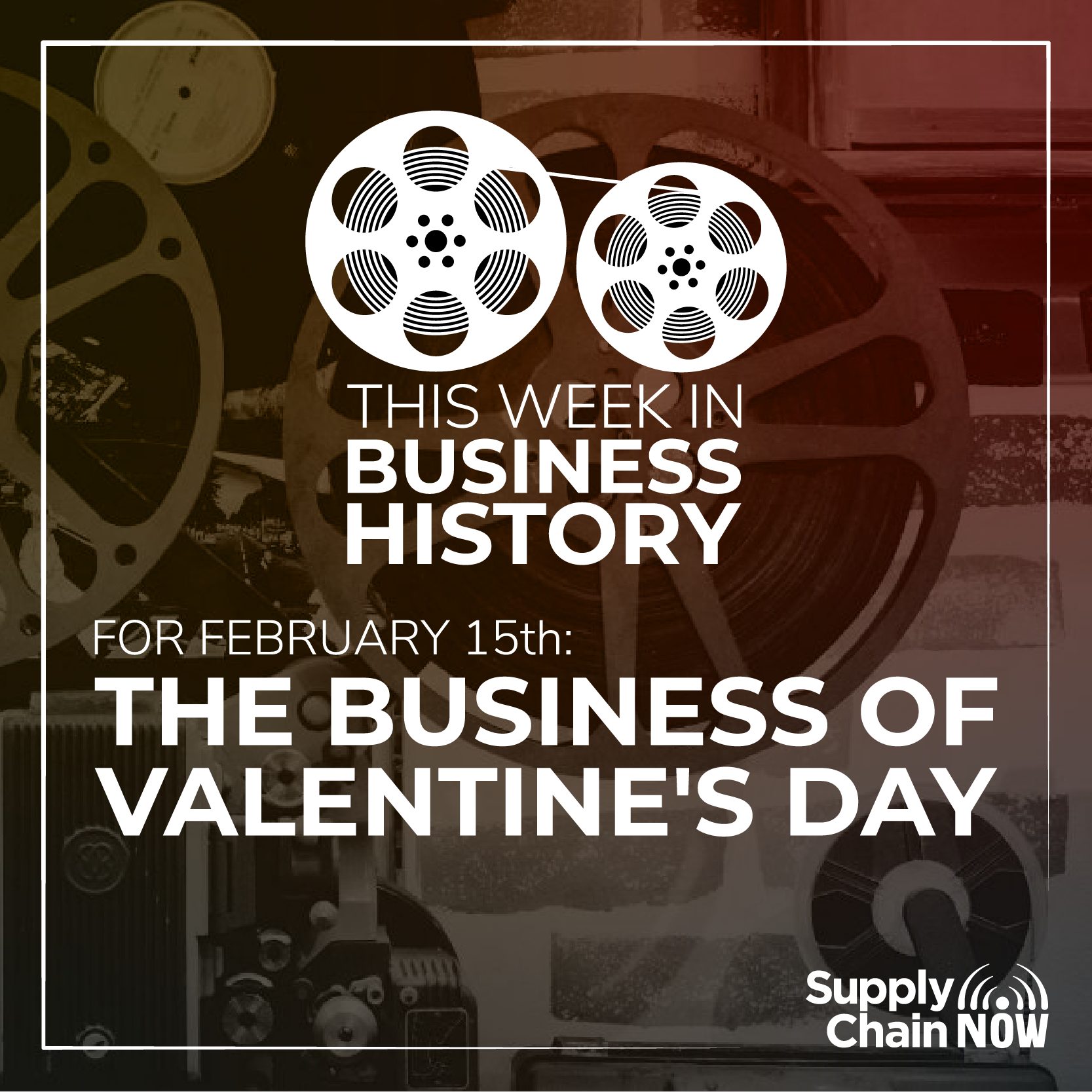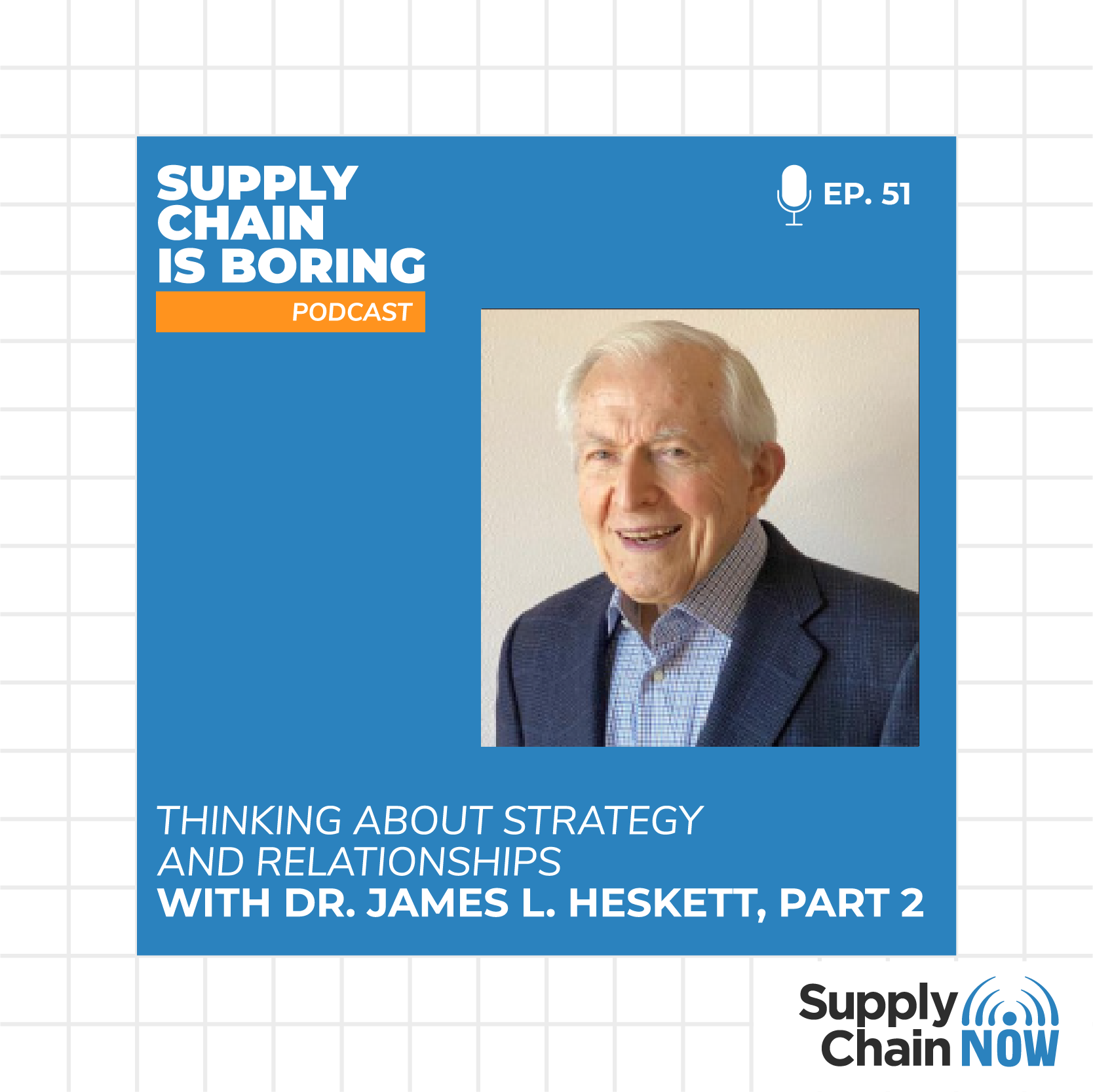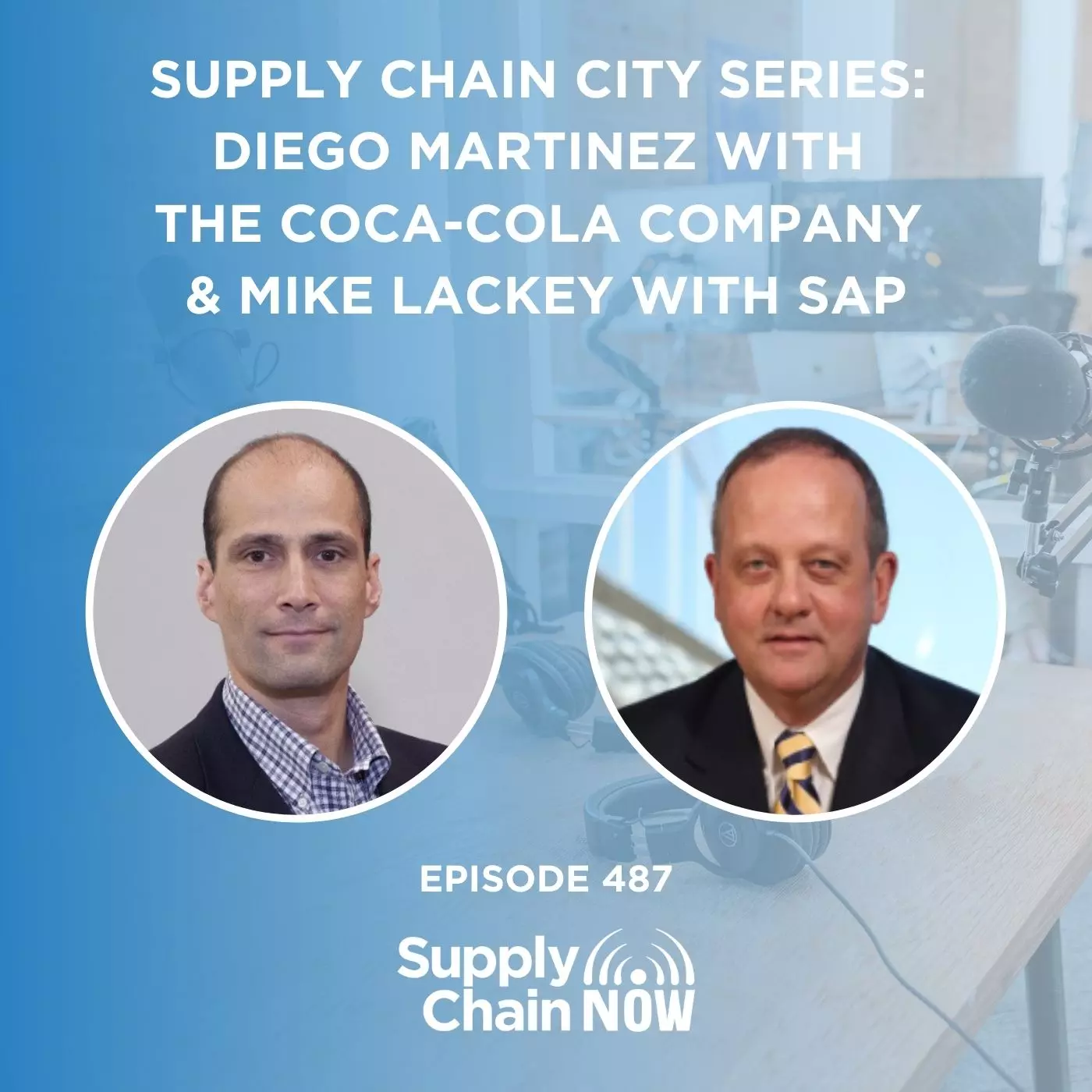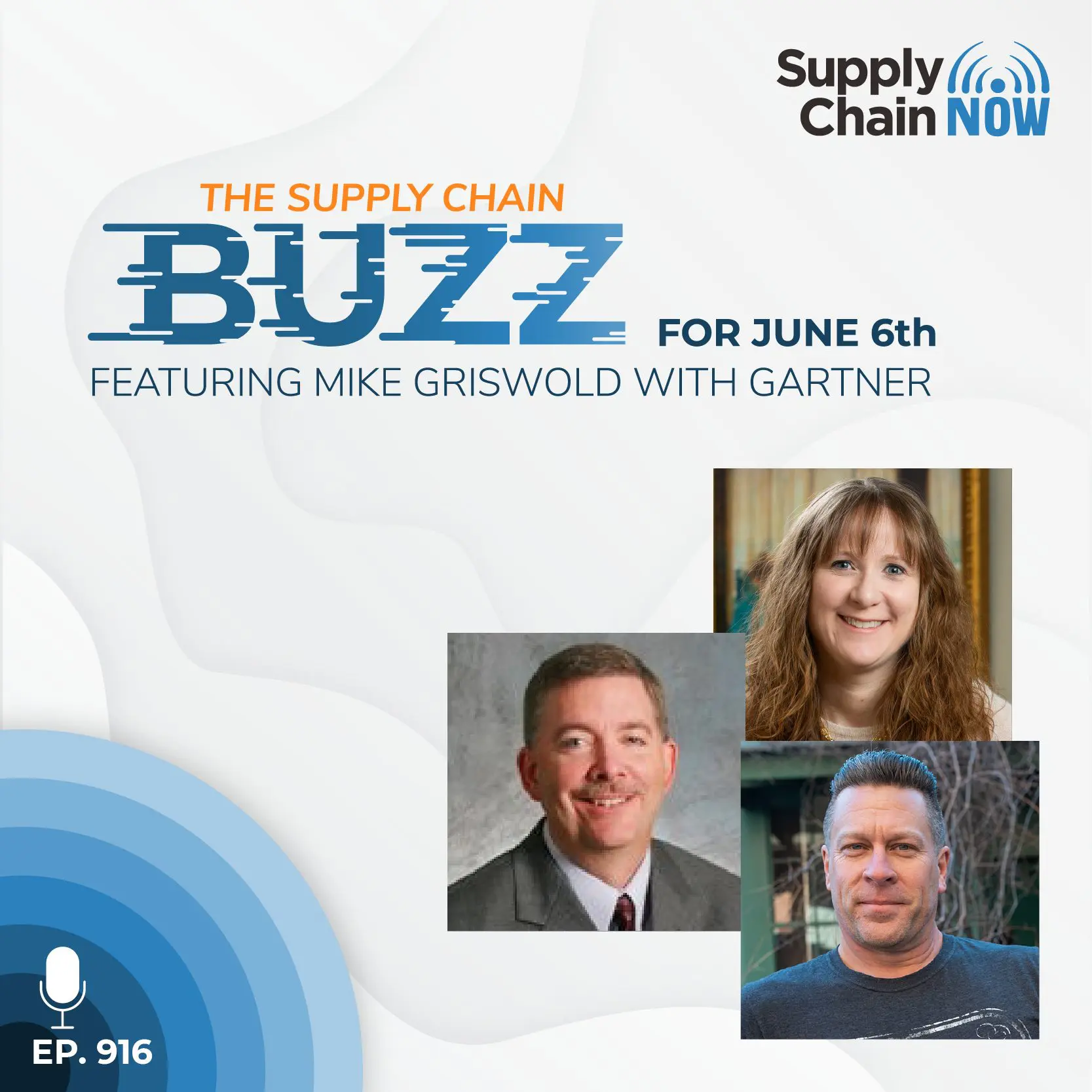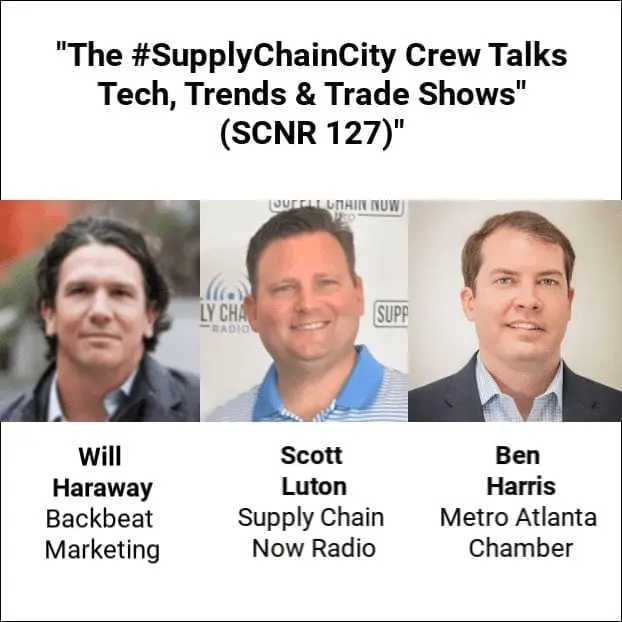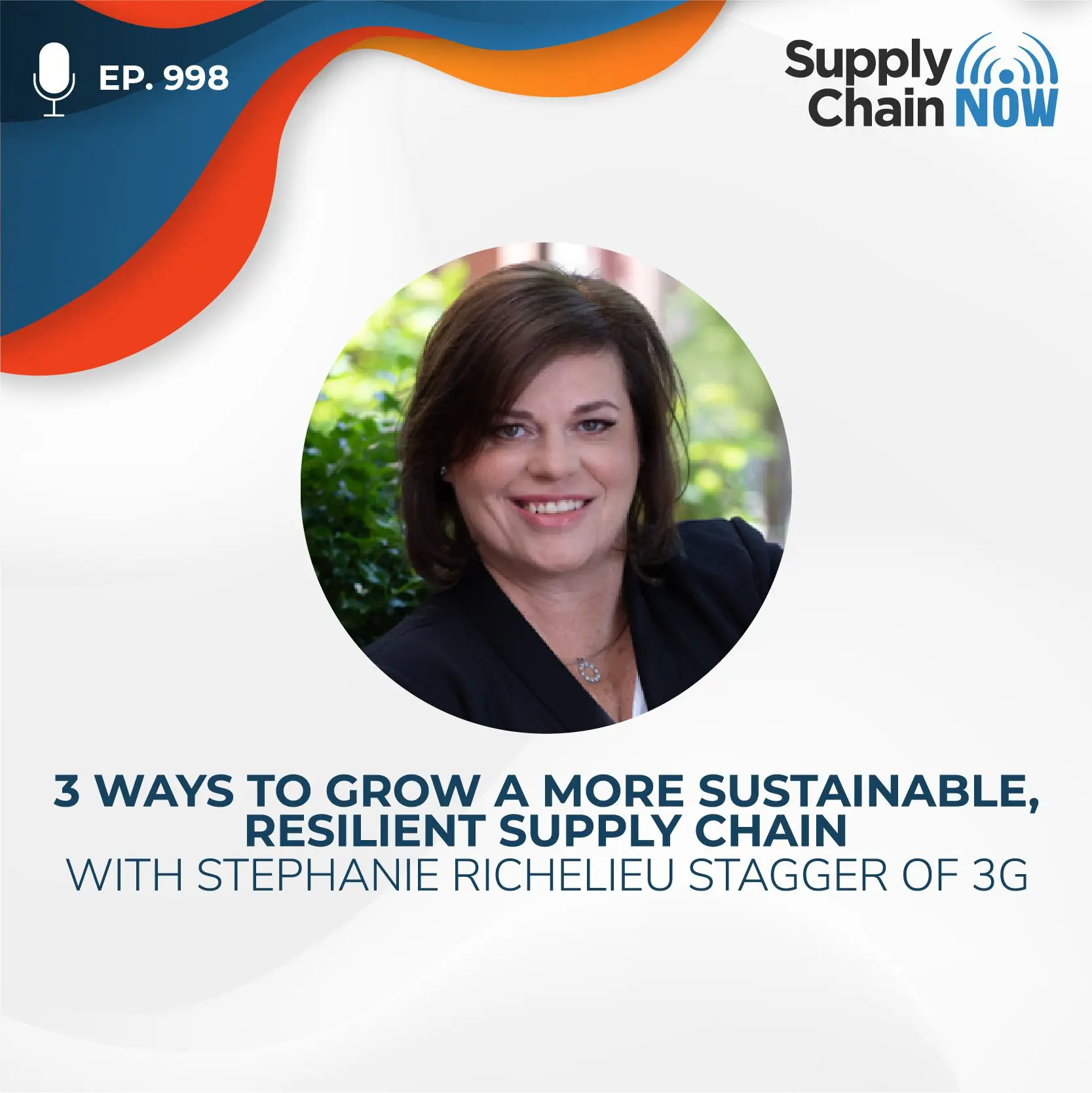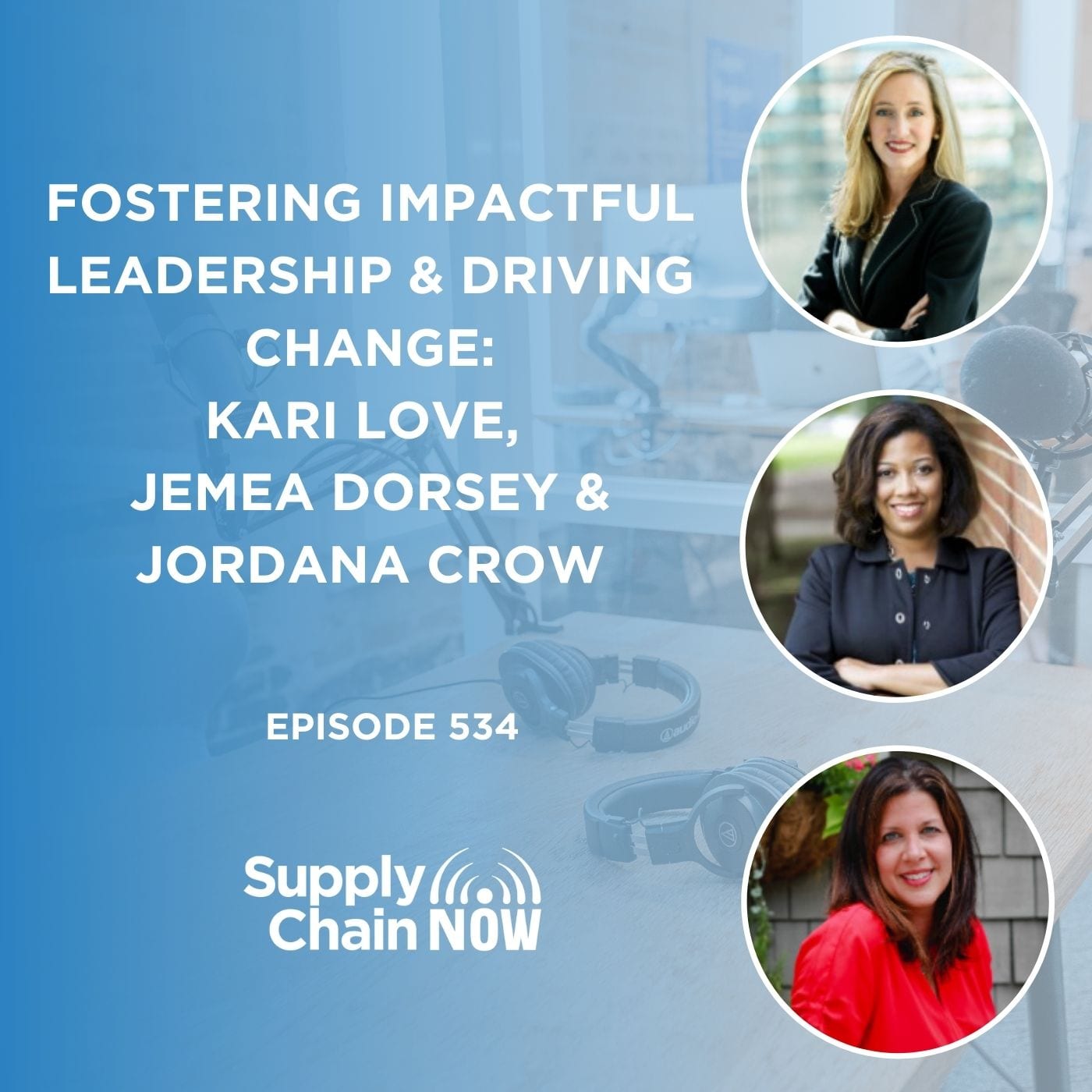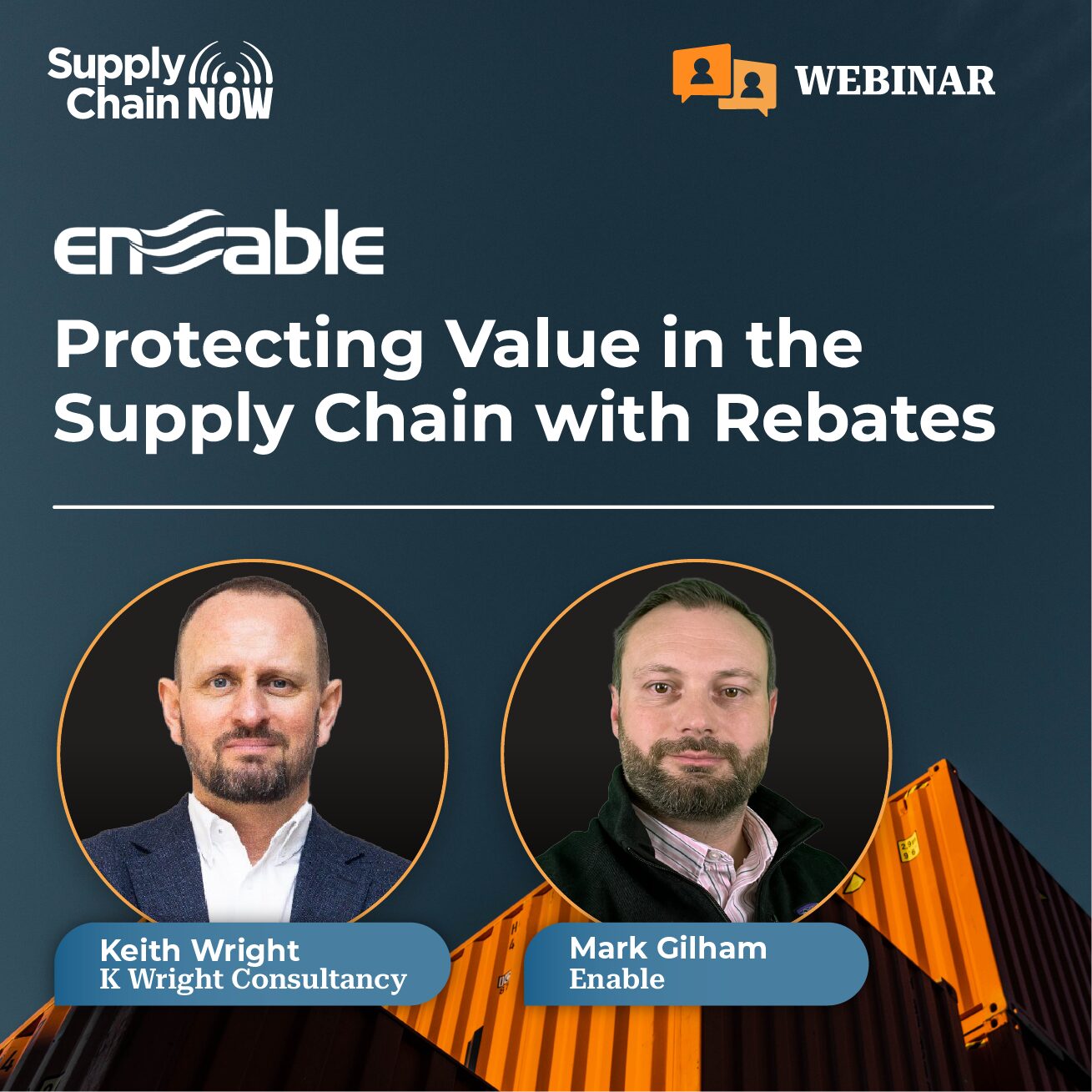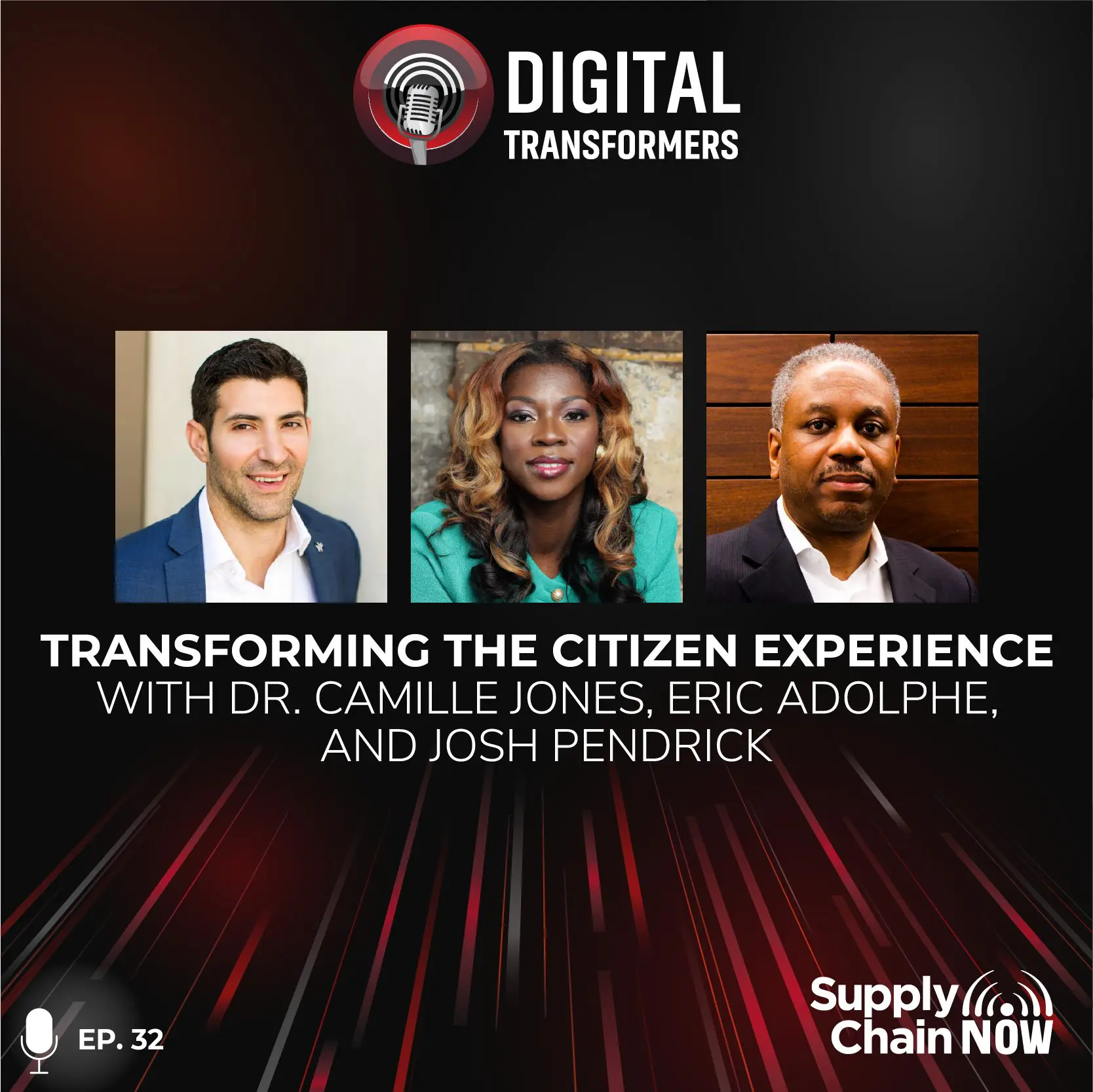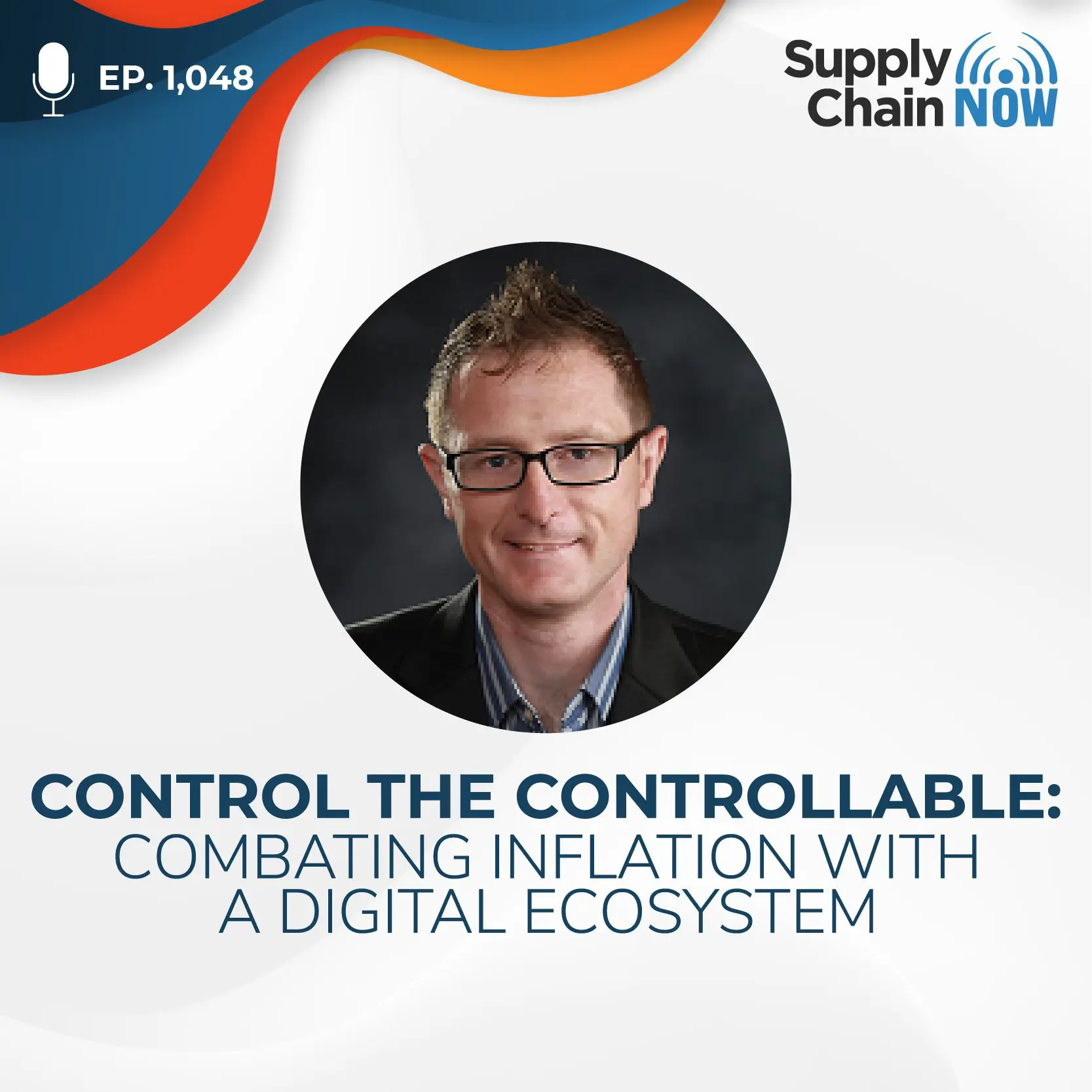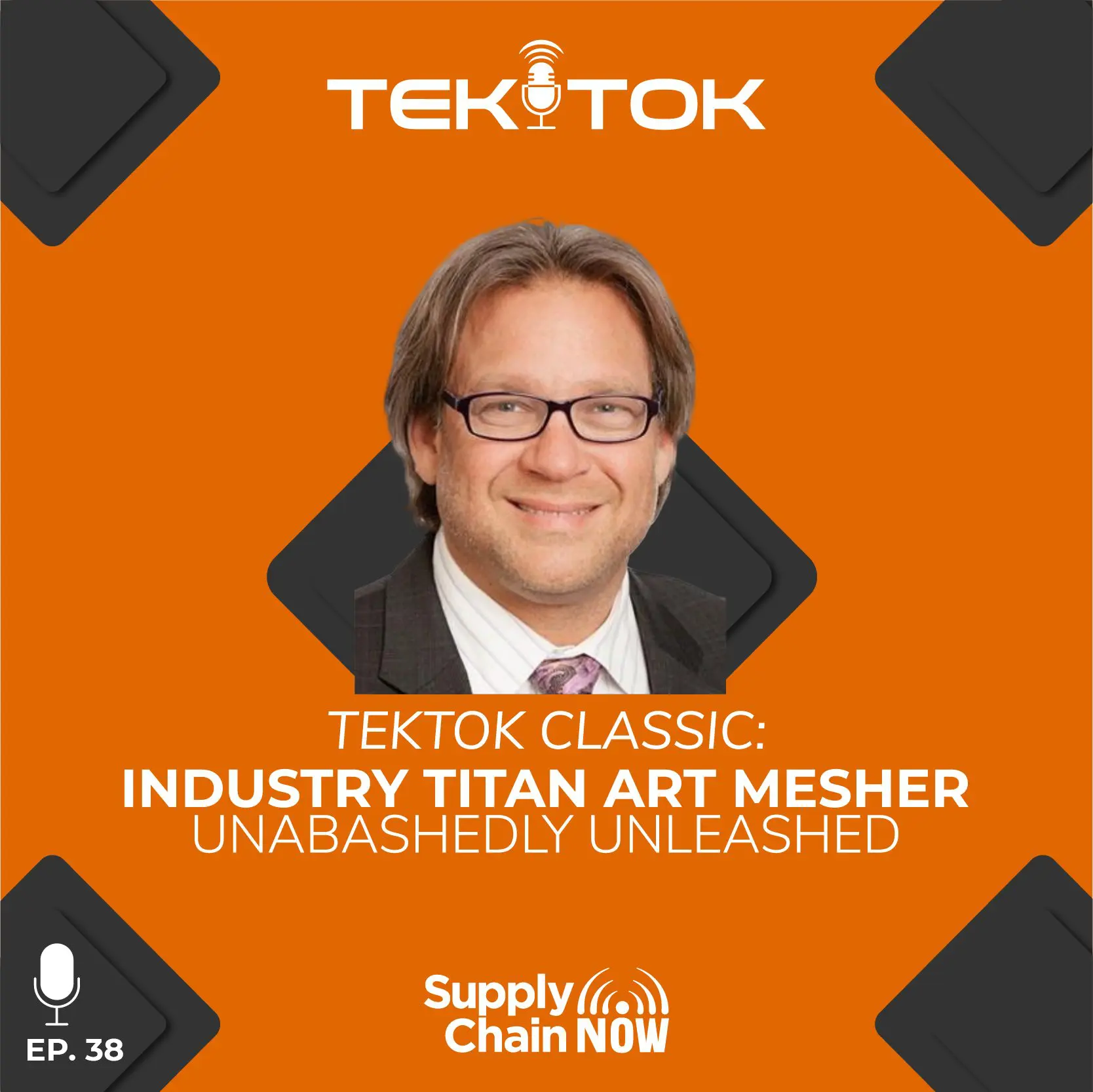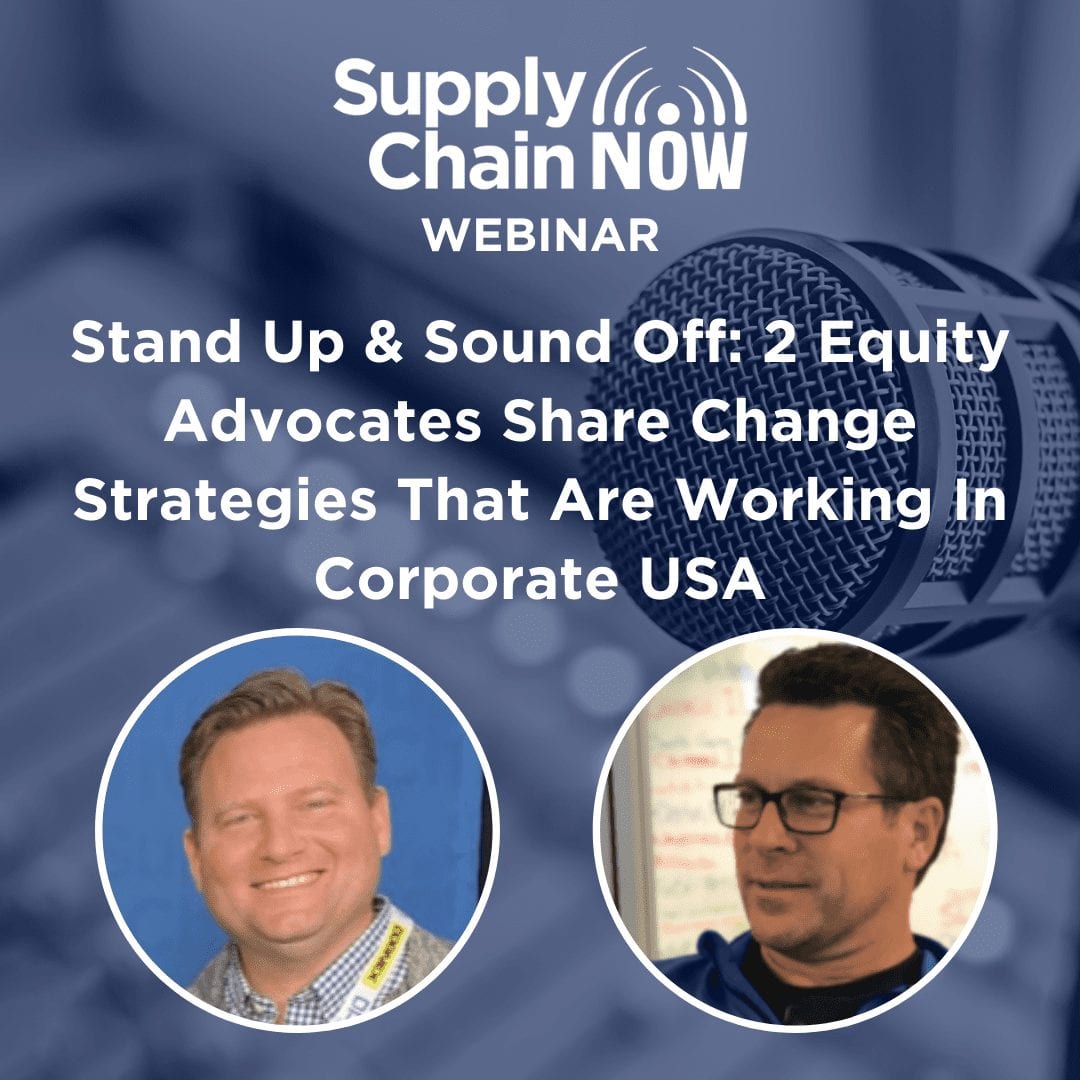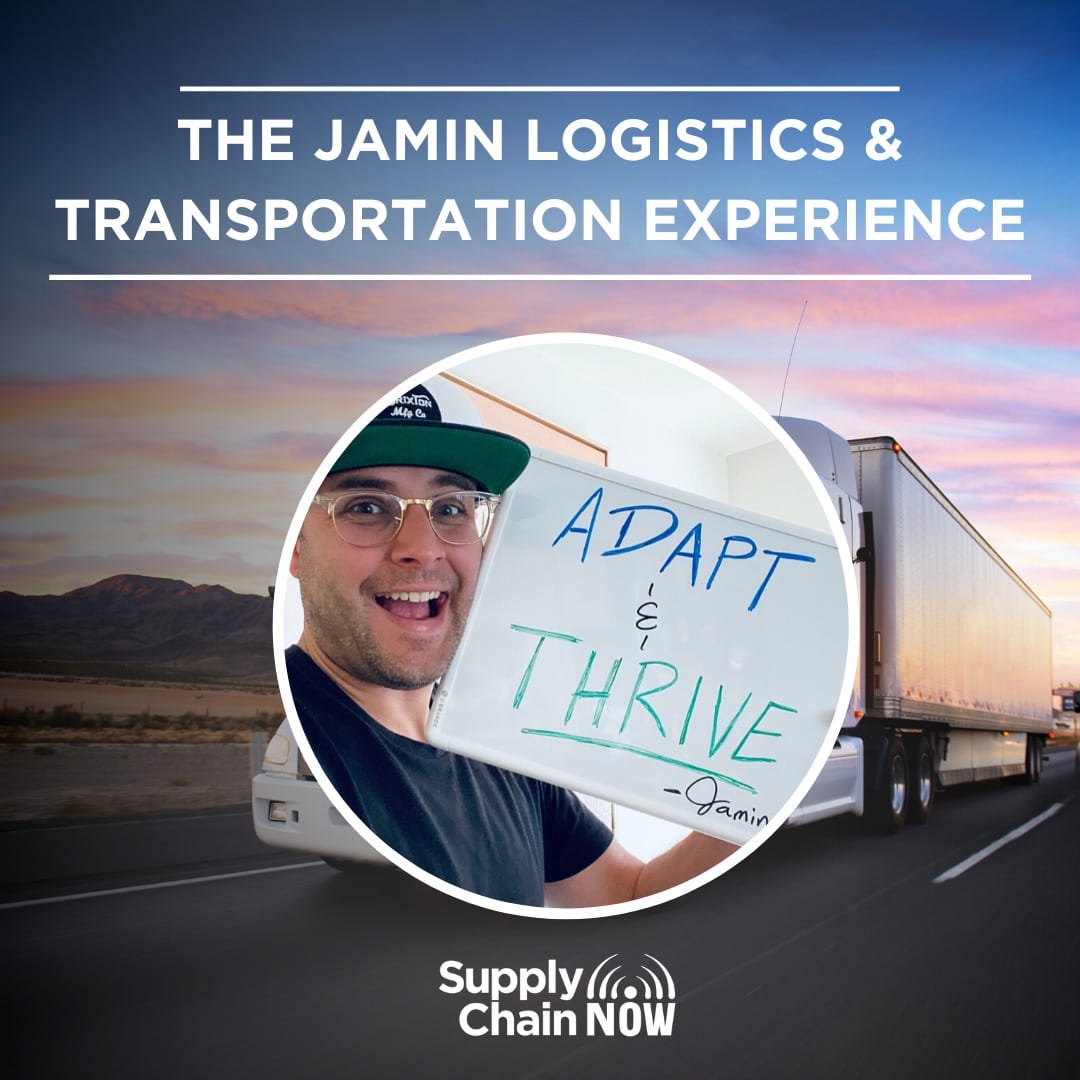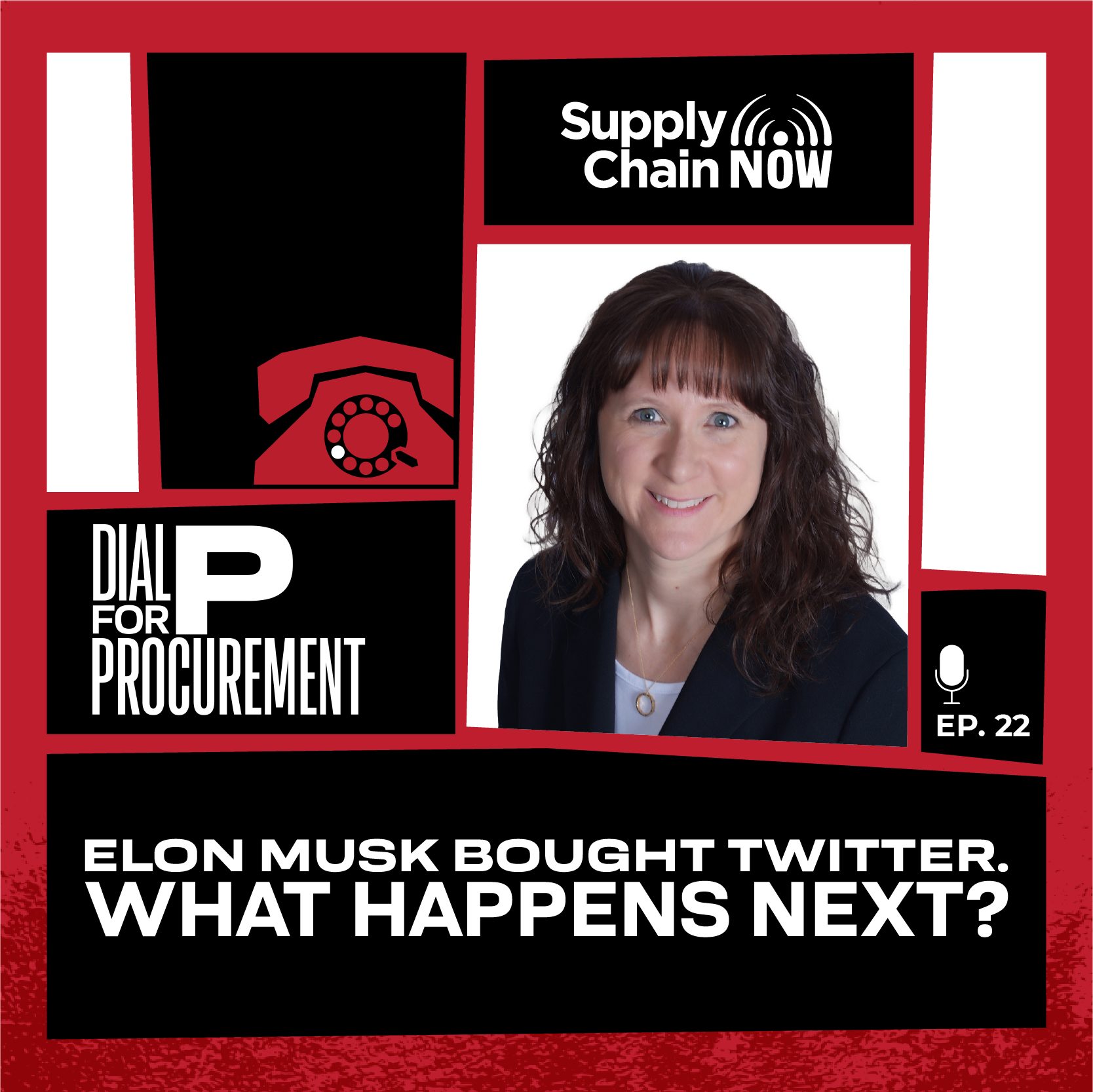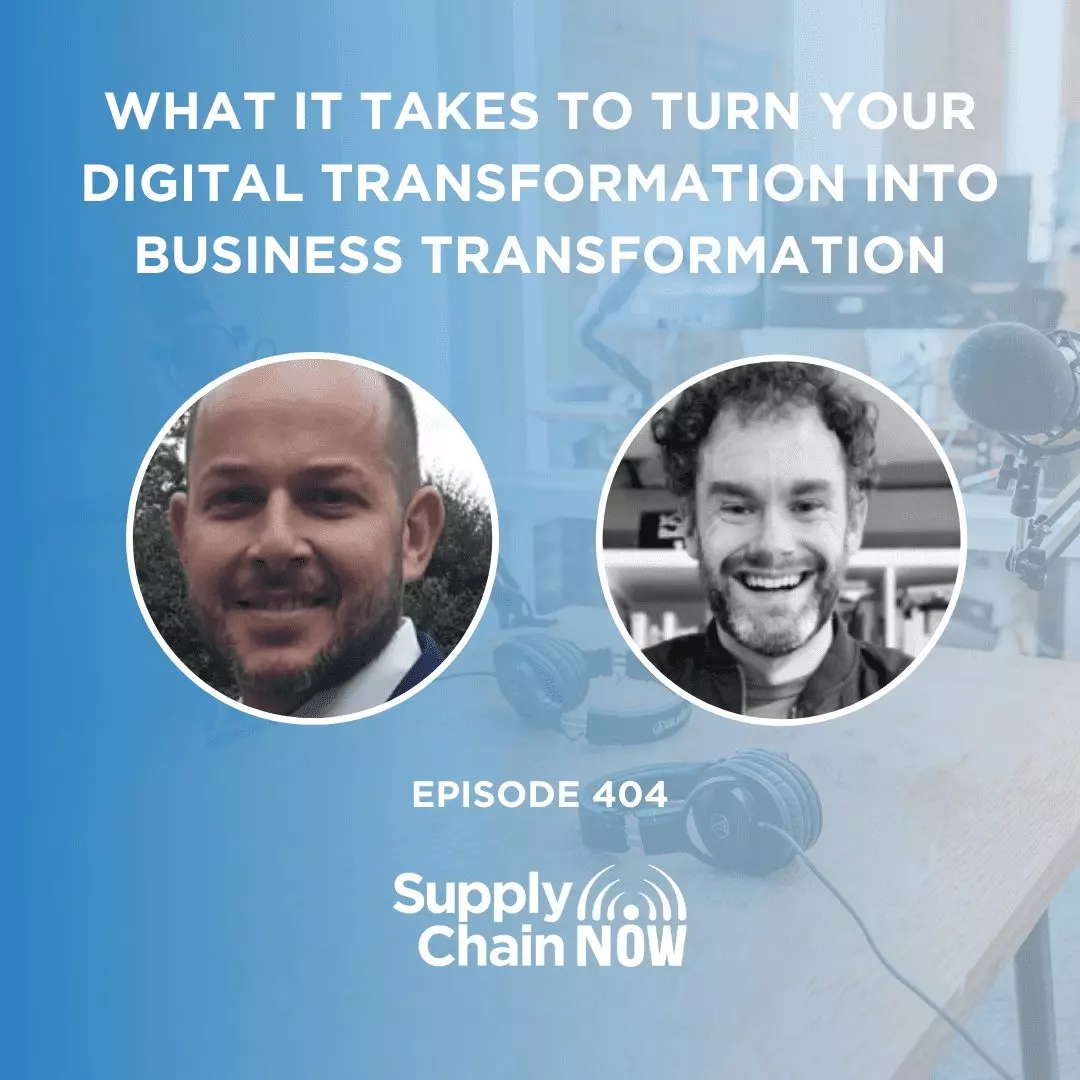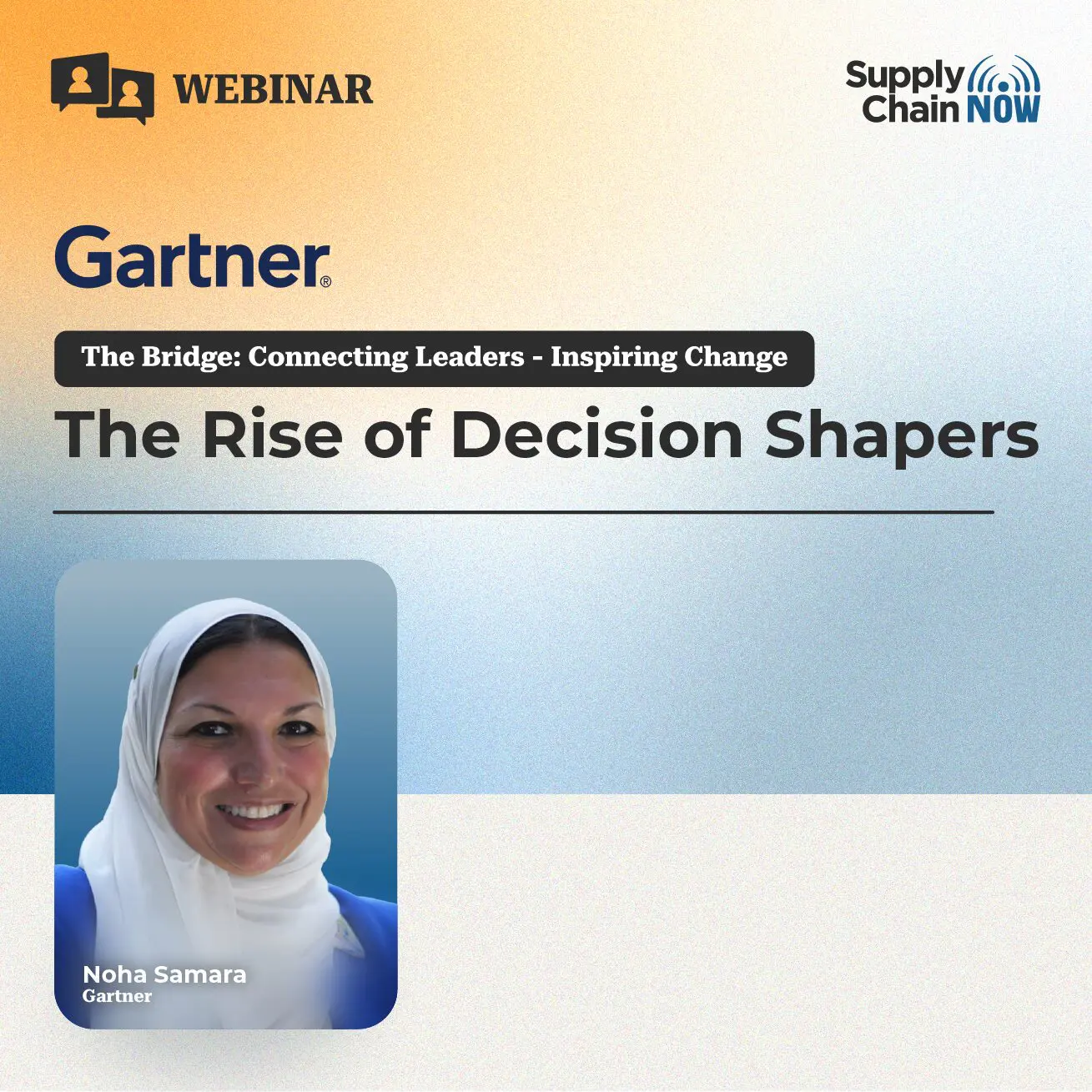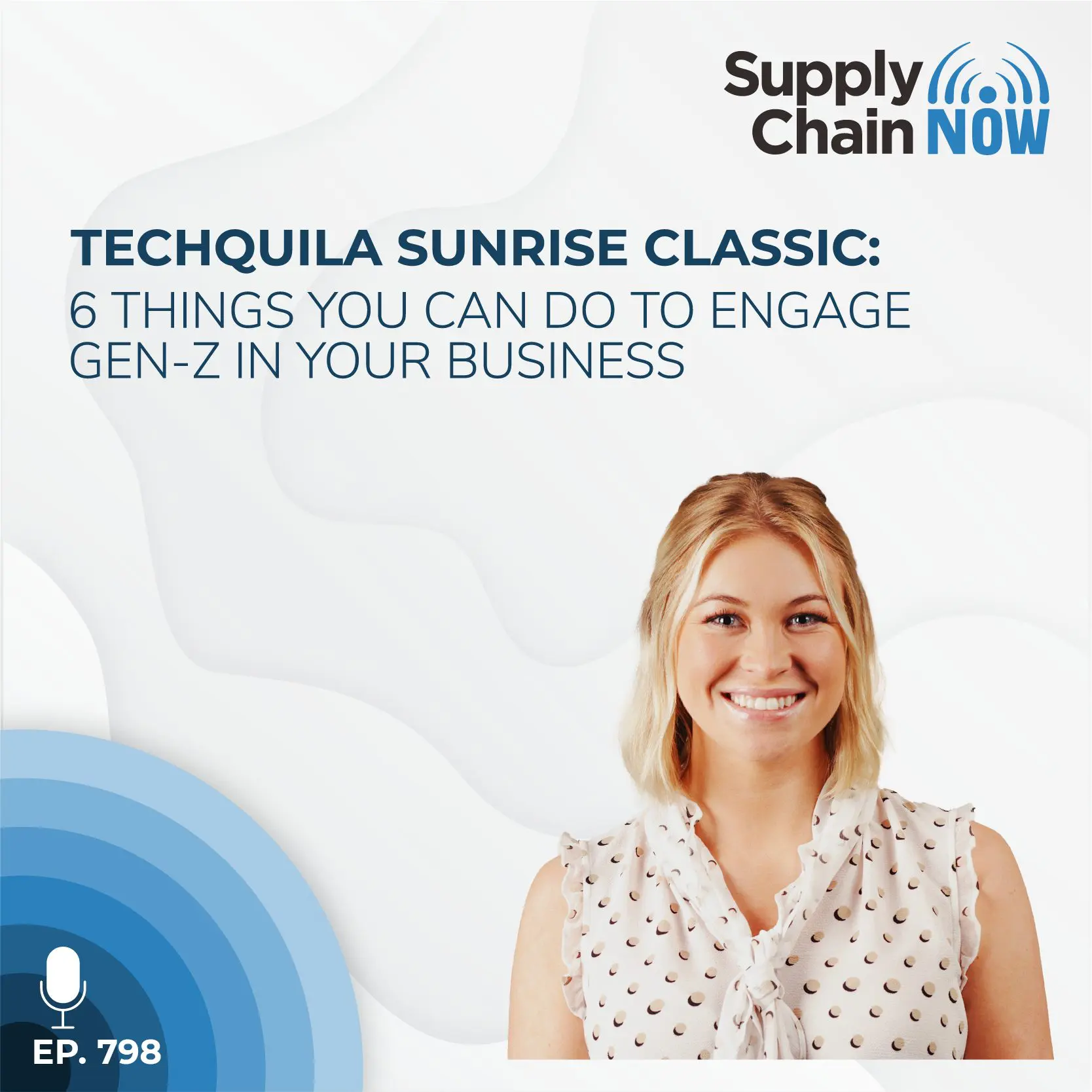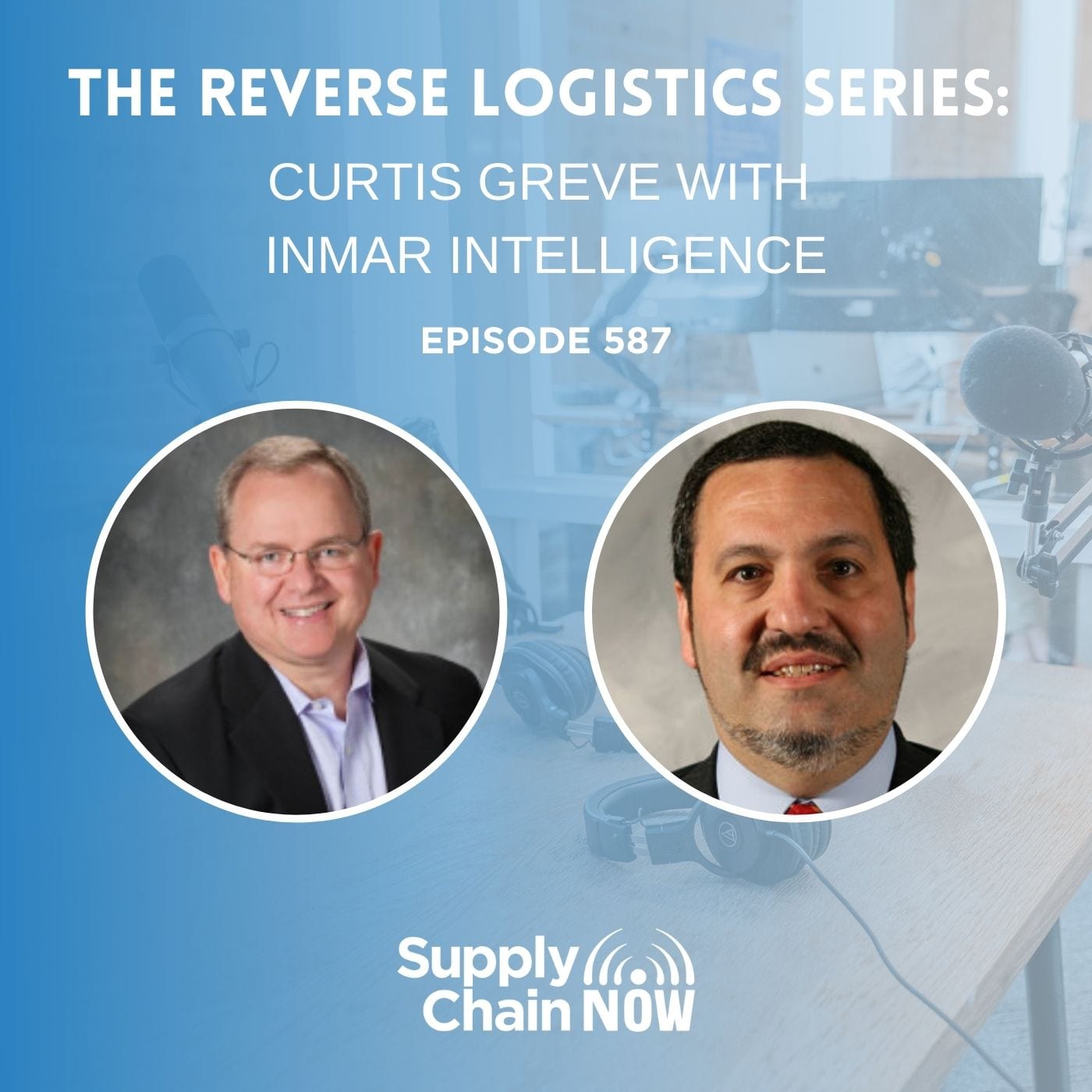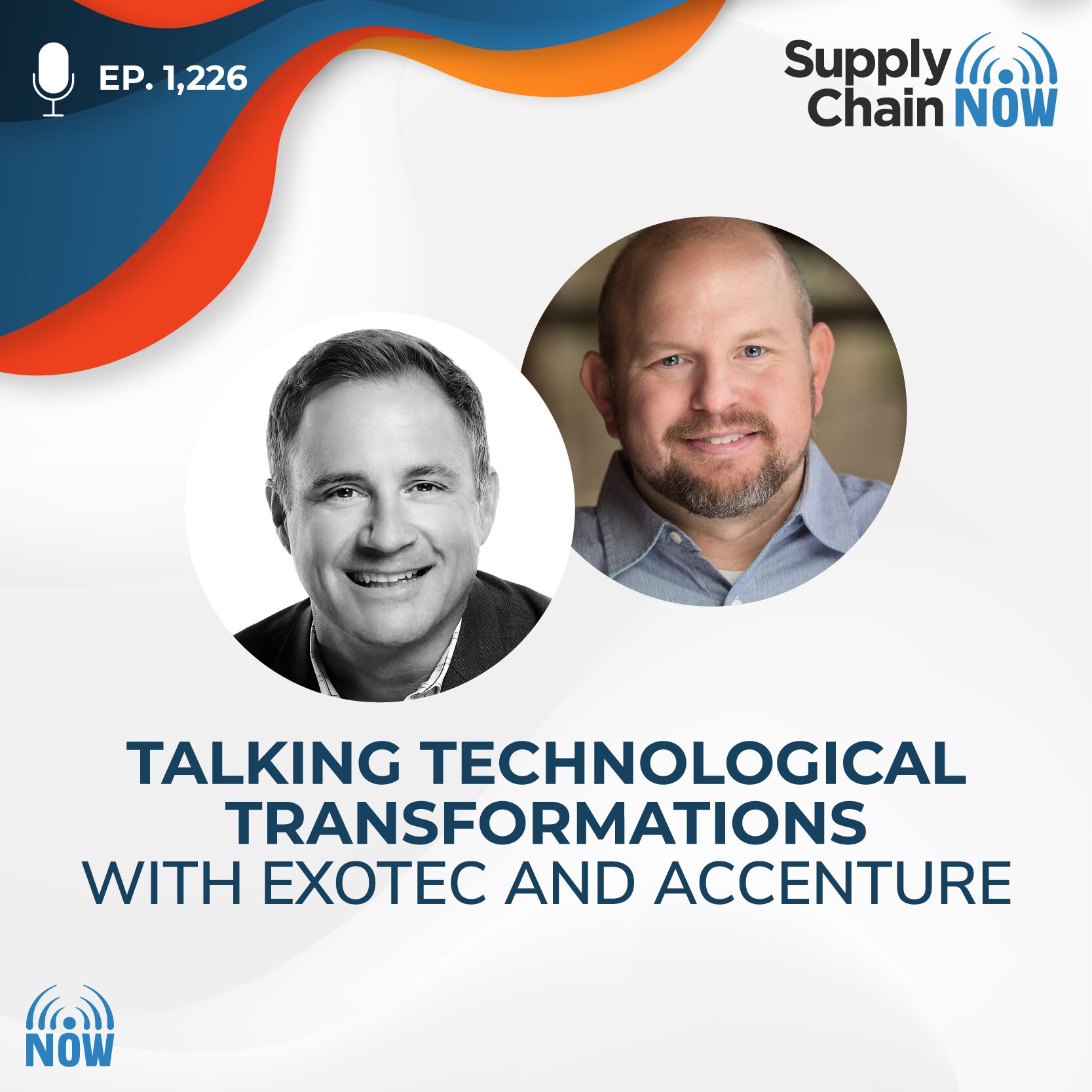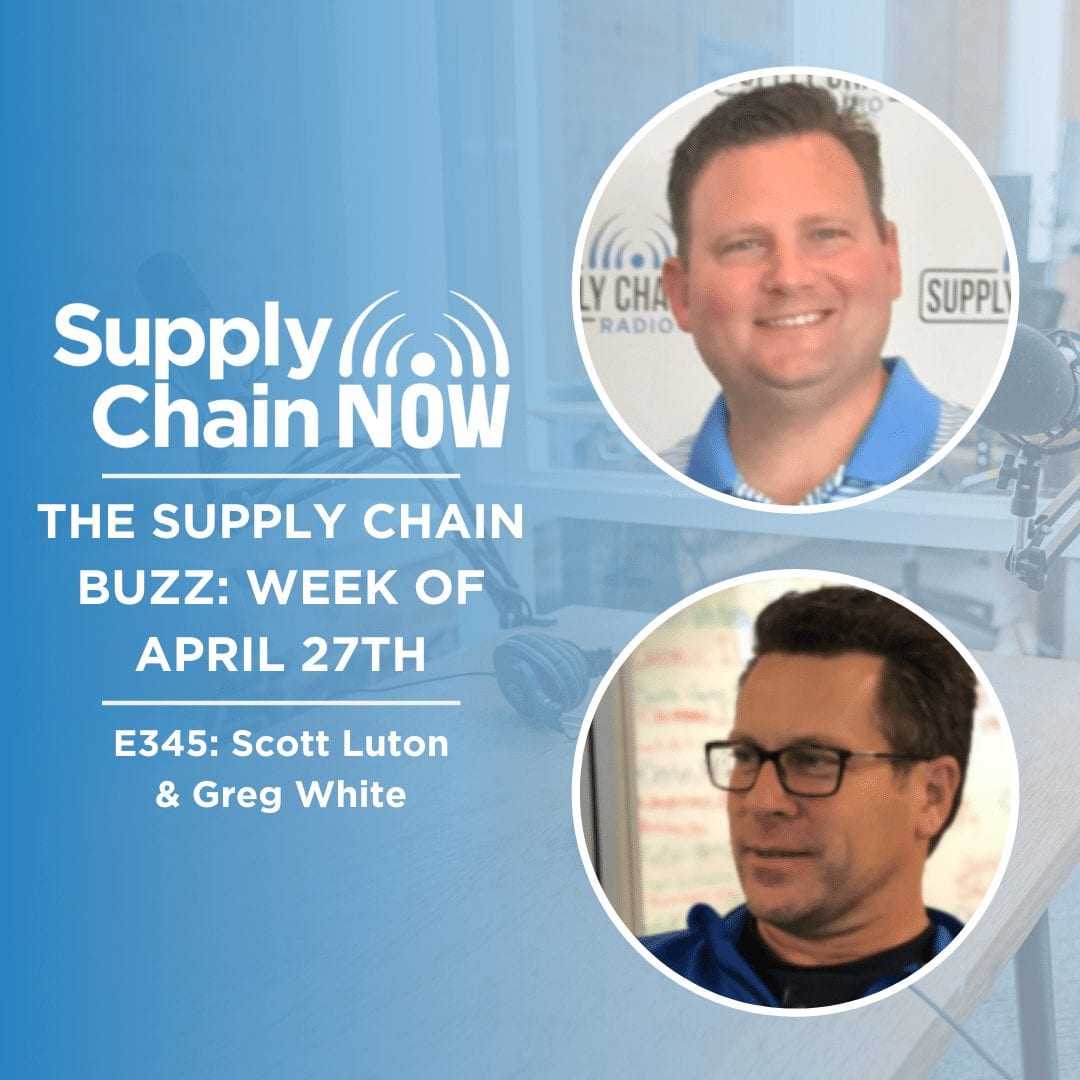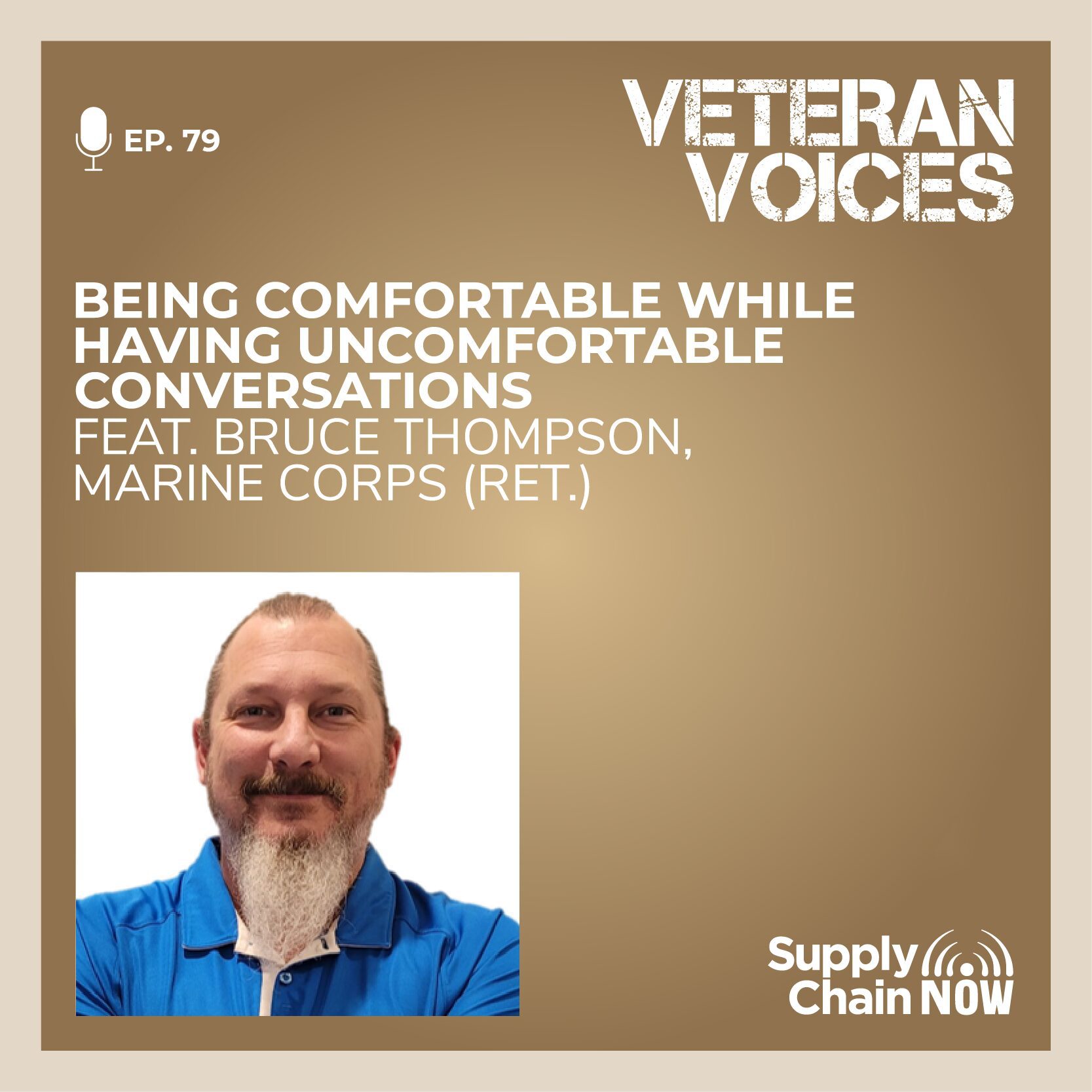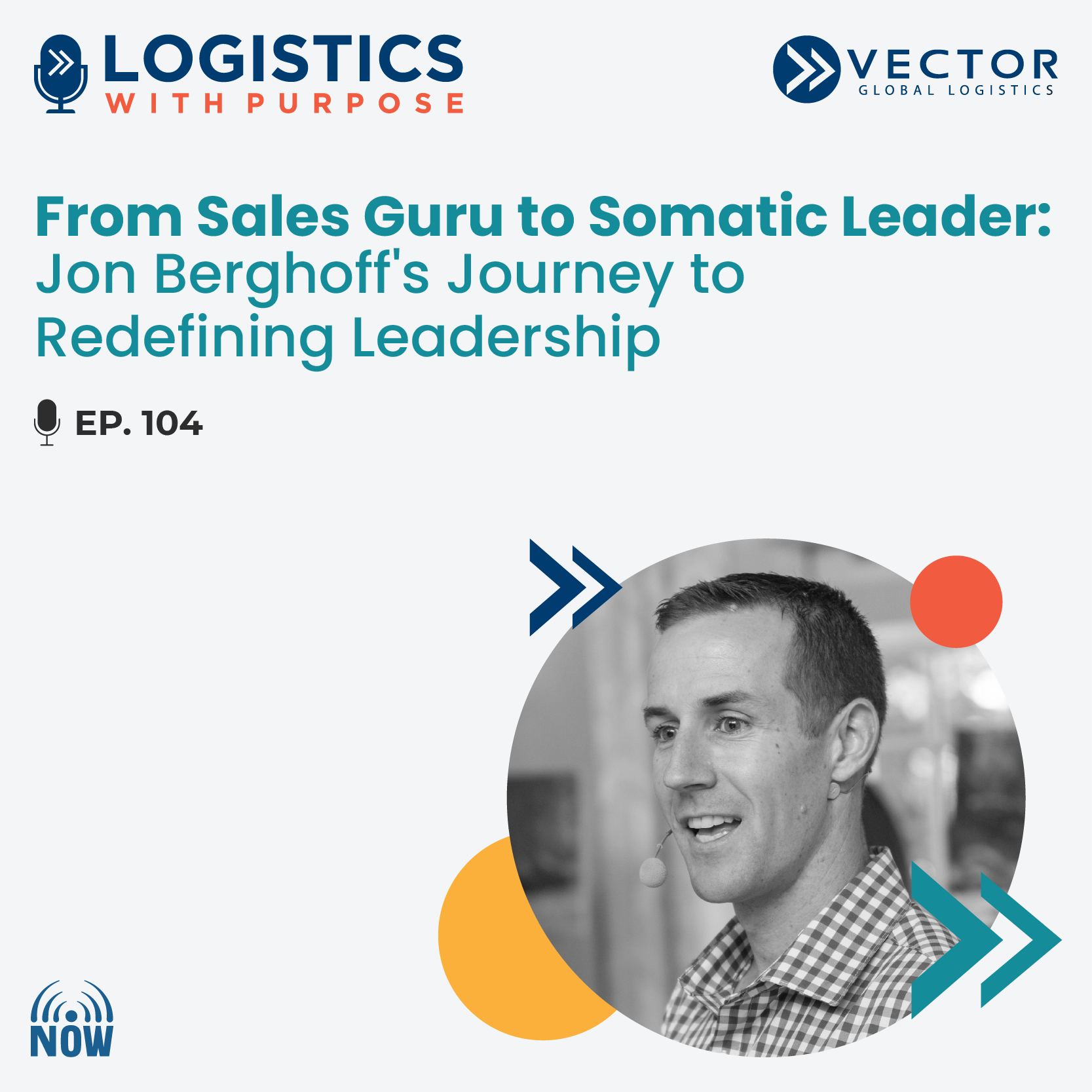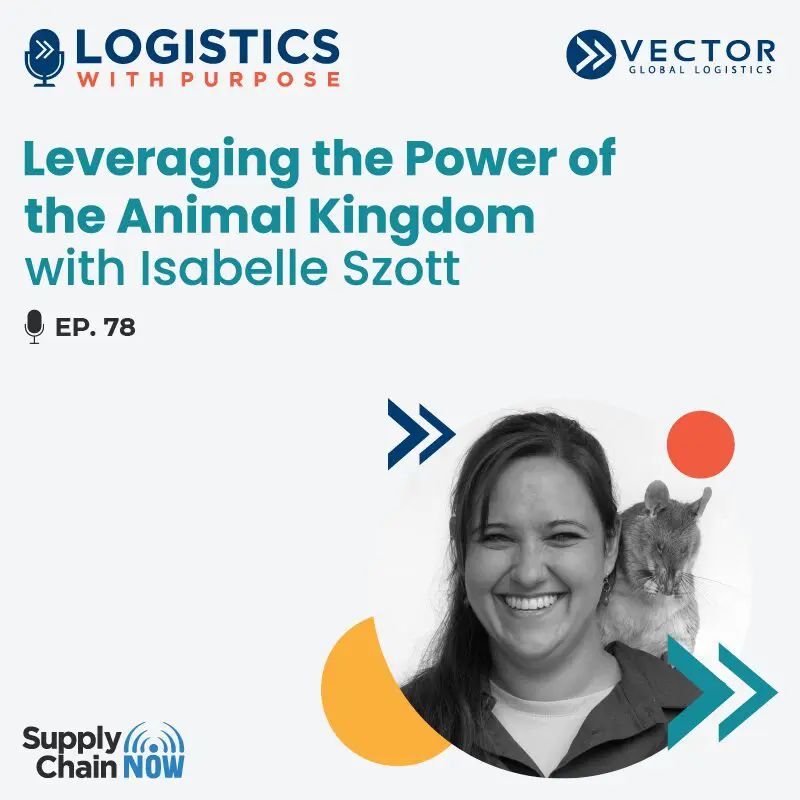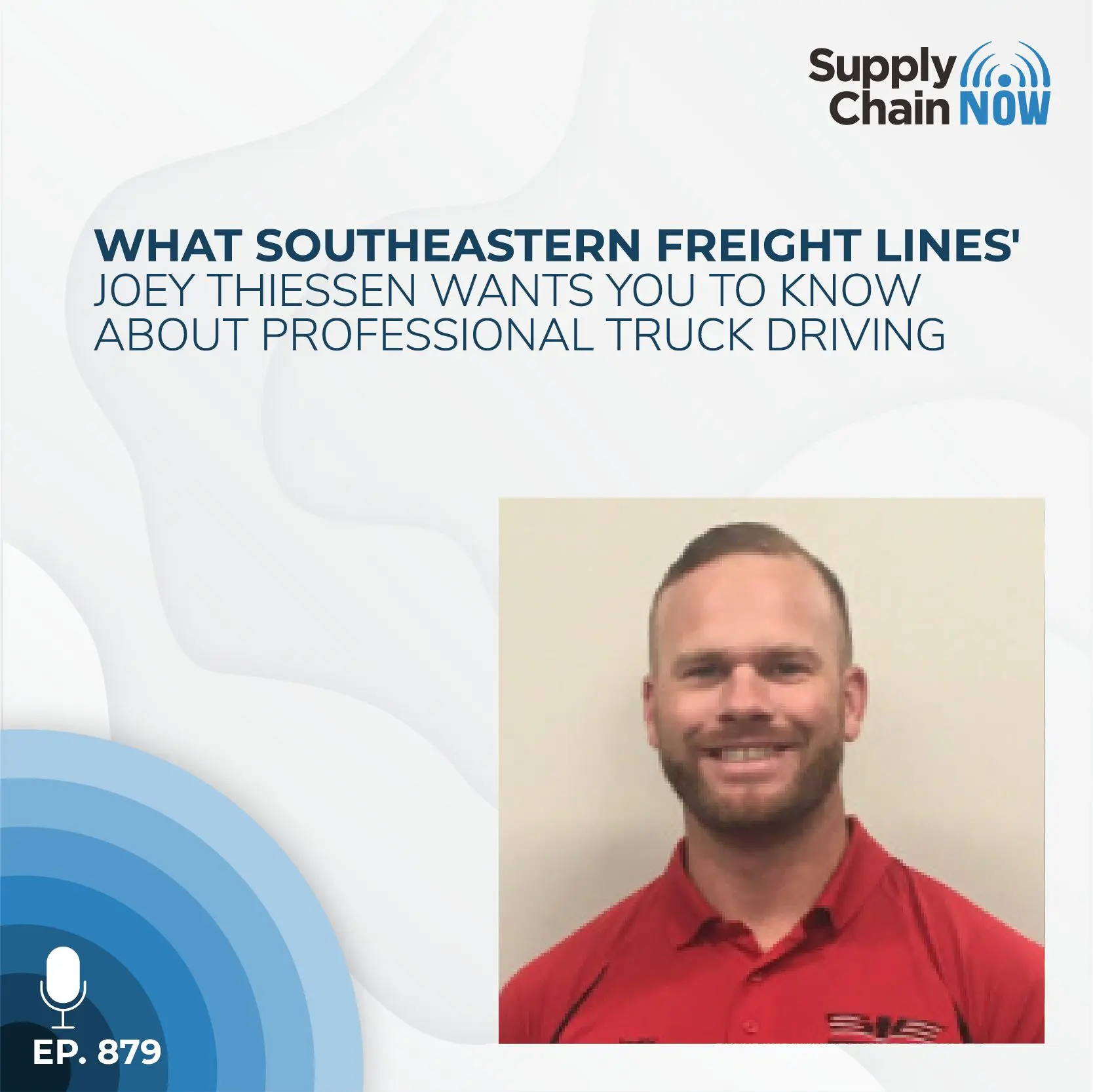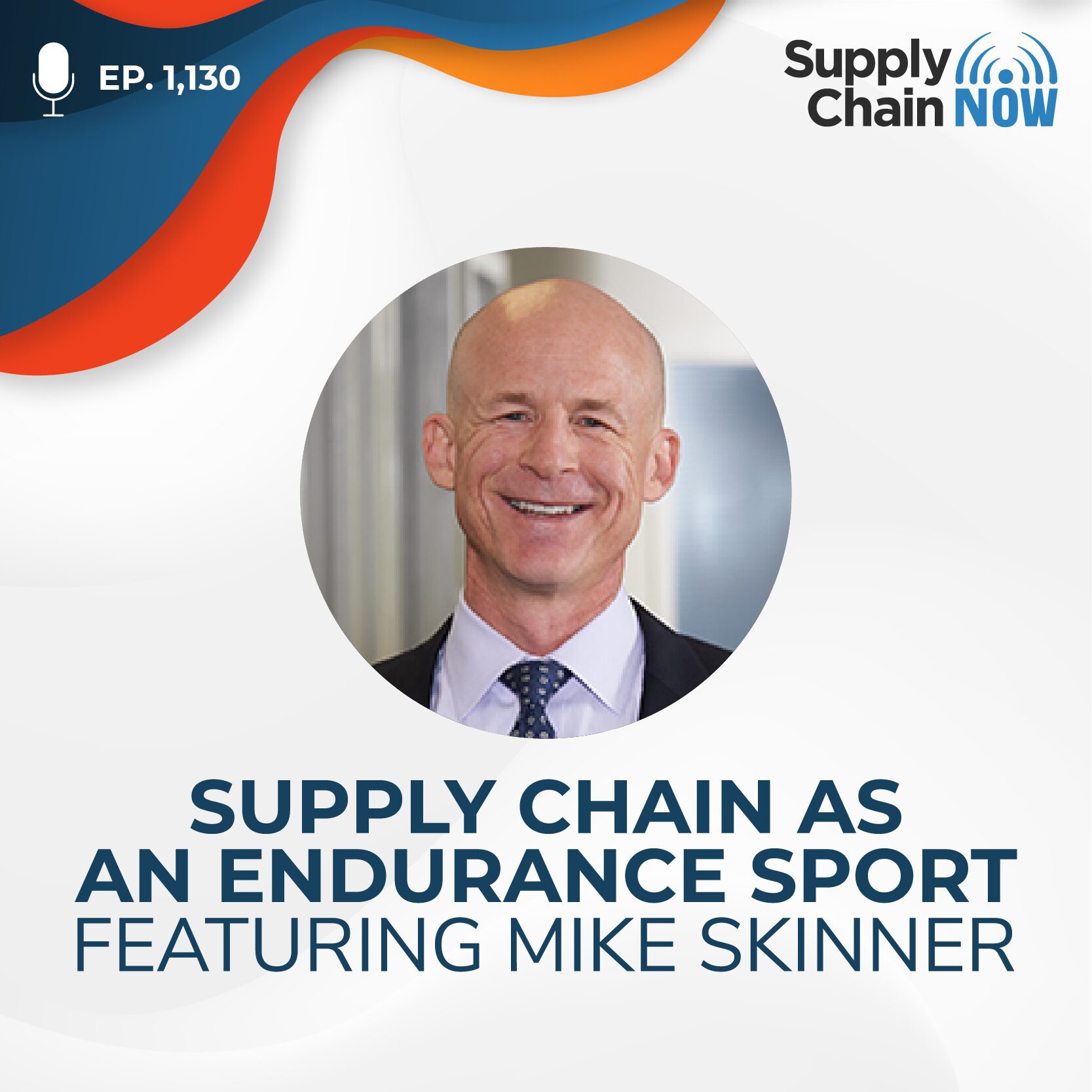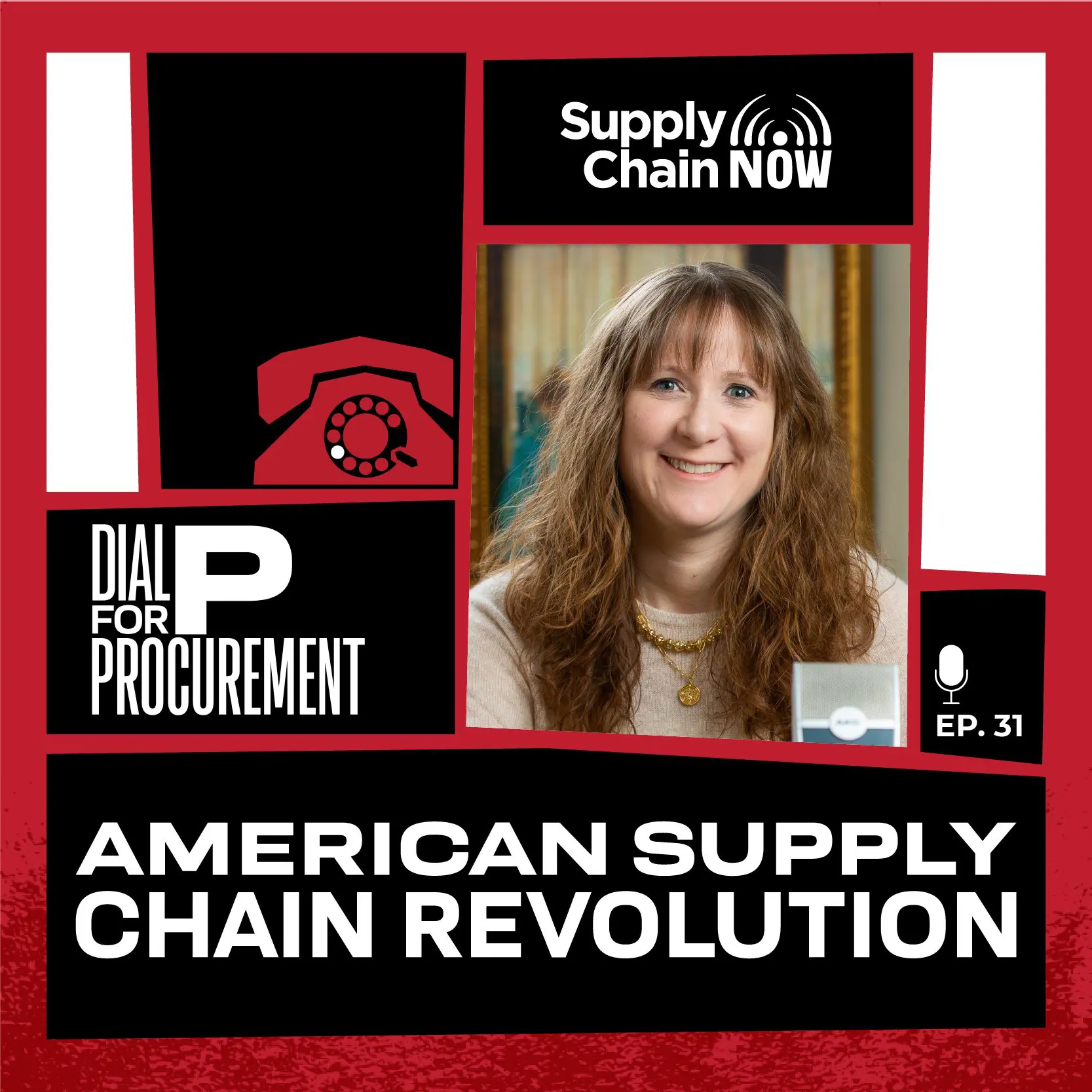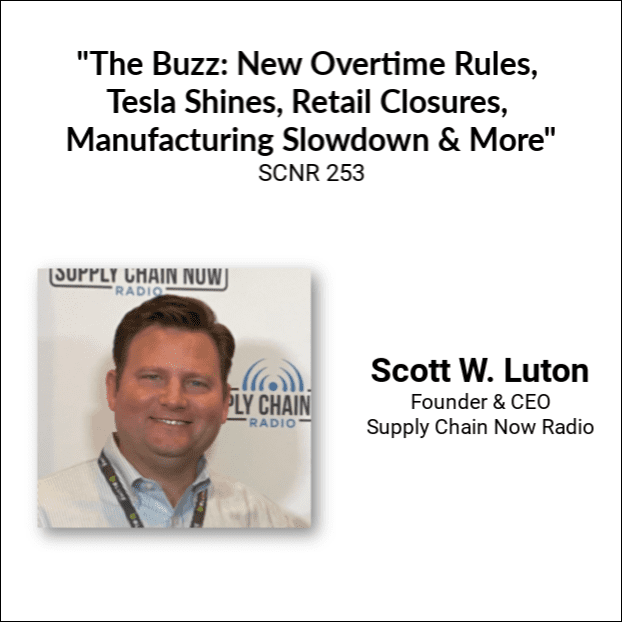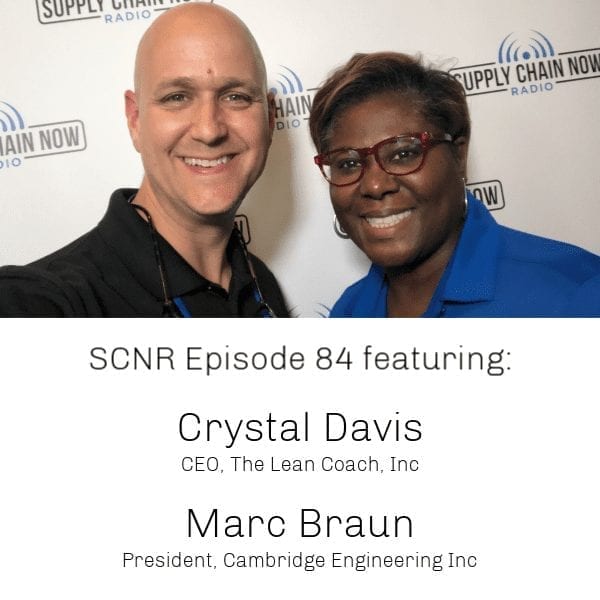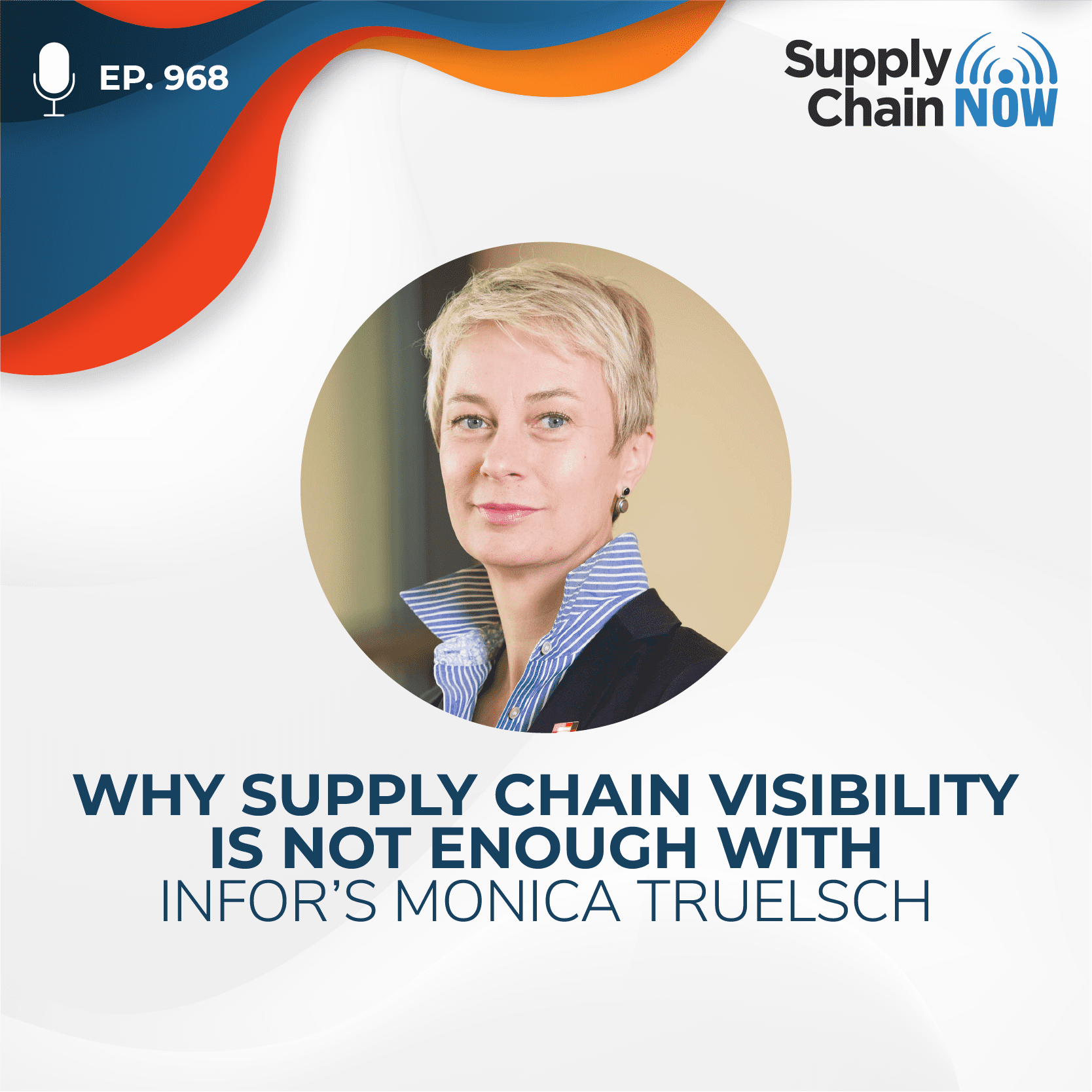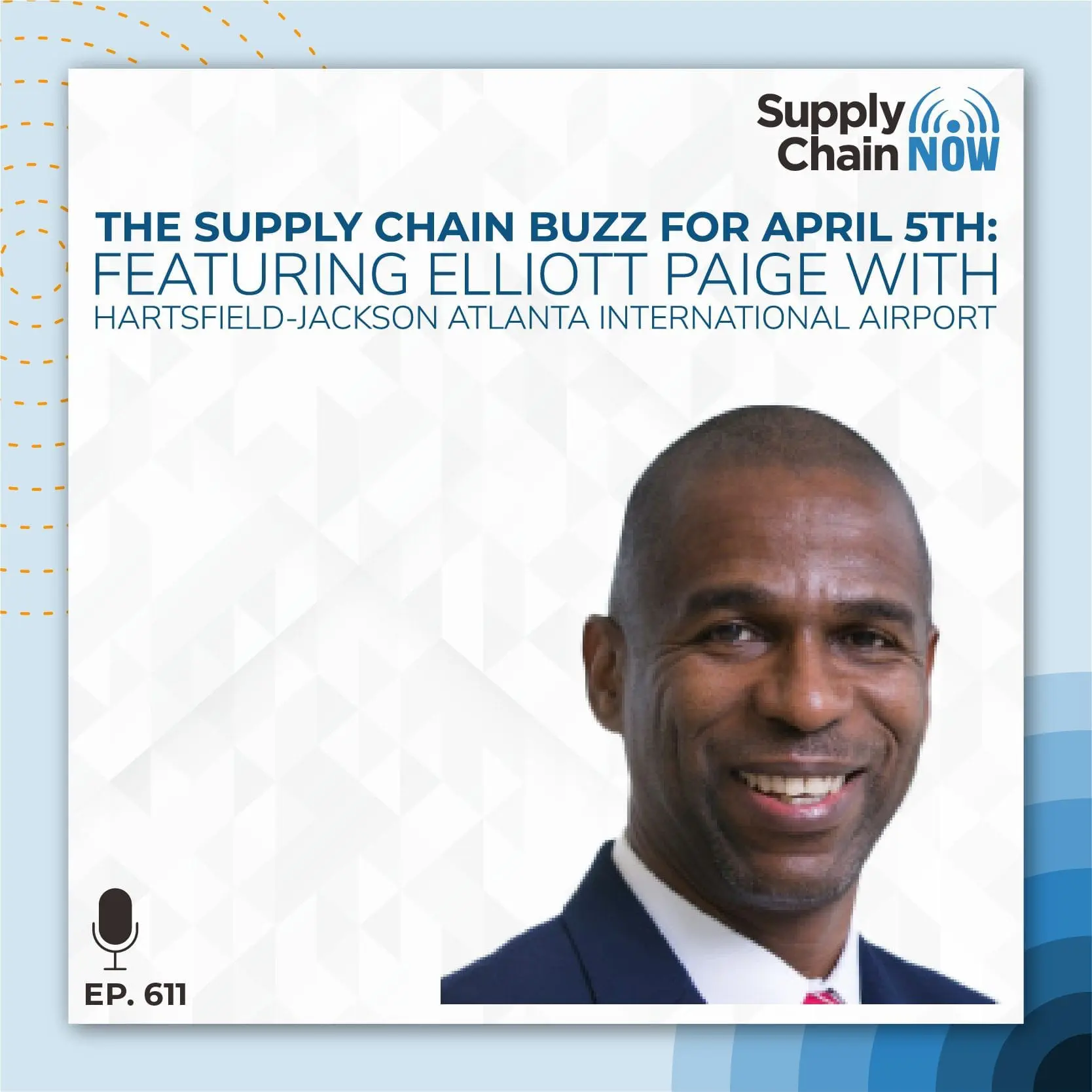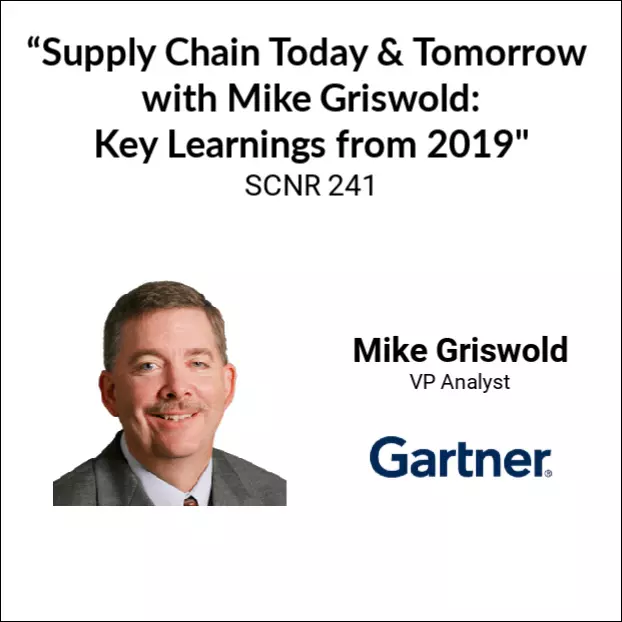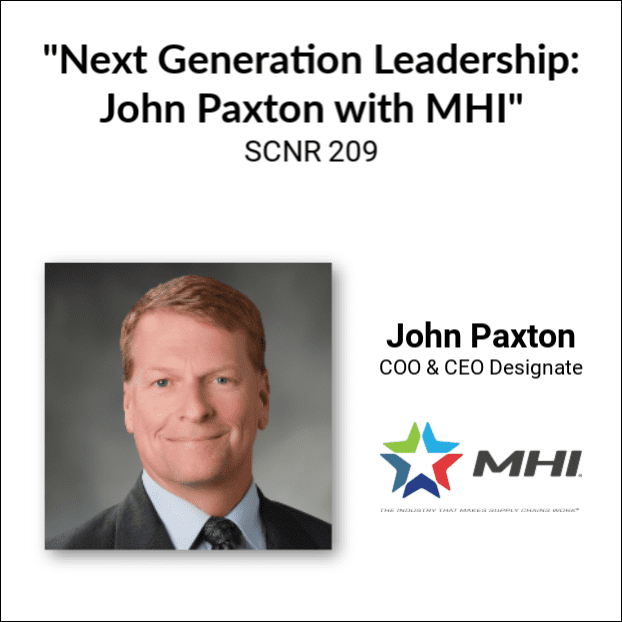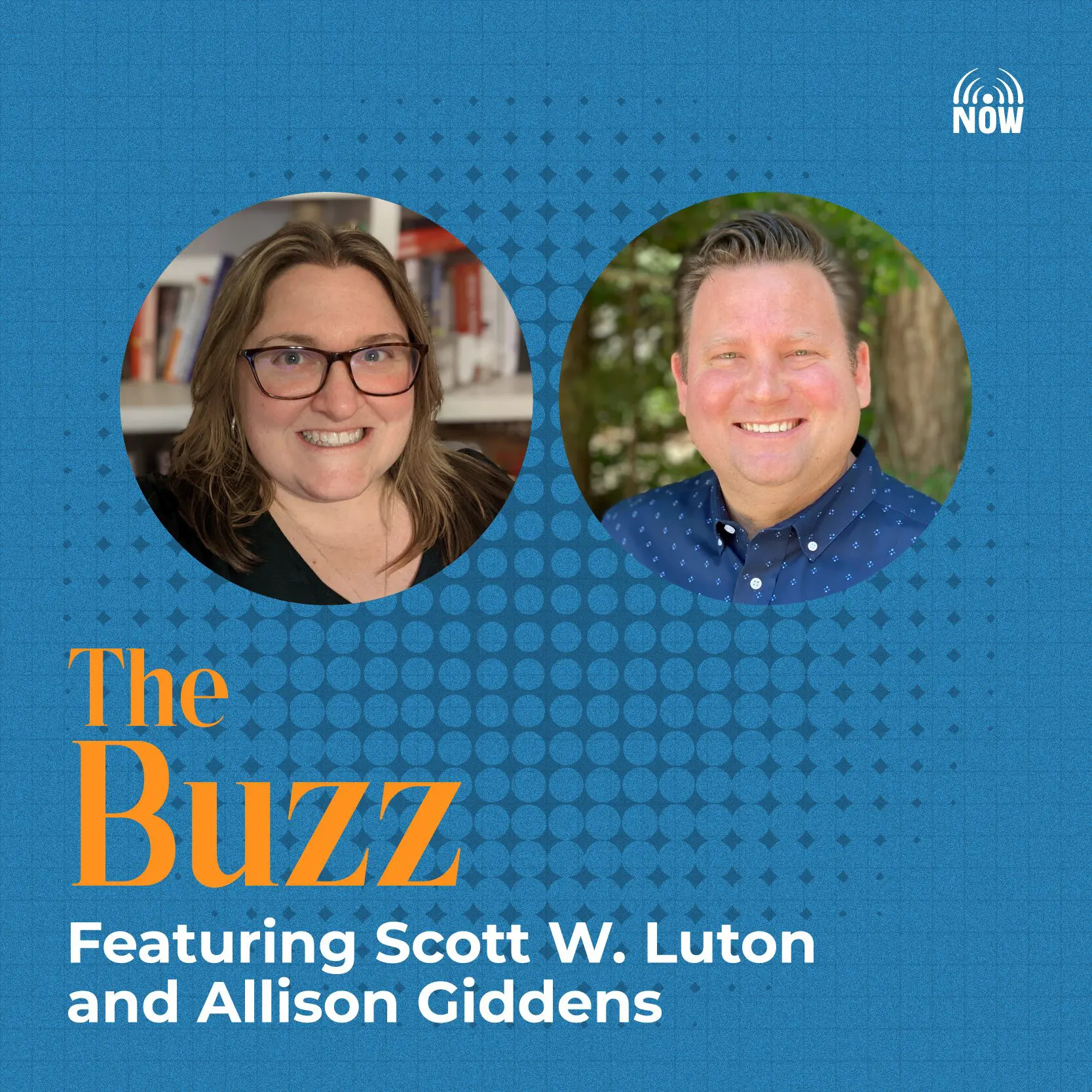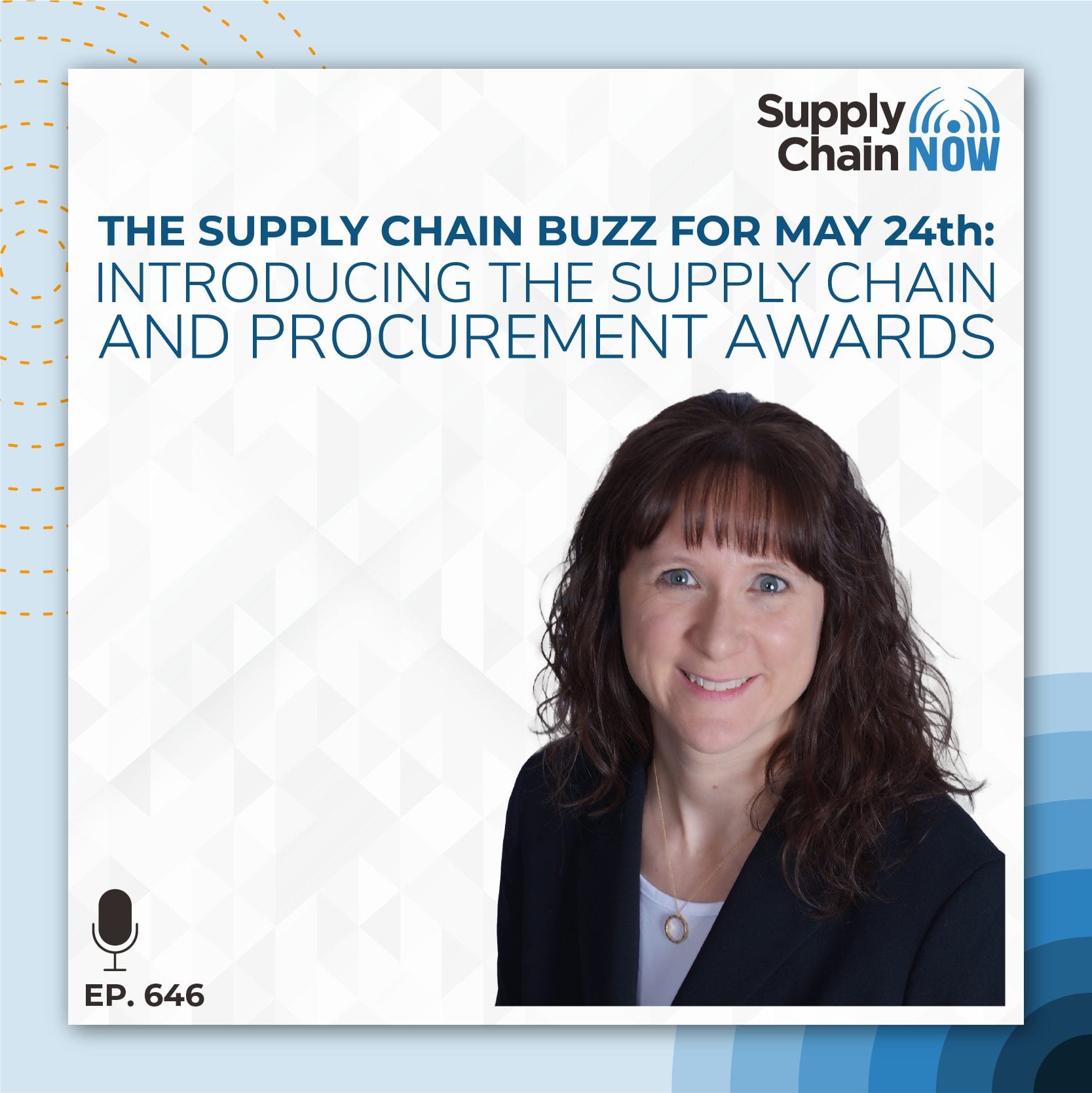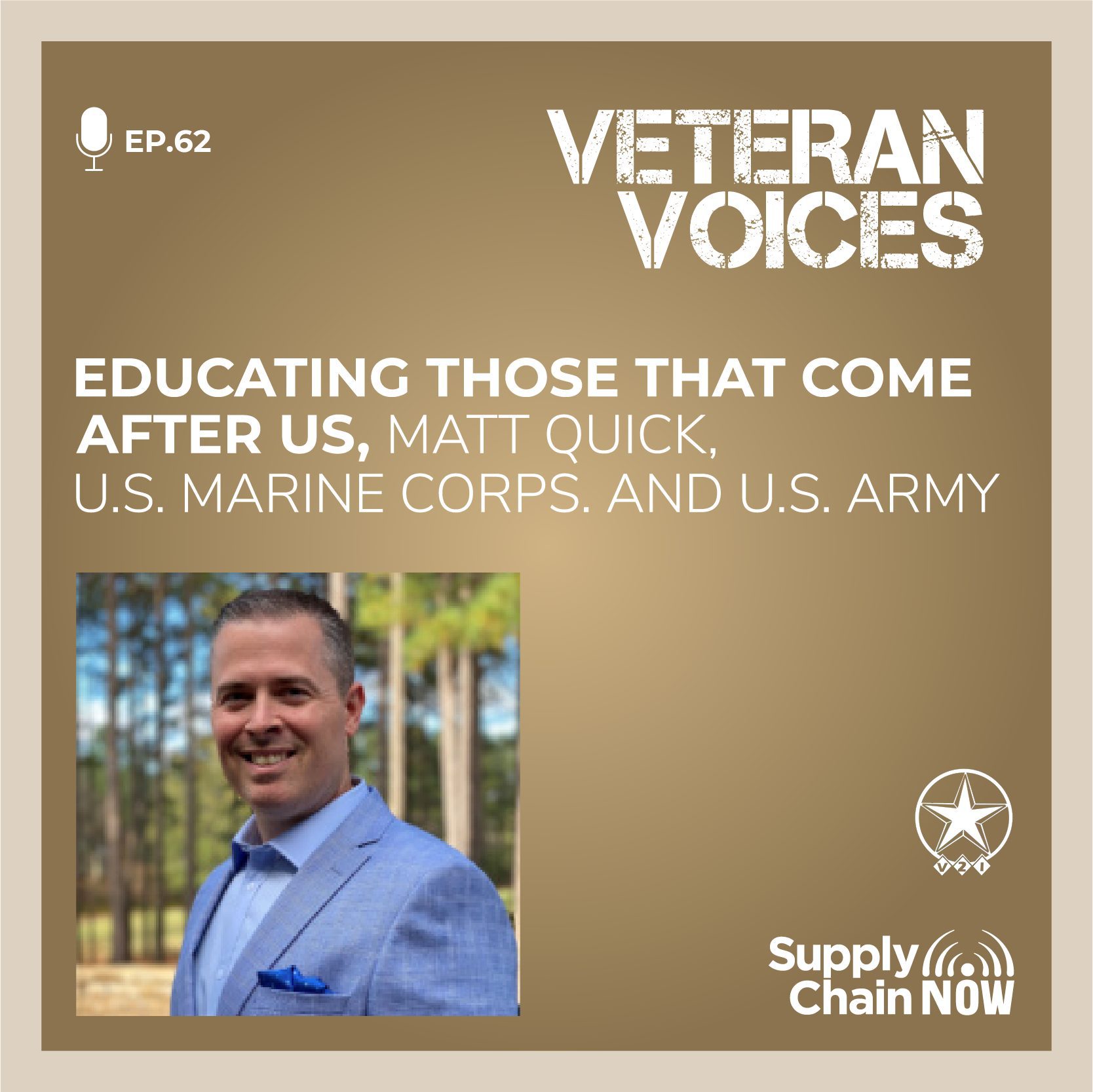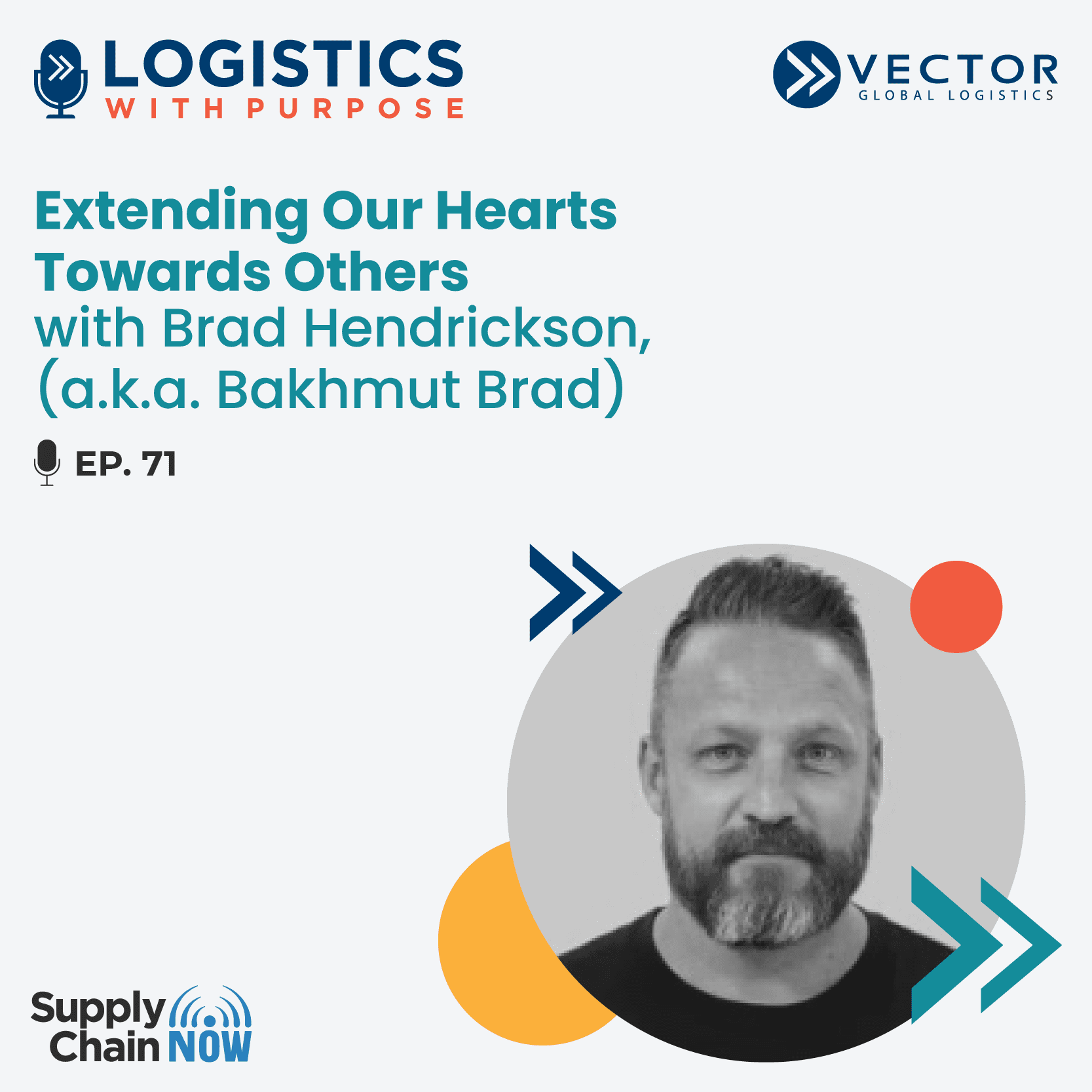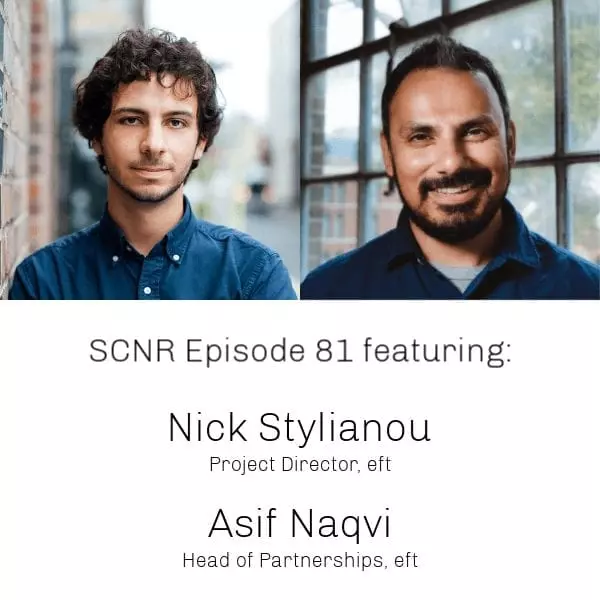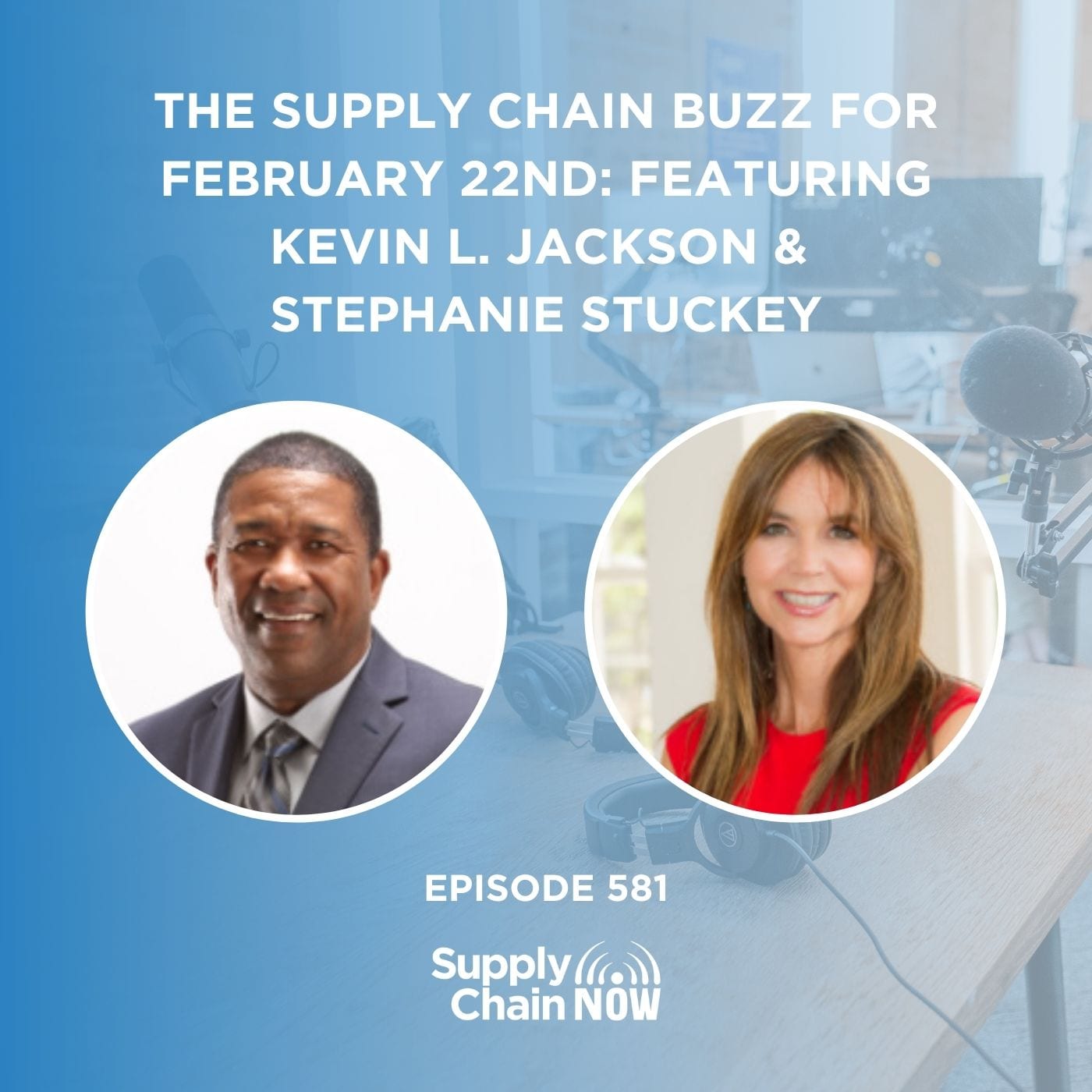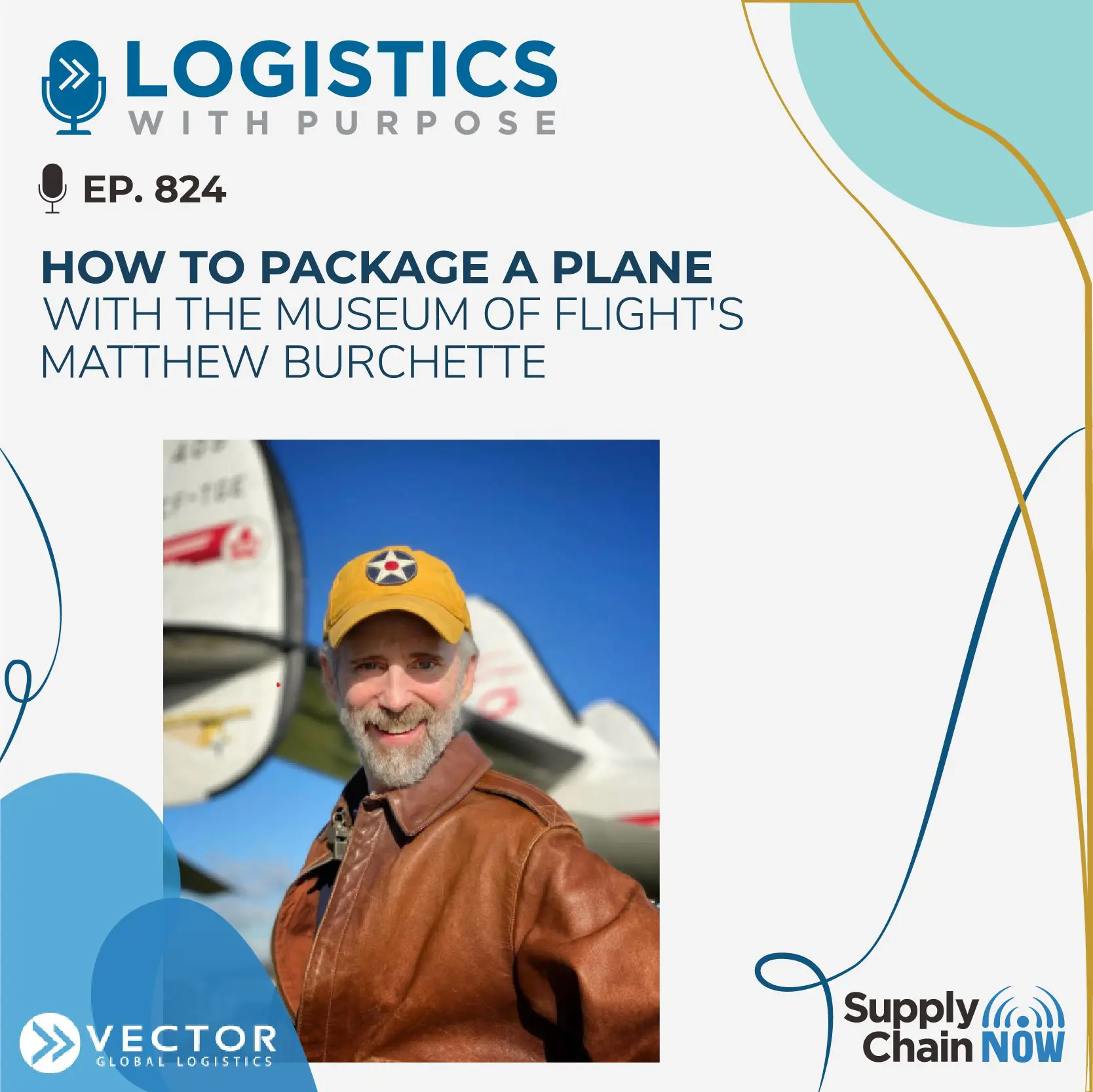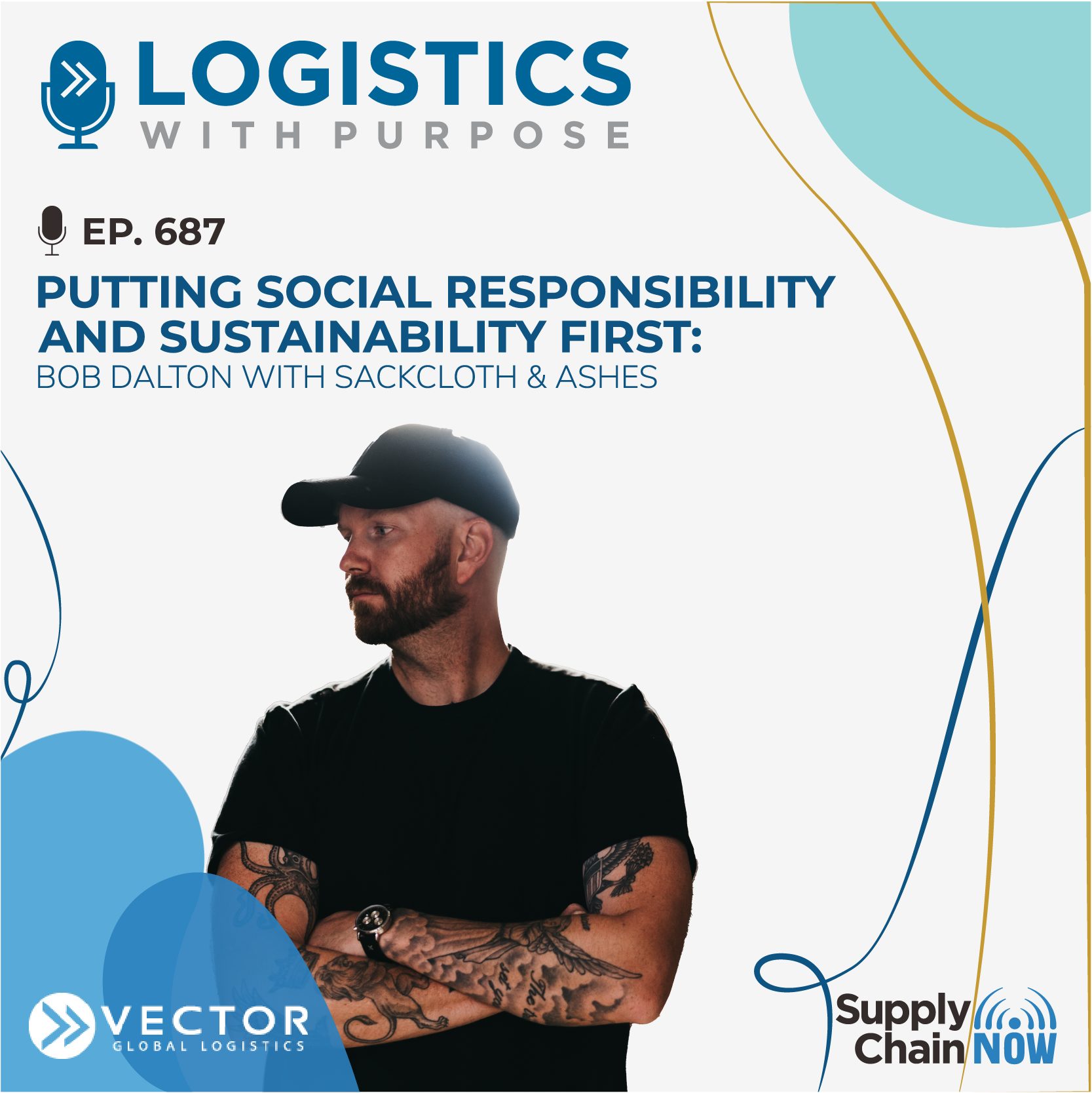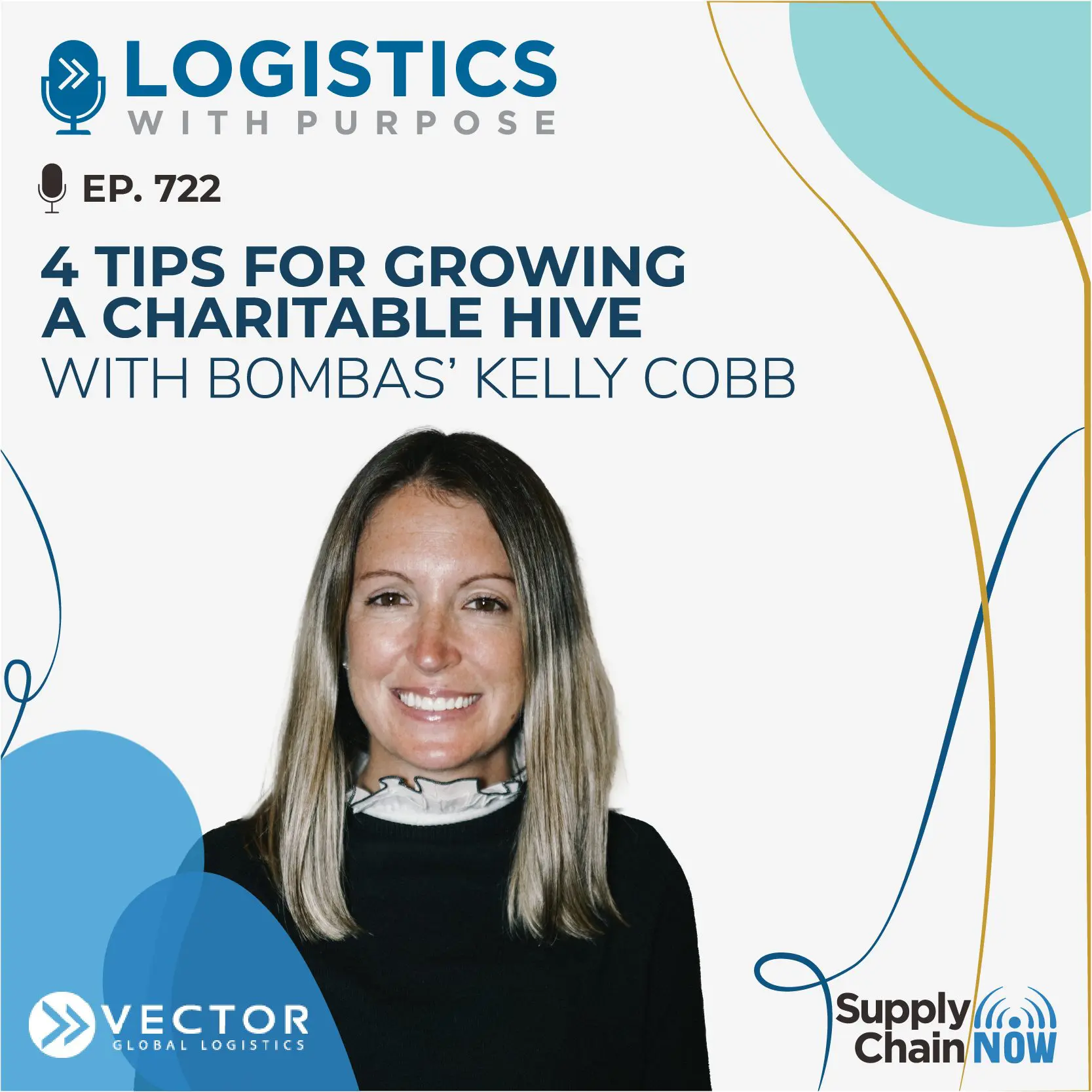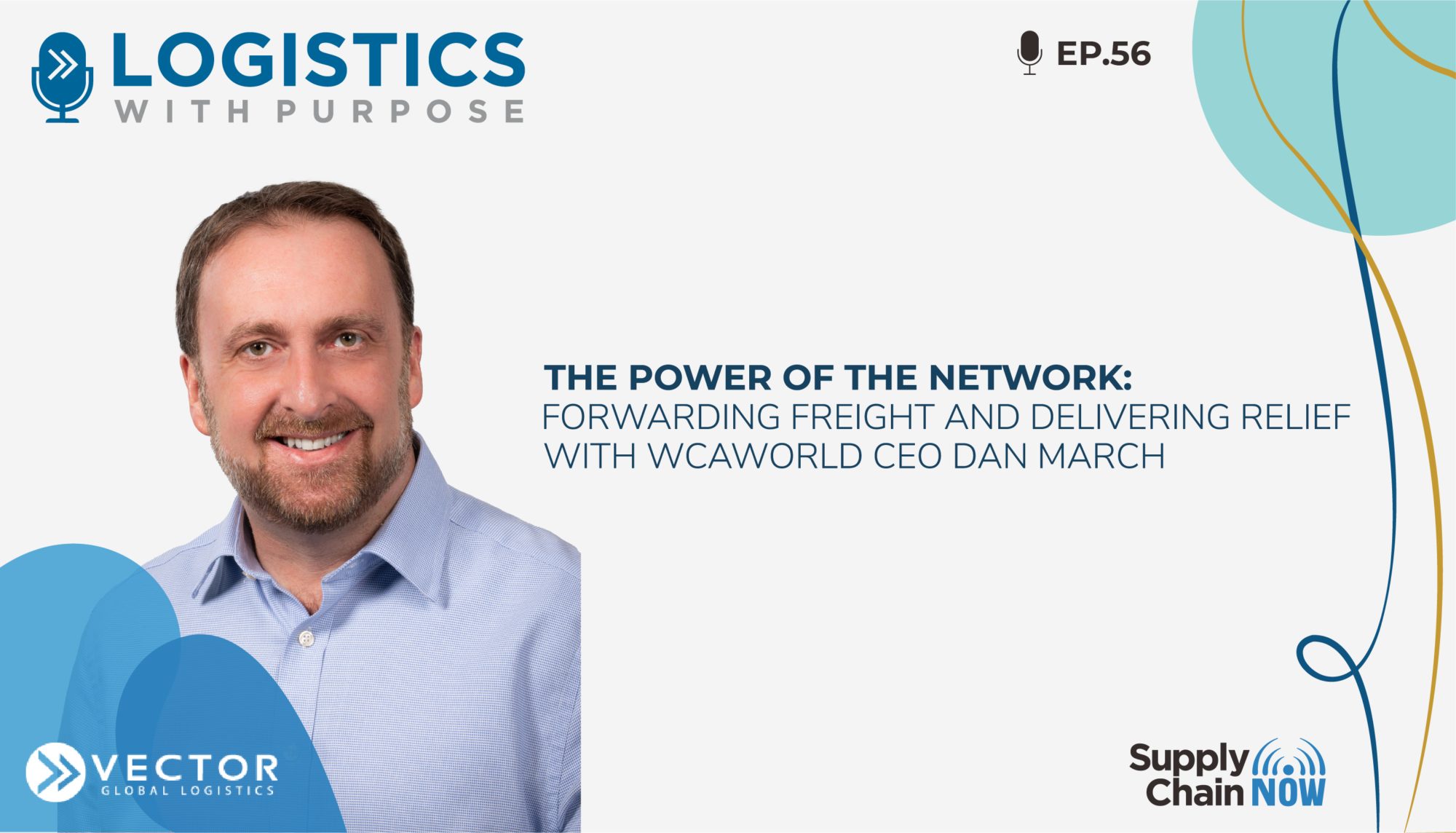
It's not about taking sides in the world, it's about seeing a humanitarian crisis and helping the people that are in need, and our members have stepped up and hopefully we've been a good catalyst to help the Ukrainian people at this time of need.
-Dan March
Episode Summary
Who powers the world’s most powerful logistics network? That would be Dan March, CEO of WCAworld, the world’s largest network of independent freight forwarders. But he doesn’t do it alone, and it’s the communal spirit shared by WCAworld’s 10,841 member offices that helped the company form the WCA Foundation and ultimately send life-saving relief around the world, including to those affected by the Russia-Ukraine war. Tune in as Enrique and Maureen chat with Dan about his childhood pilot ambitions, what helped WCAworld grow, COVID pivots, network membership benefits, helping out in Ukraine and more.
Episode Transcript
Intro/Outro (00:00:02):
Welcome to logistics with purpose presented by vector global logistics in partnership with supply chain. Now we spotlight and celebrate organizations who are dedicated to creating a positive impact. Join us for this behind the scenes glimpse of the origin stories, change making progress and future plans of organizations who are actively making a difference. Our goal isn’t just to entertain you, but to inspire you to go out and change the world. And now here’s today’s episode of logistics with purpose.
Enrique Alvarez (00:00:34):
Hi, good day. My name’s Enrique Avarez and I’m here again for another very exciting episode of logistics with purpose. Hey Maureen, how are you doing twice the
Maureen Woolshlager (00:00:44):
Same week?
Enrique Alvarez (00:00:45):
I’m so happy that you’re my co-host again.
Maureen Woolshlager (00:00:48):
I know, I feel honored. I had to, uh, I get to be, uh, sharing this opportunity with you two days in a row.
Enrique Alvarez (00:00:55):
I know I’m the one that’s really happy to do it. And, uh, of course we have a very interesting guest, an organization that has been doing amazing for the last couple years, and they have actually launched a couple of new, um, tasks and, uh, taskforce or, and, or organizations even that will find out a little bit more, um, with us today. And I guess without further, I do Dan marsh, chief executive officer at the WCA world. Hey Dan, how are you doing?
Dan March (00:01:23):
Hey, I’m Rek. I’m great. So it’s good to see you again, a couple of days after seeing you in the Netherlands.
Enrique Alvarez (00:01:29):
I know I, I had the pleasure of having lunch with Dan this week, which is very rare given that we’re never in the same continent and he travels all around the world. So, yeah. Thanks for, thanks for giving me some time to do that too.
Dan March (00:01:43):
And isn’t it great to be traveling again?
Enrique Alvarez (00:01:45):
I know it was fun to kind of see each other face to face wasn’t it?
Dan March (00:01:49):
Yeah, it was brilliant. And the, the small conference we just had, uh, to see all those smiling faces and people really overjoyed to be back in the same room and not doing what we’re doing right now, but talking on zoom, but actually actually sharing, uh, stories and drinks together and, and reconnecting. It was, uh, it, it filled my heart after two years of, of, uh, of pain, of not being able to see these people. So it was, it was a great week.
Enrique Alvarez (00:02:15):
Absolutely. Especially you, right. As a leader of an organization that relies on networking and seeing each other face to face, it must have felt like, Hey, reconnecting with all friends and
Dan March (00:02:25):
Exactly it, it, you just slipped straight back into it. It’s like it, you know, it it’s like it never happened and, and the people are still great. And they’re so happy to, you know, be able to finally reconnect with each other from countries that, that they hadn’t seen each other for three years or so. It’s, uh, I’m glad it’s back and let’s hope it stays that way.
Maureen Woolshlager (00:02:47):
Well, Dan you’re in the UK, right?
Dan March (00:02:49):
I’m in the UK right now. Yeah.
Maureen Woolshlager (00:02:51):
Yeah. Cuz you guys had some pretty strict lockdowns for a while as well. I think a, a bit more than we experienced in the us. So I’m sure, uh, the feeling of freedom feels a little bit better for you because it was
Dan March (00:03:02):
Pretty strange. It, it is. We, we had a streak for certainly that first year and into this, the, the winter spring, the second year was, uh, it was tough and came and went. You think you’re coming out of it. And then a new wave would hit and we be locked down again. Yeah. But I think my wife and children are more glad that I’m traveling again than anyone. Cause they’ve seen more than enough of me for two years, but yeah. So, uh, the next one is a, is a conference in Dublin. We have in, in June, uh, that’ll be bigger, that’ll be 700 plus people and that’ll be noisy and, and roll, but a lot of business and a lot of new partnerships form. So I can’t wait for that.
Maureen Woolshlager (00:03:41):
What’s the topic for that one?
Dan March (00:03:43):
Uh, it’s just a regional conference. Okay. So, um, we decided normally each year we do a very large conference with, with up to 3000 freight forwarders attending of our members. Uh, it hasn’t been possible in COVID. So we thought this year, instead of doing, uh, one very large one, which is, which has been problematic to organiz, as you can imagine, we normally hold it in Asia. Asia’s part of Asia is still in lockdown, right. We’re holding a series of little bit smaller, but still pretty large regional conferences. So it’s, it’s no theme. It’s just anyone from anywhere in the world that can make it to Europe can come along and reconnect with all their current partners and hopefully find some new business.
Maureen Woolshlager (00:04:25):
I’m gonna check my calendar for that one in Dublin. Right. Enrique <laugh>
Enrique Alvarez (00:04:28):
That sounds like a fun one. Uh, but so before, before we jump too ahead of ourselves, right? Yes. Cause, uh, we’ll talk a little more about the WCA and your professional career in a second, but going back to your childhood, if you could tell us a little more about who Dan marsh is, who, who are you Dan?
Dan March (00:04:45):
Well, <laugh>, that’s a very interesting question. Probably
Maureen Woolshlager (00:04:50):
It’s a loaded question,
Dan March (00:04:52):
But I, I was born in, um, in a historic city in the, in the west of England called Bristol. It’s an old port city in the, uh, early 1970s. And uh, I grew up, spent my first 18 years there with, uh, my three siblings and, and my parents. Um, and it was a lot of fun. We, it was tough times in the early eighties in the UK, it was, it was economically struggling a bit. Um, we didn’t have tons of material, possessions or goods, but I had a great, um, environment to live in great friends, supportive family. And, and I had a, a lot of fun. I probably should have worked a bit harder, but I had a lot of fun and, and a pretty happy childhood. So that was my, uh, my starting life. Um, and then I moved off to university in London. Hold on
Enrique Alvarez (00:05:45):
Before, before you rush. Yeah. We’re gonna let you go that easily when it comes to your childhood days. But, um, yeah. So favorite sport?
Dan March (00:05:53):
Well, uh, traditionally the west country where I grew up rugby was, was the big sport, um, certainly in schools. Uh, so the winter sport was rugby. The summer sport was cricket. Two sports that I know in the us doesn’t have a lot of, uh, penetration into the, into the, into the social fabric, but also soccer or football as we call it, um, was also big as
Enrique Alvarez (00:06:19):
The rest of the world calls.
Dan March (00:06:24):
It’s it? Soccer? Yeah. Played any sport. I was cycling all time, played tennis SW for the county, uh, did a bit of running for the county. I think I was hyperactive, but I was always, uh, always at the house doing something or other, whether it was, uh, cycling, maintain, doing stuff with my friends or doing organized sport. That’s what, uh, what I really enjoyed, but rugby is a great game. Uh, it’s a bit like, I guess the closest thing you have is, is NFL American football. Uh, it’s a little different, but it’s, um, it teaches you a lot of values that other sports don’t, there’s a real code of, of behavior and ethics in rugby that I think stands you in good stead. And I still
Maureen Woolshlager (00:07:12):
Physical sport, isn’t it,
Dan March (00:07:14):
It’s physical. It’s very physical. But, but the crazy thing is that you, uh, you bash a living daylight out of your opposition for, for an hour and a half on the, uh, on the rugby pitch. But the minute that final whistle’s gone, it’s gone and you, you all have a drink together, share together, have a meal together, you put on your club tie and have dinner together afterwards and reminisce and say, Hey, yeah, you got me when you stamped on my head or <laugh> me in the face. Yeah. That was a good one. And, and all the, you know, all the aggressions got on the and it’s all about the social afterwards. So it’s that good balance, a little bit dangerous, but a good balance.
Enrique Alvarez (00:07:54):
<laugh> any story Dan, kind of from your early days that kind of shaped who, who you are and slowly starting to give us some hints into what you chose, the professional path that, that
Dan March (00:08:06):
You chose? Um, well maybe if we go back to the rugby, I, I was, as I said, I went to school, I went to a state school, not a fee paying school. We didn’t have the money to go for me to go to one of the top schools or my siblings. So, uh, rugby at school, we played a lot of, um, uh, expensive fee schools, uh, who were very good, had the top coaches, top equipment, top training, even as you know, um, had scholarships for the better rugby players. Well, we were a, a state school where our, our sports teacher was on strike. Most of the, the, we, I was playing in the top level and what, what it told me, um, we decided to come together as a team, even though we had no organized training. And we decided at the beginning of the year, we were gonna try and beat some of these better schools that we hadn’t beaten for two decades.
Dan March (00:09:00):
So we, we started train together and then it came to the match day where we played the one of the top two schools, which was, um, in a beautiful surroundings, very opulent, uh, and us be dragged people with wrong colored socks on turned up and they were laughing at us, but we knew we were pretty good by then. And we were determined and we knew we’d, we’d tried hard. We trained hard, we didn’t have the facilities, but we went into the game and it always sticks in my mind cuz we, we won that game narrowly, but it was a shock on the faces of this very, uh, privileged school and, and the pupils within the school that they’d been beaten by the, uh, the OS from down the road. Nice.
Enrique Alvarez (00:09:46):
The other dogs. Yeah. Win again.
Dan March (00:09:49):
And that, and that’s what taught me. I mean, I’ve always loved to, to fight for the underdog and I think it’s much more satisfying to, uh, be an underdog and, and, and achieve than to, to have that, um, privilege at the beginning and, and maintain it. It’s uh, and it’s a two things that taught me was teamwork, cuz we didn’t have better. We weren’t better players. We just were a better team and we just wanted it more. And those two things, I think if you want something and you apply yourself, but also you bring a team with you. You’re gonna, you’re gonna have a succeed more than you’re gonna fail. For sure. So I guess that’s one of the lessons I took. Um, the other thing was, uh, I didn’t tell you, but um, my, my father was an aviation Nu and he, me round air shows and air fields every weekend from when I could barely walk for, for years and years and years. And I got a real aviation bug. So, uh, I, uh, I decided to that, that my career path was, would be to join the force. I wanted to be a fighter pilot, but um, for various reasons that didn’t work out. Um,
Enrique Alvarez (00:11:03):
What was your data and pilot or did he,
Dan March (00:11:06):
No, he, he
Enrique Alvarez (00:11:08):
IED any points or he just loved planes, but
Dan March (00:11:10):
When he was younger, he was, he was actually, um, born, you know, just before the Britain in, when the Germans were bombing, Bristol, Bristol had a big aircraft manufacturing, airfield, and uh, my grandmother put him under the table when the bombs were falling or down in the homemade air raid shelter. But soon after that, you know, in the postwar era where aviation was expanding, the first jet aircraft, a lot, the development in the UK was done, uh, up the road at the airfield near Bristol. And my dad used to cycle up there, see these wacky planes and prototypes flying. And he just got a bug for it and it eventually saved up enough to get his private pilots license. So then he flew all the CNA for all his life. He’s 83 and he’s giving up his licenses this year, but he’s flown every year, since before I was born till, till this year he’s flown his little CNA around and I fly with him guys.
Maureen Woolshlager (00:12:05):
You or your siblings had to fly with him at all when you were younger?
Dan March (00:12:08):
Yeah. Yeah. I mean, well, I thought that was normal on a Saturday. You get up. That’s awesome. <laugh> you get a little plane, I’ll tell you one, one little trick he used to do with me. So when, when you are flying in Cessna, you know, that’s left right, uh, up and down, but on the ground, you, you, you steer with the Ru pedals with your feet. So when you go around corners on the ground, when I was five, my dad used to sit me on his, on his lap, on the controls and say, all right, you can stare it back to the hanger. And I always thought I was doing it with this, but really just doing it with his feet. So for five years I was like, did I steal that? Well, daddy go. Yeah, that was brilliant. You did it. Perfect. Yeah. I’m really good at this. It’s awesome. No, actually I wasn’t doing anything at all.
Enrique Alvarez (00:12:54):
That is a great story. Yeah.
Maureen Woolshlager (00:12:56):
Did you ever learn to fly as well, Dan?
Dan March (00:12:59):
Yeah. So that, that sort of comes on legacy. I really wanted to be a fighter pilot and uni, but the time applied to the force and they said, right’ll put you on a scholarship, we’ll teach you to fly small planes as initial training whilst you are before that show, I went to uni and that summer before, so I flew solo in a light plane before I got my driving license. So, wow. Yeah. <laugh> I flew, flew solo in a little plane at 17 and I hadn’t even, I couldn’t even drive a car. So that was quite strange that first time you go up on your own at Seventeen’s quite strange as well. But then I went away to uni did my course for three years. And when I came out, there were big defense cuts in the UK and they said, Hey, we’re not, we’re not taking on any pilots for three or four years.
Dan March (00:13:48):
So that was a tough time for me, uh, because I had what I thought I wanted to do set in my mind. And I think that teaches you, you know, looking back at when I was at age, if I could go back, I would say, don’t waste that next year being, you know, upset and angry, but actually realize that, okay, a door shut, but, but another one will open if you go and look at, look for it and you go and kick it down. So I, I probably did waste, uh, a year of my life, not knowing what I was doing and feeling a bit sorry for myself at 21. But then, uh, I thought I better do something about it and moved on and became a military journalist next best thing. So I did all the flying fast jets, but just as a journalist, not as a, not as a pilot. So I traveled around the world with air forces for about, uh, how long, uh, 15 years, 12, 12 years, um, wow. Going on exercise. So you,
Enrique Alvarez (00:14:49):
You had the travel bug early on as well, right? I mean, yeah.
Dan March (00:14:52):
Yeah. That’s
Enrique Alvarez (00:14:53):
Not only flying, but going and visiting new places. It sounds like.
Dan March (00:14:57):
Yeah. So with the air force, we went on exercise to Canada in the us. I also flew with the us Navy. I flew with the Czech air force. I flew with the Singapore air force I flew with,
Enrique Alvarez (00:15:10):
What do you have to do when you’re on those plays? You’re taking notes and interview what
Dan March (00:15:14):
Yeah, we’re interviewing. I mean, sometimes if you’re on exercise, you doing military publications who obviously reveals, you know, pilots, you know, um, but flying in a fast jet is not easy. You get out exhausted. You, you know, you’re pulling a lot of GForce and it’s very easy to pass out. You quite often get that black shroud come around your vision till it goes to a spot. And then the GForce comes, comes off and it disappears. But
Maureen Woolshlager (00:15:49):
Just right, when you get off the plane, you feel that way. Or while you’re flying,
Dan March (00:15:52):
Oh, Whil you’re flying. Cause you know, you you’re doing these big 5g. So if you are a, uh, I Don know 150 pound guy, if you pull, you know, 5g, you, you, you weigh six, 700 pounds when your head weighs six times what it normally does. And so do your arms. So it’s, it’s very physical actually. Although you’re sitting not moving, flying a fast jet, I can tell it’s really physical. You gotta be fit. I couldn’t do it. Now.
Enrique Alvarez (00:16:21):
Did, did one of those pilots ever led you fly a little bit? I mean, wouldn’t, couldn’t you convince them to do
Dan March (00:16:27):
That? Yeah, yeah. Yeah. I mean, when it’s safe, you can, you know, I, okay. Let me
Enrique Alvarez (00:16:31):
Let take over.
Dan March (00:16:33):
I’ve I’ve done. I’ve dropped dummy bombs on a Welsh bridge. That’s awesome. I’ve uh, I’ve launched dummy torpedoes from a plane called a Nimrod in, in the altercation against a pretend Russian submarine, all sorts of stuff’s Soviet submarine, I should say for takes not Russian, but yeah, it was fun. Um, uh, then the red tape got too much after the, you know, um, first golf war and so on. It came a lot harder to get access to the people and the aircraft. It became a lot more restrictive and the fun sort of drifted out of it. And I thought it’s time for a career change. So I went into logistics <laugh>
Enrique Alvarez (00:17:16):
So, yes. Uh, explain that job
Maureen Woolshlager (00:17:19):
Pivot though. How did you do that? Yeah,
Dan March (00:17:22):
Well, it actually came about because, uh, I, I decided I was looking for a new new career, but I was, I was an editor and a journalist, so I thought I’d stay in that. And I was talking to someone, they said, Hey, there’s, uh, there’s a job come up at, at one of the, at the time when the leading logistics publications in Europe that was called air cargo news. And I thought, my word, that sounds boring.
Enrique Alvarez (00:17:47):
<laugh> well, every job was gonna sign boring after. Yeah. You’re flying in a yeah. Dropping dummy bombs and targets and yeah,
Dan March (00:18:00):
But then I, I went for the interview and I thought, well, actually there’s a bit more to this. And I thought, it’s not just talking about people, packing boxes. It’s actually a whole world of supply chain and all stuff that people don’t really realize is going on. And they don’t realize how everything moves around the world and, and the people involved. And by then I was, I was really getting more, um, interested in the, in the stories of how things worked and, and the people behind them, rather than, than just reporting on how fast an airplane can fly. So it, I joined and I had a great five, six years there. I, uh, I really enjoyed it. I learned a lot about the business and I sort of caught the bug that logistics is not a glamorous business, but the people within it are not only inventive and clever, but they are also great people and very sociable and happy to, to give their knowledge to other people and happy to pass that on. You don’t get that in every industry, but in our industry, I’ve really found a real openness and, and eagerness to not only learn from other people, but to give, give, you know, your knowledge and information to other people. So I sort of fell in love with it. And, uh, and from that point where we were also doing some events, I first met the founder of WCA David OCOM and, uh, we, we, we held a joint event in Bangkok
Enrique Alvarez (00:19:28):
And well then before, before you go any further, what, what is the WCA for everyone that’s listening to us right now? Yeah. And some of them may, some of them might not know what the WCA is. And, and what is it about you could tell us a quick kind of, uh, explanation.
Dan March (00:19:43):
I can, I’ll give you a quick synopsis. Uh, so back in the, in the nineties, you know, uh, logistics is expanding, um, there’s, there’s logistics companies around the world, but the, the real explosion from China and Asia and good traveling around the world, it became more and more difficult for independent freight forwarding companies, logistics companies, to find the partners they need to, to, to complete the sick shipments easily and securely and know they could trust these people. So, um, say you are a Forer in the us, you, you started off as a customs broker, you go, I, I wanna get a bit more into the freight forwarding and transportation side. Uh, I’ve got some customers, but how do I find a, how do I find a partner in Germany in Nigeria and South Africa in Taiwan, in, in Hong Kong? I don’t know them. Do I get out book and just take pot luckuck
Enrique Alvarez (00:20:36):
There, there was no Google back then, right? You couldn’t
Dan March (00:20:38):
Google that there was no internet. There was no, uh, you know, you just had to try and find a directory somewhere and, and take potluck and phone up and hope they, they were good companies and, and were gonna do the profit share with you fairly. So, um, at that time, our founder and still chairman David, um, his brother was a, a customers broker, and he learned a little bit about the business and decided that what they really needed as a, as an industry or as SME companies, logistics companies in the industry was a, was a network that could not only bring in the good companies and audit them to check. They were financially secure and, and could do the things they claimed, but also, um, connect people or provide that, that network that allowed you, instead of spending days searching for a partner and, and then having to credit check them or audit them.
Dan March (00:21:35):
You could just join the network and know you were secure in working in that network and build your business within the network. And I must say took David, uh, a huge amount of effort and time and risk and his own, you know, uh, passion, cuz he was, uh, a one or, or maybe a two person, uh, band at the beginning, tra he was traveling 300 days a year to every country to try and find members to, to attract them to their network. And those first few years were tough, but he did it. And I brought on more people and, and w now is the largest logistics network in the world. We have members in now 181 countries. Um, we have over 10,500 member offices, something a little over seven and half thousand companies. Um, each one is audited. Each one can work with another member with full financial security and, and save, save themselves a lot of time, money and effort and, and locate really good partners to build their business. It’s like the good parts of a multinational without the bad parts.
Enrique Alvarez (00:22:45):
<laugh>
Dan March (00:22:46):
You, you’ve got the global reach. You’ve got the, uh, ability to, to find a, an agent or a solution anywhere, whether it’s pharma, dangerous goods, uh, project cargo, whatever it is. Um, you can find someone in the network who can handle your goods, but you don’t have the issue, but you still have that personal touch, right. That the smaller companies have with their customers, that personal service that only small and regional forwarders can provide just cuz of their size. I’m not gonna make this by any means a, a, a large multinational bashing because they certainly have their place. And they do, you know, the, some work that, that a small forwarder couldn’t do, but in terms of providing service, a personal service, but with a global reach, that was what WCA was really intended to solve. And I think we’re a, we’ve gone a long way to, to help a lot of members achieve that.
Enrique Alvarez (00:23:42):
No, absolutely. Um, did you, do you think that, uh, and I, I wanted to ask you that the other day, uh, but, um, do you think there was like a key moment or like a key strategy where at some point David and his team back then reached that tipping point and because just went from literally from C, right? I mean, it lit, he literally had the first member, the second member and all of a sudden there’s 10,000 in 180 countries plus, and you guys continue to grow. What, what was that? What do you think that, that changed?
Dan March (00:24:12):
There, there were two things that really helped. One was so, so they was starting 1990. Um, China, what the first thing is China was just opening up, uh, really, really started growing an incredible rate. Exporting exports were multiplying each year by, by Lu cross amounts. And everyone wanted a piece of the market and, but didn’t know how to connect with China. So David spent a huge amount of time in China getting to know not only the, the, the, the freight forwarding association, which is government owned, CIFA who, who were a big help, but also anyone he could find in, in logistics in China, he would go back and back and back until he had the, the, the reputation there that would allow him to talk to, to people at the level that to get things done. And China’s now still massively important for us. It’s still massively important for everyone, but that provided a big catalyst for us.
Dan March (00:25:14):
We, we had imp sort of ability to open up China that most other people didn’t at that time. The other, the other very important thing that we did at that time was introduce the financial protection that no one else offered at that time. That is really a big glue. So before we could find you a member, but if you’re on a profit share, you were still, still need to trust, right? You were still never guaranteed to get your money because they could go bankrupt. They could decide that you’d done something. There was a dispute over the shipment with WCA. We said, right. Okay. We are confident in our members. So what we’re gonna say is if your partner doesn’t pay you, we will pay you. So if, if your partner, uh, defaults on a payment, you don’t have to worry. You just make a claim after 90 days and we will pay what you were owed.
Dan March (00:26:12):
And that has been probably at that time, the key, uh, benefit that was introduced and is still very important today, that allows members to work with complete peace of mind with another member. Their accounting teams obviously love it because right. They don’t have to credit check every company they work with cuz they, they know that if they get paid, we’ll pay. And, uh, yeah, that was, that was unique in the industry at the no one else was offering that. And that brought in a lot of members through referrals, because if you are working with someone who’s a non-member, you wanna be protected. So you say, Hey, you should join this group. Um, or sometimes even I’m not gonna carry on working with you unless you join this group. So it, it was almost through referral and member recommendations to the partners they already worked with that that helped us grow at a really healthy rate from all through the, uh, through the, the period from 2002, three on was so, yeah.
Maureen Woolshlager (00:27:18):
So Dan, something real quick that I think it’s worth noting is that you talked about how the company really started, you know, in the late nineties. And for most of us, we forget what it was like before Google and the internet. And you’re very savvy website where you log in and you look at the country you’re looking for and the agents there and then what do they, what do they do? And it’s already a vetted system. Do you have any perspective on how the, the first kinda iteration of the WCA network spread its wings? Was it, was it a catalog that people subscribe to, or how did you get their, your name out there? Because you did all this, this work and, but how did, how did you actually connect people?
Dan March (00:28:04):
It, it was, it was really a case of number one, um, fairly rapidly establishing, uh, offices in various regions. So we, we set up in China very early with our own office. We set up in, in Asia, in Bangkok, we set up in Europe, in Amsterdam, very early and in the, and also at that time in Argentina, in Southern, um, presence was important, cuz we could go and physically see the members and if they needed anything or needed, recommended or connections, um, actually in the late nineties, that’s just when the internet was getting going. So it was dial up. It was slow if you remember dial up. Yeah. You know, you take, uh, 10 minutes to get a line, but it worked. And, and very soon we did have, uh, a usable directory and database on, on online. Yes, it was much slower than it was today, but people could still use that along with using our staff.
Dan March (00:29:12):
They would phone up and still do every day at all our offices and say, Hey Dan, Hey Owen, Hey, Hey Monica, I’m looking for an agent. Who’s got cold storage who can do this or that. Or I’m looking for an agent who can handle this type of commodity or who’s the best agent you have in this city. And our, our staff are still either by email or phone every day, uh, linking people together. Of course, people find own partners, especially at the meetings and, and the meetings are really important because you cannot really do long term business with someone unless you sat down face to face with them. I truly believe that still it’s really important to get to know the person and trust them. And then you are ready to develop business together. And those long term partnerships, instead of having to travel to 40 countries, to see all your partners, you can go to one meeting at WCA, you can meet them all in a week.
Dan March (00:30:11):
You save tens of thousands on travel and weeks of travel time to be able to meet all your partners in one place at one time, plus the opportunity to develop new business with new people. So those, those conferences have always been vital in, in connecting people together. You think you’re gonna work with a company, but you get meet them and see what they’ve got and other people have got. And when you see it in the flesh, maybe you think I’ve just got a better chemistry with this company. I’m gonna go with them. Yeah. Um, and that’s the way it works. Uh, the conferences were really important. They were extremely well intended. Pretty much every member would attend once or twice a year to, to meet met their partners and, and, and create new partnerships face to face. But yeah, so it is a mixture of phone, email referrals from us, uh, the conferences. And obviously now we’ve got a much more sophisticated, uh, website and database where people can find people, but they still come to us to say, is this company any good? We found ’em on the, we know they’re a member. We found ’em on the directory. We know they’re a member, but can you tell us a bit more about them?
Enrique Alvarez (00:31:19):
It’s um, yeah. And I think I agree with you. It’s always gonna be about the relationship, right? It’s really about, uh, people connecting with people and technology helps and supports that. But at the end of the day, nothing beats the fact that you can talk to someone face to face and, and get a feel of what their company is. Cuz usually individuals reflect a little bit of the values behind their organizations. Um, and in the same sense, uh, the WCA and changing gears a little bit, uh, then although Marine, I, I think you had one question on this topic before we switch quickly.
Maureen Woolshlager (00:31:54):
Well, I had, I had a question. It wasn’t something we had talked about beforehand, but I was thinking about, you know, we are building upon Enrique and I have talked about this, the past couple interviews we’ve been on and I’ve, it’s a recurring theme. I think in the supply chain logistics industry right now is that nobody really understood what we did or what until COVID until now it’s like, where’s my stuff. Right? So all these conversa Enrique and I talked about this yesterday, like before COVID we talk about what we would do and people just kind of give you that blank stare and then change a subject. Now you, you can tie in supply chain operations, logistics into most conversations because it’s so relevant to all these other industries that nobody ever thought about. So we talked about that a little bit, but then also we’re talking about face to face relationships, meeting people, and then what happens, COVID happened, we’re all kind of on lockdown, but what happened to our industry that did not really slow down, that was busier. Um, and so any sort of insight or takeaways you had from that experience with the WCA, you know, two years of lockdowns that were kind of occurring in different areas of the world at different times, but you know, a necessity for increased volume, there’s all these things changing. Um, we’re kinda coming out of that now, but we’d love to hear any of your thoughts on
Dan March (00:33:21):
That. Yeah. I, I, you know, when, when COVID struck, I, I don’t think any of us knew quite what was gonna happen. There was a lot of nervousness about,
Maureen Woolshlager (00:33:30):
I think we all thought it was gonna two weeks of two week lockdown.
Dan March (00:33:33):
Yeah. And, and, and then it went on and the people like, oh dear, are we gonna have to change our model? Are we gonna have to make people redundant? Um, are we gonna survive? Are we gonna prosper? And what became apparent is that to a couple of things, first of all, our members are so because of their size are so much more flexible and these, these can easily adapt to situations. So immediately there was a lot of chatter. Um, I’ll give a couple examples. We set up a charter forum immediately for our members who you remember the demand for PPE at that time was huge. No one could get any P P every country wanted it. Every country was and, and all the passenger airlines stopped flying. So there was no lift. So the demand for freighters was, was crazy to fly this stuff around.
Dan March (00:34:27):
So we managed to set up a, a, a charter, um, a sort of charter group, a forum that allowed airlines who had aircraft freight, forwarders, logistics providers, anyone involved to coordinate on a single platform for PPE shipments mm-hmm <affirmative>. So that, that’s another immediate thing of how technology can help. You can sort of get everyone who’s got a sudden need on a platform, given the basics and say, look here’s if you got a request, put it here. If you’ve got a CA capacity, put it here. If you’ve got, uh, the materials, put it here and we’ll link you all together. And that works really well. Then we set up a number of, uh, social media pages for people to post information about what was going on in various countries, um, the restrictions at the borders and so on and so forth. So that became a, a tool for members to see, okay, uh, what’s a situation in Germany right now.
Dan March (00:35:25):
Is it restricted? Is there capacity? Are there, are there, are there any trucks are the ports open? Um, and that was useful as well. So I think, I think being a small, you know, on the smaller side of company, you can adjust quickly. I think our members did adjust quickly. We adjusted quickly from our meetings. We created our own virtual conference platform. We held the last two years, our whole series of virtual conferences, online meetings, which was almost unanimously. People said, okay, it’s not quite the same as face to face. And we still wanted our face to face contact, but without, but as we couldn’t, this was done near the, the next best thing. And we still managed to connect with our partners and, and generate some business and, and, you know, and do the stuff we were doing before, just in a virtual world.
Dan March (00:36:23):
And I, and, and it just shows that technology is gonna just play an absolutely vital role in, in logistics going forwards. I truly believe that any logistics company that isn’t prioritizing technology and how they’re gonna operate in the digital world in the next 10, 20 years is probably gonna be left behind. I don’t think there’s a place for relying on making a hundred dollars on the freight charges on a container anymore. I think, I think you have to have great service, great customer service. And part of that has gotta be your, your digital evolution of your company into providing the best service you can. And that’s something, something we have to work on as well, equally hard, if not more hard to provide those tools for the members and also tools for us to communicate with the members, because I don’t think, I don’t think kids these days, well, we, the way we doing business the same way as we’ve done it, it’ll, it’s not gonna change overnight. Um, and I don’t think everything will be virtual. I think there’ll still be a place for a meeting in person and face to face meetings and, and doing business in a traditional way. But those digital tools are, will be the enabler to make your company either a success or a failure.
Enrique Alvarez (00:37:40):
Absolutely. Um, yeah, definitely. And I know that the WCA has been investing in technology, uh, for quite some time now and they’ll continue their plans to actually continue doing so. So down the, if you could tell us a little bit more and just, again, uh, you are part of this episode because of, uh, logistics with purpose and the amazing job that WCA is doing in Ukraine. And I believe that you launched a, a fund as well, and you are doing tons of other things, not only on the technology side of things, but the financial side of things. Yeah. And of course, helping and changing the world, uh, with a very, uh, I would say purpose driven organization that you’re currently leading. Um, could you tell us a little more, uh, about all the different projects that you have going on right now, all the different services, and then a little bit, get into a little more detail on the, on the Ukraine situation, how you faced it and, and what your organization and the WCA members are trying to do and what the response has been because it’s, uh, it’s inspired really sure.
Dan March (00:38:42):
Yeah. Sure. Um, first of all, just I’ll just run over some of the other bits and pieces we’ve developed over the years, cuz it’s, it’s, it’s been, you know, really good for our members to be able to take advantage of these things that we can offer as a group. Uh, for instance, our partner pay, uh, there’s more and more pay solutions online, digital pay solutions, hitting the market every day. But, uh, many people don’t realize that we had a digital online payment system between members established 11 years ago. And the difference with ours is we don’t do it as a commercial venture. So members can pay each other completely free of charge with no wire fees and no foreign currency markup when you’re paying from one currency to another. So I don’t know, there’s been members have said that they saved them 30, 40,000 in banking fees a year.
Dan March (00:39:34):
Some of our bigger members using partner pay rather than straight wire transfers through the bank. So that’s one thing that we’ve been able to connect the members to is, is instant payments through our technology, uh, and completely free. So that’s, that’s a member, huge member benefit. Um, some of the other things we’ve done is, is we found that a lot of members didn’t understand or had poor quality, uh, insurance. I know insurance is a boring subject, but there’s, uh, there’s two types of insurance that we, we do. One is the happy one is cargo insurance, which you can offer to your customers and you can charge an admin fee or, or whatever for that service. And you can make some money on the insurance. So we offer an online cargo insurance program where any member can take whatever commodity that their ship is shipping and say to their customer, Hey, I can ensure that for you.
Dan March (00:40:32):
Let me try through the platform, get an instant quote and then, and then, you know, put on their fee and, and charge it back to the customer. The customers cause their cargos protected and the is afford is happy, cuz um, they’re making a, a little bit more money by adding an extra level of service to their customer. So that’s, that’s been really successful. And the other quickly, the other type of insurance is the not so happy insurance is the liability insurance. There’s something that a lot of forwarders neglect is to make sure they’re protecting their business against, you know, we all make mistakes. We all have errors and emissions, you know, errors and emissions insurance, um, liability insurance is really important, especially, you know, when things go wrong on a, on a shipment. Yeah. Your customers ho holding you liable for that. Um, and a lot of people don’t really, they think they have it, but they don’t really look at their policy to see what it actually covers. Um, so we we’ve got a, a, a product called forward to protect and we mark our members that do have either ours or another good liability insurance from another third party to show other members that these, these companies are, are protected legally against, against legal action for any, any mistakes they may have made or, or any even unjust actions people bring against them. So
Enrique Alvarez (00:41:57):
This is rather easily to do as well. Right. I think if someone’s listening to us out there, if you’re a, a logistics company or work for a logistics company and uh, yeah, if you have your, everyone probably has already a eligibility insurance, but it’s easy to just send, they, they can send you their information. You can compare their insurance to yours. It’s very, uh, straightforward, isn’t it?
Dan March (00:42:20):
Yeah. Uh, you can, you know, on either type of insurance, you can sign up to the cargo, uh, insurance scheme and, and there’s no obligation to use it. Right. But anytime you wanna ensure a product, you can just do it straight through the platform. And on the liability side, um, just drop a note to, to our, our, our in house company, which is world insurance service. Um, and they’ll be happy, happy to give you a quote on, on, on any, on your liability insurance.
Enrique Alvarez (00:42:47):
And we’ll add, uh, we’ll add all those links for people that are listening to us. And, uh, they’re probably just taking notes. So don’t worry about it. Uh, enjoy the conversation. We’ll add all those notes to the, uh, to the interview after, after the show, when we post it and I interrupted you. So you were saying the not so happy insurance, that’s where,
Dan March (00:43:06):
Yeah. So that’s the liability that’s protecting yourself. So, you know, we all need it. You don’t make any money on it, but it protects your business. Right. And if you don’t have it, your business could disappear one day through, through no real fault of your own. So all I would say to everyone is make sure you, whoever it’s with, make sure your liability insurance is, is of a decent standard. Um, then there’s technology. I mean, we we’ve been working hard on a number of products, right from the beginning of providing electronic platform to connecting members from various digital platforms, um, working on, um, we’re working on a number of, with a number of partners on, on various new products. We’re looking to launch this year, uh, an emissions tool that would allow members to, um, evaluate and upload and get certificated for all of their emissions.
Dan March (00:44:01):
It’s more and more important to customers these days they’re demanding to know, or, or governments are demanding to know from them what their emissions are. So they need to know from their logistics provider, um, and offsetting program as well that allow companies to offset, uh, or their customers to offset their emissions. That’s one, one, uh, tool we’re working with, we’re working on with a number of other partners on developing better ways to connect directly into shipping lines and airlines to, to not only for, for rate, uh, management, but also for direct bookings. I think the days of, of phon up your local airline or shipping rep for a rate are pretty much coming to an end. Yeah. And, uh, that’s in five, five years time, you know, there’s, that’s all pretty much gonna be done digitally and, and you need to be able to quickly evaluate the best, uh, solutions in terms of rates and, and roots, you know, from a computer screen, rather than the old days of collecting other faxes you had in every morning and working out, you know, who was, who was charging, what, but being able to utilize digital technologies to do that for you.
Dan March (00:45:17):
So your staff can get on with, with less me, you know, tasks and get on with growing the business.
Enrique Alvarez (00:45:24):
Well, and tell us, uh, about the foundation, which is something that, uh,
Dan March (00:45:28):
Yeah, so David, but
Enrique Alvarez (00:45:29):
Incredible, right?
Dan March (00:45:31):
Yeah. I mean, it is a slight coincidence. Uh, late last year we started saying, right, we’ve done some ad hoc, uh, charity work. And, and we did a number of shipments and working members quite a lot, um, when Beirut not only had a, a financial crisis, but then had that huge port explosion. Yeah. Um, and, and they’re still suffering from that still now. Uh, and they’re still needing help, but we, we, we did, uh, with a number of members, some shipments of initially aid, and then we building materials and some financial support to our members. And we thought, you know, these, these, uh, natural disasters or human disasters or wars or famines or whatever they are, they’re always gonna, something’s always gonna be happening. And our members always like to help, but, you know, there’s no focal point to allow people to work together, to, to provide solutions either at cost or even quite often free to, to help members and, and the communities they live in.
Dan March (00:46:37):
So we decided to establish the WCA foundation. It’s a fully registered charitable organization in the us. Um, and the primary goal was to, to provide funding and also a focal point for our members to help with these, these, you know, major, or even sometimes left regional, uh, disasters or, or natural events or, or wars or civil unrest, but people where, where people are in difficulty, maybe we can lend a hand. So we were planning to launch at, in a Dubai conference. Um, we did, but also at that time, uh, the conflict in Ukraine started, um, which was obviously a shock, um, right. And that was a quick test for us because immediately, um, we had a lot of, we could see what was happening, that there was a huge refugee Exodus from Ukraine, that there was a lot of damage to civilian areas. Um, and also our, our members, we were worried about, we had 20 plus companies in Ukraine.
Dan March (00:47:44):
We were worried about our members. They trying to stay in touch with them, check that they were okay. Uh, trying to get them evacuated if could, um, and try and support them. So, uh, WCA put some initial funding into the foundation. Um, I’m about say, uh, quite a number of members have also contributed. Um, and it doesn’t have to be much, you know, $50, a hundred dollars when you got 10,000 members, it soon adds up to a sizable amount. Part of the foundation’s briefing from daily was strictly all money, uh, donated will go directly to the projects. There’s no admin fee, there’s no managers we’re paying, there’s no staffing costs. Our staff will do this for free, or we we’re employing people out of our own pocket. So we want people to be reassured that a hundred dollars out of hundred. They, they put there is, is going to the cause. Not, not to marketing or, or, or wages or salaries. Yeah. Yeah. So I suddenly became thrust, uh, uh, or thrust myself <laugh> towards, uh, well,
Enrique Alvarez (00:48:53):
You clearly didn’t have enough things to do. Right. So, uh, so I can see why
Dan March (00:49:00):
I thought I better just see what we can do, uh, with Ukraine. So I talked to a lot of members, both in the bordering countries and in Ukraine itself, just to see what the situation was, see what they needed, see how goods could be, uh, transported to and how hard it was to get stuff into Ukraine. We started working it out. We started working with some other charities and, and with some real great support from a number of members in, in, in the UK, Poland, uh, Romania and, and various other countries, including you guys in the us, um, we’ve managed to make an impact. I mean, I’m not, I’m not gonna claim we’ve, we’ve, we’ve done some outstanding life changing work, but we’ve managed to, I think, make a difference in, in some areas by, I think we’ve had, I dunno, 20, 30 shipments of aid directly into Ukraine.
Dan March (00:49:54):
Now we’ve had a few more to the refugee camps in the border. We’ve supplied, um, materials and sleeping bags or the materials to make, uh, blankets and sleeping bags to a, uh, factory set up by, uh, women and widows in Ukraine to, to make, uh, these materials for the, for the camps. Um, we’ve bought heaters and water heaters and, and all this sort of stuff for, for inside Ukraine and, and, and some medical medical supplies as well. So I think everyone’s doing what they can, but, uh, I’m pleased to say that the members’ contributions are going to good use and, and our members, uh, are very grateful. Uh, I think for, for the support of their fellow members that that understand, it’s not about taking sides in the world, it’s about seeing a humanitarian crisis and helping the people that are in need and, and our members have stepped up and hopefully we’ve been a good catalyst to help, help them to help, uh, the Ukrainian people at this time of need.
Dan March (00:51:04):
But, but as, as people have said, you know, this, this won’t be a short term thing. They’re gonna need support and help for years to come. However long this conflict lasts, uh, the rebuilding, the, the, the, the suffering and, and the, the investment that’s gonna be needed to re Ukraine is, is, you know, probably a decade or more. Yeah. So it’s easy to watch on the news. And then after six months, it sort disappears from the back mind hard part. There’s also all sorts of other things going on all around the world that, that we now also need to take a focus on. And, and not, uh, it was never our intention for all the, the charity work to be as a Ukraine support thing. There are plenty of other people in need and, and members who need support that, uh, that will, will look at.
Dan March (00:52:00):
And then we’ll, we’ll look at it and invest in, uh, as we get a chance in the next year, two years, three years. So it’s exciting for me to do something like this. Uh, I said becoming a, a freight forward in terms of aid, I’ve never been afraid forward in my life. I had no idea what I was doing. I relied on, on you guys. And, and I wonderful members to help me get, uh, get the shipments in an out. And it’s been a team effort, and I’m pretty proud of what we managed to accomplish. So, and you guys, you know, you guys are typical of our members who, who have, and, and not looking at commercial gain, but just looking at, at what’s needed and, and working really hard, um, to provide solutions. And, um, it’s amazing what you guys are doing. And, uh, I’m proud of our members like vector, who are, who are really involved and, and put the suffering of these people, um, to the forefront of their mind and act upon it so
Enrique Alvarez (00:53:02):
Great way. I think, uh, I think we’re all following your lead. I think, uh, again, you’re a very purpose, mindful driven individual, and I think it reflects in the, um, organization, the WCA David was, is the same way, and I know that everyone wants to really make a possibly impact in the world. And so I, you know, speaking for me, my company, uh, we’re just proud to be part of such a dynamic caring and, uh, impactful group of people. So, uh, congratulations to you and, and all the other members, cause, uh, it’s been, it’s been, uh, very inspiring as I, as I told you before, before we started recording Maureen, you, you wanted say something too.
Maureen Woolshlager (00:53:43):
No. I mean, I think both of you are in a position where your leadership ability and the direction of what you’re doing with the organization has a trickle down effect, and you can see Dan, you can see what we’re doing at vector. You know, there’s trickled on effect from Enrique and what he’s made a priority to do. And then therefore we are all excited to, to be, there’s no internal conflict with us about wanting to support anyone that, that needs something more than we do. Right. And so with you at the WCA taking that leadership stance, and like I said, leading by example, it lets the entire organization see where the priorities are and how to focus and move forward. And like you said, there’s a collective effort of trying to help others. And that doesn’t happen. Um, as easy if it’s only a grassroots movement. I think when you have support at both ends, um, there’s definitely so much more that you can accomplish.
Dan March (00:54:42):
And I think also, uh, you know, I’m sure Enrique will agree. Uh, you’re only as strong as a platform you’re built on and both in terms of the network and us as a company, my staff, um, I wouldn’t ha been able to do this stuff if I didn’t have our, our, our management and our executive management behind us who are so capable of their jobs, I can literally take my hands off for three weeks or a month or whatever, and concentrate on this. And, and they don’t, they don’t need my help. They’re, they’re so capable. Um, of, and, and even with the Ukraine thing, it was, it was great to be able to lean on our staff and say, Hey, you know, the members really gr really well in Germany. Can you, can you recommend to me who could do this or that? And I relied, I rely on our staff for everything really.
Enrique Alvarez (00:55:32):
It’s a, it’s a great it’s. Yeah. You, you have a good team. Um, at times running out, uh, two things, very, very final things. Uh, the first one is people that are listening to us, I’m sure they have enjoyed this conversation. Where can they learn more about the WCA? Where can they connect with you? Um, where can you, where can they know a little bit more about the Ukraine and possibly even donate if, if they want to, and if they so want to join this movement?
Dan March (00:56:01):
Sure. So it, WCA is, is a global network. We, we accept not only any freight forwarder, that’s been established more than a couple of years, we’ll you, you’re free to apply for membership. We do have criteria. I’m not gonna go into them there, but that’s a bit boring, but if it interests you, uh, please get in touch with us. Uh, all the contacts are on our website, www dot WCA, world.com. You can find your regional representative and they’re happily talk to you all through the benefits of joining and so on. But also if you are a, any other company that works with in logistics, we have a, a program called the vendor membership where we have airlines, charter brokers, it companies, um, all sorts of companies that, that provide services to, uh, the logistics chain. Um, please also get in contact because, um, freight forwarders don’t stand on their own that they need it. They need airlines, they need shipping lines, they need trucking companies. They need all these various segments of the supply chain to work in harmony. And we like to bring these vendors as well. So we can work with them to provide, uh, better services to our members. Absolutely. So, yeah, you can go to our website, same with the foundation. Uh, your find details, uh, of the foundation at w say world, um, and you can find out more and find out how we manage to support 10,000, uh, smaller and medium size freight forwarding companies. Um, with
Enrique Alvarez (00:57:36):
We’ll put, we’ll put all the information as well. So you can just click, click on the links, um, Dan, uh, very short call to action to our viewers. Anything that you would like them to, to do and think about?
Dan March (00:57:52):
Uh, I, I think the most crucial thing, uh, in the entire supply chain, but especially for logistics companies and freight forwarders is to have a, a real strong strategy for the next 10 years in terms of, uh, digitalization of your business and thinking about the future. Um, I think there’s great opportunities out there, fantastic opportunities for people who, who really, uh, prepl, uh, how they’re gonna take their business and see the opportunities out there. There you go. I think it, I think that would be my key message
Enrique Alvarez (00:58:30):
Preplanning and good opportunities, uh, in the future, Maureen, um, we had a great conversation with Ann. Uh, I’m gonna put you on the spotlight. I know you love that. Uh, what was your favorite part? What did you learn?
Maureen Woolshlager (00:58:45):
Hmm, I, so I’ll be honest because all the, the w stuff was, uh, very interesting on a professional level, but I read this article earlier this week about, I don’t know if you had read it, Dan Enrique about this, uh, pilot who had fallen unconscious, um, off the coast of Florida and the, the passenger had called found the, the walkie-talkie or whatever on the plane and called, um, and was guided in by a flight instructor and landed the plane and all, everything was fine. And I always I’m terrified of flying every time we take off and land. I get nervous. So thinking of that, when you were talking about your story about with your dad and learning how to fly, and I wanted to, I didn’t wanna interrupt, but I wanted to bring it up to see if you had read the story and thought about the feasibility of somebody actually, uh, being able to land a plane by almost, you know, paint by number style.
Enrique Alvarez (00:59:44):
Yeah. It sounds like a movie almost, right. I mean, I bet it’s
Maureen Woolshlager (00:59:47):
Did you read it happened like in the past week, so
Enrique Alvarez (00:59:51):
We’ll put it, we’ll put a link on the call as well.
Maureen Woolshlager (00:59:54):
You, this story or not,
Dan March (00:59:56):
I did did it. And, uh, it, it’s an amazing story. And it’s, it’s happened a few times in history where, where, uh, live plane set, the pilot’s gone out and someone, some novice has taken control and they were
Maureen Woolshlager (01:00:10):
And everything. Yeah. <laugh>
Dan March (01:00:12):
It must be terrifying. Can you imagine?
Enrique Alvarez (01:00:15):
Yeah.
Dan March (01:00:16):
Um, but I credit’s gotta go for the people who talk them through what to do. I mean, that’s gotta be a big pressure situation. Can you imagine you? Well,
Maureen Woolshlager (01:00:27):
I call the guy like the pilot instructor. Yeah. From home or office lunch break or something like we have a situation we need you to come in and
Enrique Alvarez (01:00:36):
Well, that’s, it’s, uh, it’s incredible. And a good story, Dan. Thank you. Thank you so much for joining us today for
Dan March (01:00:45):
Everyone. My pleasure,
Enrique Alvarez (01:00:46):
Listening to another episode of logistics with purpose. If you like conversations, like the one that we just had with Dan, don’t forget to subscribe. Thank you so much. Save travels, everyone. <laugh> and, um, have a, have a great day. Thank you.
Featured Guests

Dan March- After working as a military journalist and Managing Editor in the 1990s, Dan entered the logistics sector as Managing Editor of Air Cargo Media in 2005. After successfully running the flagship newspaper and launching a series of online and print titles and industry events, he joined WCA in 2010 as Director of PR and Marketing.
Dan oversaw the member and public marketing of the organization, and the company-wide rebranding before moving onto the Board of Directors in 2013. In 2016, he was appointed as Chief Executive Officer of WCAworld. He works with the executive team to ensure that the 10,000 plus members around the world receive the maximum benefits and advantages of the network, and helps ensure the health and growth of the SME and regional freight forwarding sector. Connect with Dan on LinkedIn.
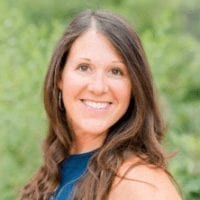
Maureen Woolshlager started her career at McMaster-Carr’s Management Development Program working in sales, marketing, distribution operations, finance and accounting. After McMaster-Carr, she spent a year managing operations in one of Target Corporation’s warehouses before finding a role within a small management consulting company in Denver, Colorado. She worked on large projects for international food and restaurant companies and advised on account management, business development, operations management, warehouse operations, continuous improvement and distribution center operations, and procurement/supplier/inventory optimization. She has spent the last 9 years living in Belgium & Germany where her husband has been stationed as a US Army officer. Maureen has her B.A. from Emory University. She earned a certificate in Management & Marketing from the Wharton School at the University of Pennsylvania & her M.B.A. from the University of Phoenix. Learn more about Vector Global Logistics here: https://vectorgl.com/
